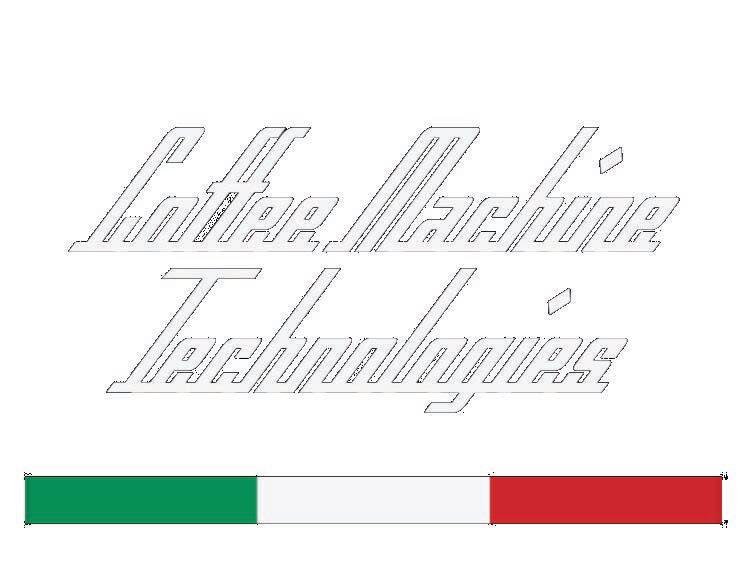








































Book your stand to take part in the Southern Hemisphere’s largest dedicated coffee trade show.
Celebrating 10 years of MICE and everything coffee
10 YEARS OF EVERYTHING COFFEE


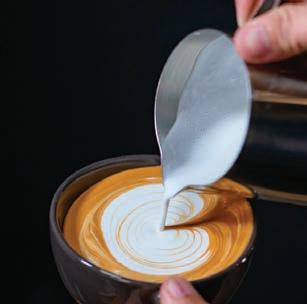
14 NEWS
20 STUFF ON THE SCENE INDUSTRY PROFILES
22 KNOWLEDGE LEADER
Skybury Coffee’s Candy MacLaughlin on how the thirdgeneration farm is ready to adapt to the industry’s evolving culture
26 C ELEBRITY CHEF
Chef Warren Mendes talks to BeanScene about South African safaris, and why the best coffee experiences are situational
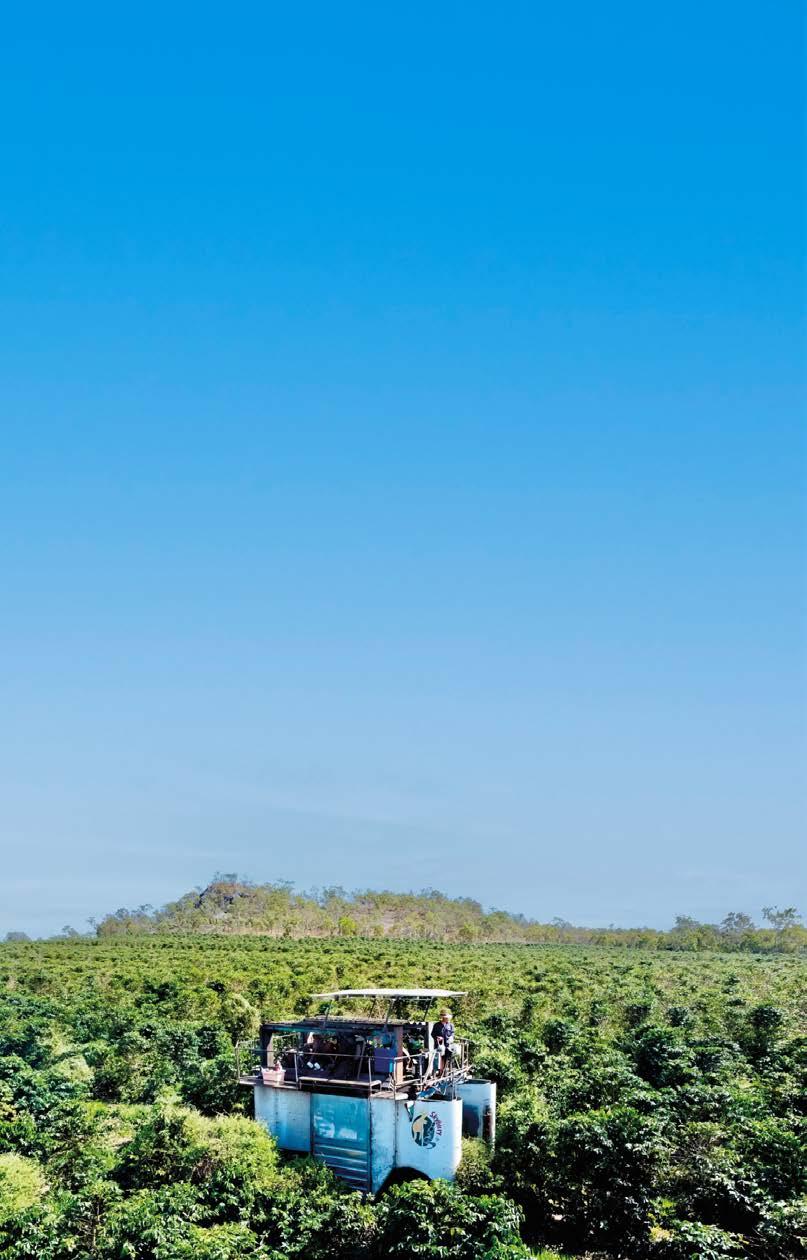
31 COVER STORY
Axil Coffee on why the roaster is more than just a coffee brand with a WBC-win under its belt
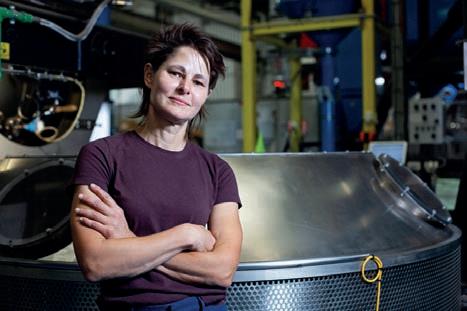
35 WATCH THIS SPACE
Barista Technology Australia on empowering technicians to become educators, and why the company will keep being an industry disruptor
39 ON THE MAP Black Bag Roasters unveils a new production facility that is purposebuilt, future proofed, and ready for growth
43 100 YEARS OF COMMITMENT
Riverina Fresh celebrates its centenary year of business and discusses its longevity, relationships and connection to the industry
47 LEADING FROM THE TOP
Lucy Ward explains how her new position at St Ali will help the company focus on the growth of its people and culture
50 TIME TO HUSTLE
Coffee Tools Distributing partners with Barista Hustle to offer a brand-new suite of products
52 C RAFTED FOR NOW
Nestlé Professional on the relaunch of its Buondi brand to suit Australia’s sophisticated coffee landscape
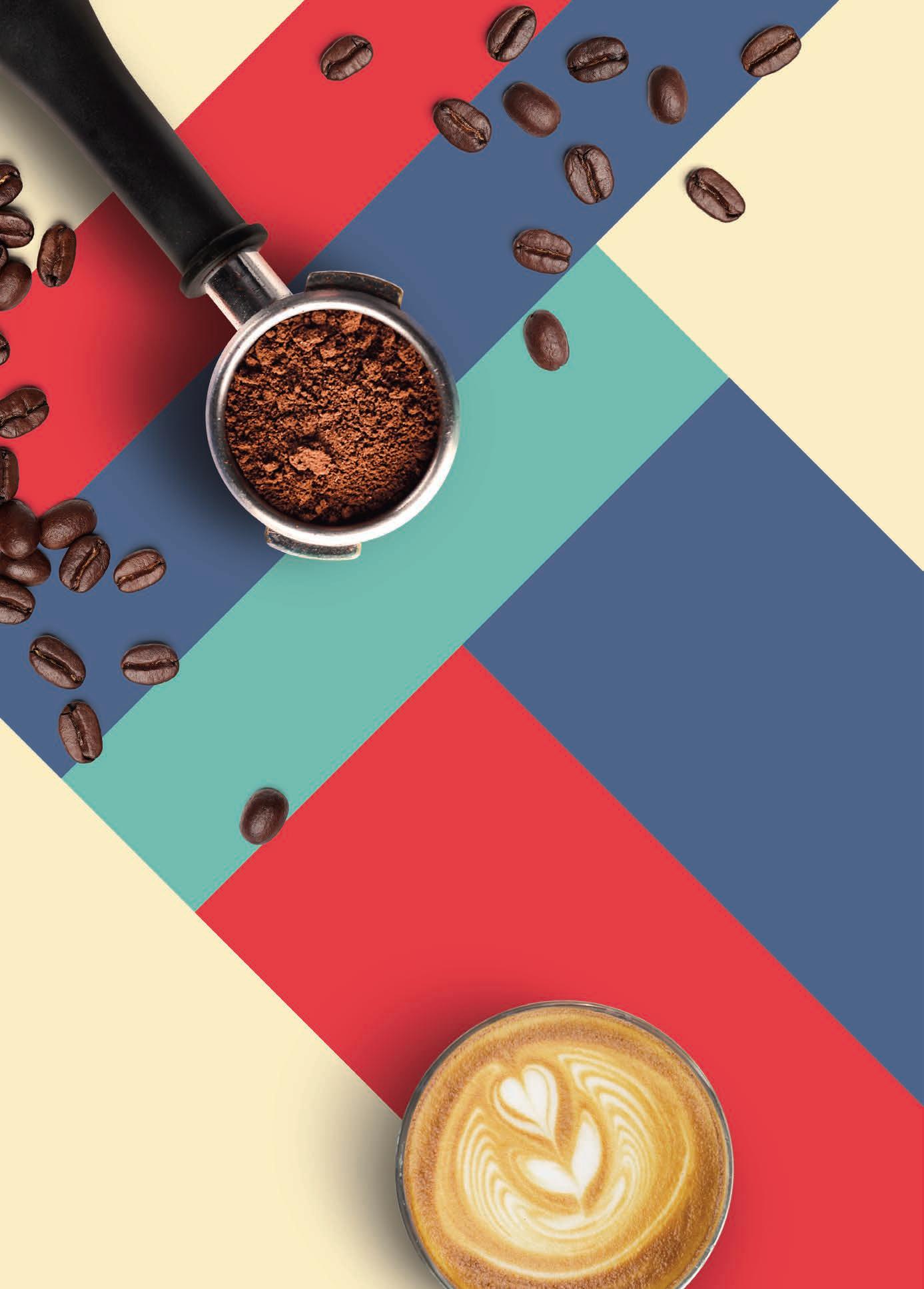
56 THE NEXT BEST THING
Merlo Coffee on why its specialty coffee capsules are the next best thing to barista made coffee
62 MICE: 10 YEARS YOUNG
How MICE will reunite the global coffee community in August for its 10-year anniversary
54 UNLEASH YOUR TALENT
Barista Attitude introduces a new espresso machine that takes the guesswork out of operation
58 THE CLEANER THE GREENER
IMA Coffee explains how to optimise green coffee receiving
and cleaning operations in order to improve the value of the end product
60 CAN’T BEAT A CLASSIC
Coffee Works Express on why the Wega Polaris Tron and Pegaso espresso machines are tried and tested models
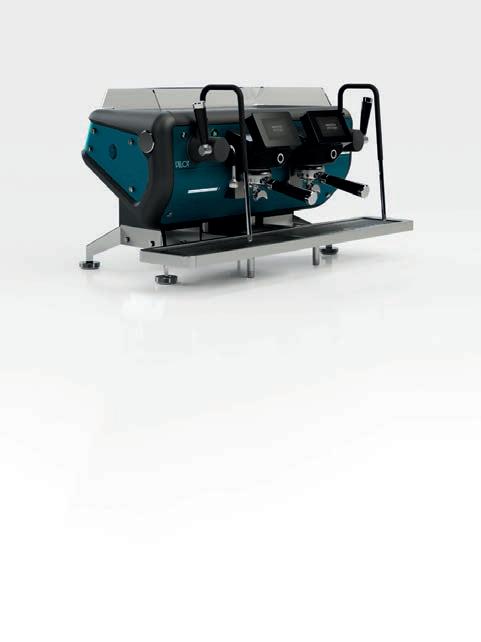
68 TRAINING TACTICS
UCC’s Anthony Lawrence simplifies the fundamentals of calibration and common pain points for baristas
70 ESPRESSO YOURSELF
Amy Zhang takes inspiration from 2022 Korean Latte Art Champion Rora with a Turtle Ship latte art design
64 CAFÉ SCENE
Around Australia and New Zealand
73 NZSCA
New Zealand Barista Champion 2022 Hanna Teramoto on her road to the World Barista Championship
74 PEOPLE ON THE MOVE
Celebrating industry appointments


CHIEF OPERATING OFFICER
Christine Clancy christine.clancy@primecreative.com.au
MANAGING EDITOR
Sarah Baker sarah.baker@primecreative.com.au
JOURNALIST
Hayley Ralph hayley.ralph@primecreative.com.au
ART DIRECTOR/DESIGN
Daz Woolley
HEAD OF DESIGN
Blake Storey
322 Burwood Rd, Hawthorn VIC 3122 axilcoffee.com.au
Axil Coffee Roasters had a huge 2022, with the brand opening its 19th Axil-branded store and taking the World Barista Championship (WBC) crown thanks to the talent and team behind Anthony Douglas. On reflection, BeanScene couldn’t let the chance go by to honour the brand on the February cover.
For the occasion, the team gathered at Axil’s flagship Hawthorn venue in Melbourne, the place the Axil journey began. When we walked in the door with a sign saying “Home to the 2022 World Barista Champion”, we knew exactly where we were.
On the morning of shoot, the café was a buzz and at packed capacity. It’s the local’s favourite hangout, and their loyalty is what’s kept the venue operating for the past 12 years.
Admiring it all was Founder Dave Makin, who told BeanScene Editor Sarah Baker in their interview (see page 31) that his biggest fear and career highlight, aside from seeing Anthony take the WBC crown last year, was opening the doors to this venue in May 2011 and praying that people would come. They sure did, with Axil full to the brim by the end of their first week of trade. Today was no exception.
BeanScene photographer Blake Storey was tasked with the challenge of capturing three key elements in the frame of the cover image: Axil’s commitment to quality coffee; the equipment responsible for its execution, including a La Marzocco machine; and dedication to fostering barista talent, evident by the inclusion of the WBC trophy. It is these key elements that Axil embraces across each of its 19-and-counting venues, educates to wholesale customers, and wants new prospective customers to know when consideration a partnership with the specialty coffee roaster.
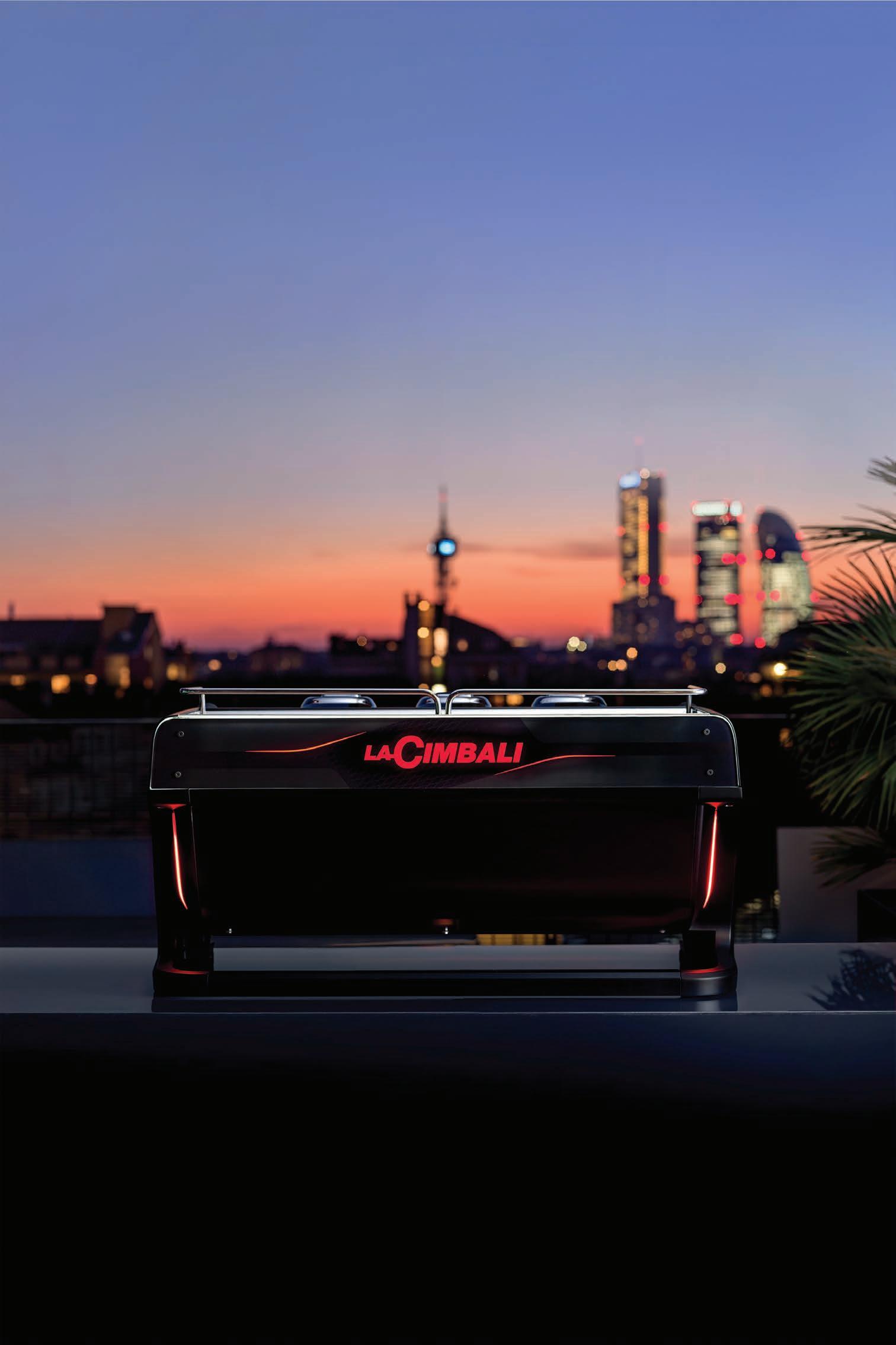
“We’re exceptionally focused on being the best we can possibly be, whether it’s customer service, or quality of coffee,” Dave says.
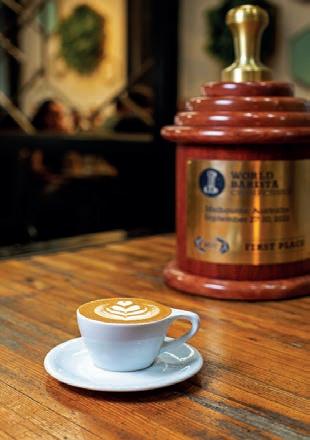
Helping to celebrate that level of quality on the cover image itself, was Axil barista and store manager Darcy Lillis-Jones, who placed third at the 2022 ASCA National Latte Art Championship.
“The key was to capture Darcy’s latte art creation within seconds of being placed on the table, and positioning the elements to create a unique frame,” says photographer Blake Storey.
The final result represents why Axil Coffee Roasters has become much more than a coffee brand.
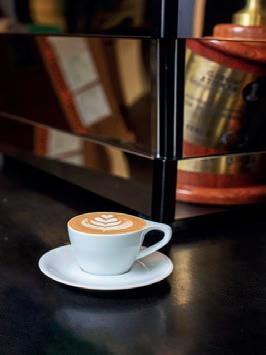
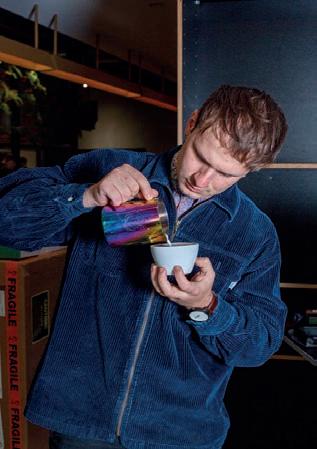
DESIGN PRODUCTION MANAGER
Michelle Weston
BUSINESS DEVELOPMENT MANAGER
Courtney Walker courtney.walker@primecreative.com.au
C LIENT SUCCESS TEAM LEADER
Janine Clements janine.clements@primecreative.com.au
PHOTOGRAPHY
Blake Storey, Richard Tho, ATPhoto, Andrew Turner, James Thomas Photography, James Butler
CONTRIBUTORS
Emma McDougall, Amy Zhang, Anthony Lawrence, Christian Alphonso
HEAD OFFICE
Prime Creative Pty Ltd
379 Docklands Drive, Docklands, Victoria 3008 p: 03 9690 8766 f: 03 9682 0044 enquiries@primecreative.com.au www.beanscenemagazine.com.au
SUBSCRIPTIONS
03 9690 8766 subscriptions@primecreative.com.au
BeanScene magazine is available by subscription from the publisher. The rights of refusal are reserved by the publisher.
A RTICLES
All articles submitted for publication become the property of the publisher. The Editor reserves the right to adjust any article to conform with the magazine format.
COPYRIGHT
BeanScene magazine is owned by Prime Creative Media and published by Christine Clancy. All material in BeanScene magazine is copyright and no part may be reproduced or copied in any form or by any means (graphic, electronic or mechanical including information and retrieval systems) without written permission of the publisher. The Editor welcomes contributions but reserves the right to accept or reject any material. While every effort has been made to ensure the accuracy of information Prime Creative Media will not accept responsibility for errors or omissions or for any consequences arising from reliance on information published. The opinions expressed in BeanScene magazine are not necessarily the opinions of, or endorsed by, the publisher unless otherwise stated.
Axil Coffee Roasters

Amy Zhang is the 2022 ASCA Australian Latte Art Champion. Born in China, Amy is a Coffee Quality Institute-certified Q Grader and Barista Trainer, basing many of her latte art patterns off her favourite Disney films. Amy won the 2022 ASCA Northern Region Latte Art Championship, and the 2022 National title. She currently works at The Maillard Project in Brisbane, Queensland.

Emma McDougall is the Communication and Administration Coordinator for the NZSCA. After gaining a degree in hospitality management, Emma has worked in Sydney, Dublin, Auckland, London, and most recently, Wellington. She has owned and managed cafés and tech-judged the New Zealand Barista Championship in 2015 and 2016. Now, she gets to help run them. One of the greatest joys she gets from the coffee industry is watching young people progress through their coffee journey.

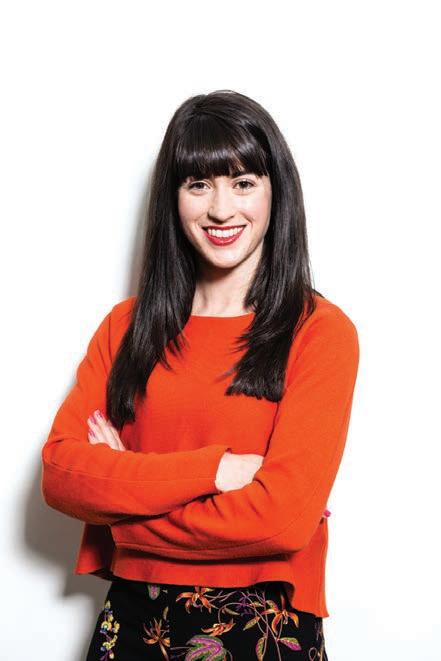
Anthony Lawrence is a barista trainer for UCC Coffee. He has been in the industry for 20 years and brings his expertise of coffee service and sensory understanding to the training sessions he conducts. Working with coffee has taken him to London and Byron Bay, and back to Brisbane where he currently resides. Anthony is passionate about making coffee accessible and exciting for baristas of any skill level.
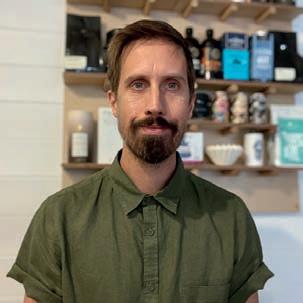

elcome to BeanScene magazine’s first edition for 2023. While staff took a break over the summer holidays and relaxed on beaches across the country, it was our hospitality staff that soldiered on, supporting cafés as they braced for holiday makers and their never-ending need for quality coffee consumption. Not only do they attempt the spelling of names and comprehend complex orders, they approach long lines of customers with a smile on their face and determination to do their best work. The one constant from all the regional coffee shops I visited over the summer, however, was an A4-printed piece of paper on the door with the words “baristas wanted”. Staff shortages was a challenge in 2022, and it looks like 2023 is starting in the same direction.
I predict education and training will be one of the most valuable industry contributions this year, in addition to embracing automated processes that streamline workflow, and technology that supports consistent and quality output.
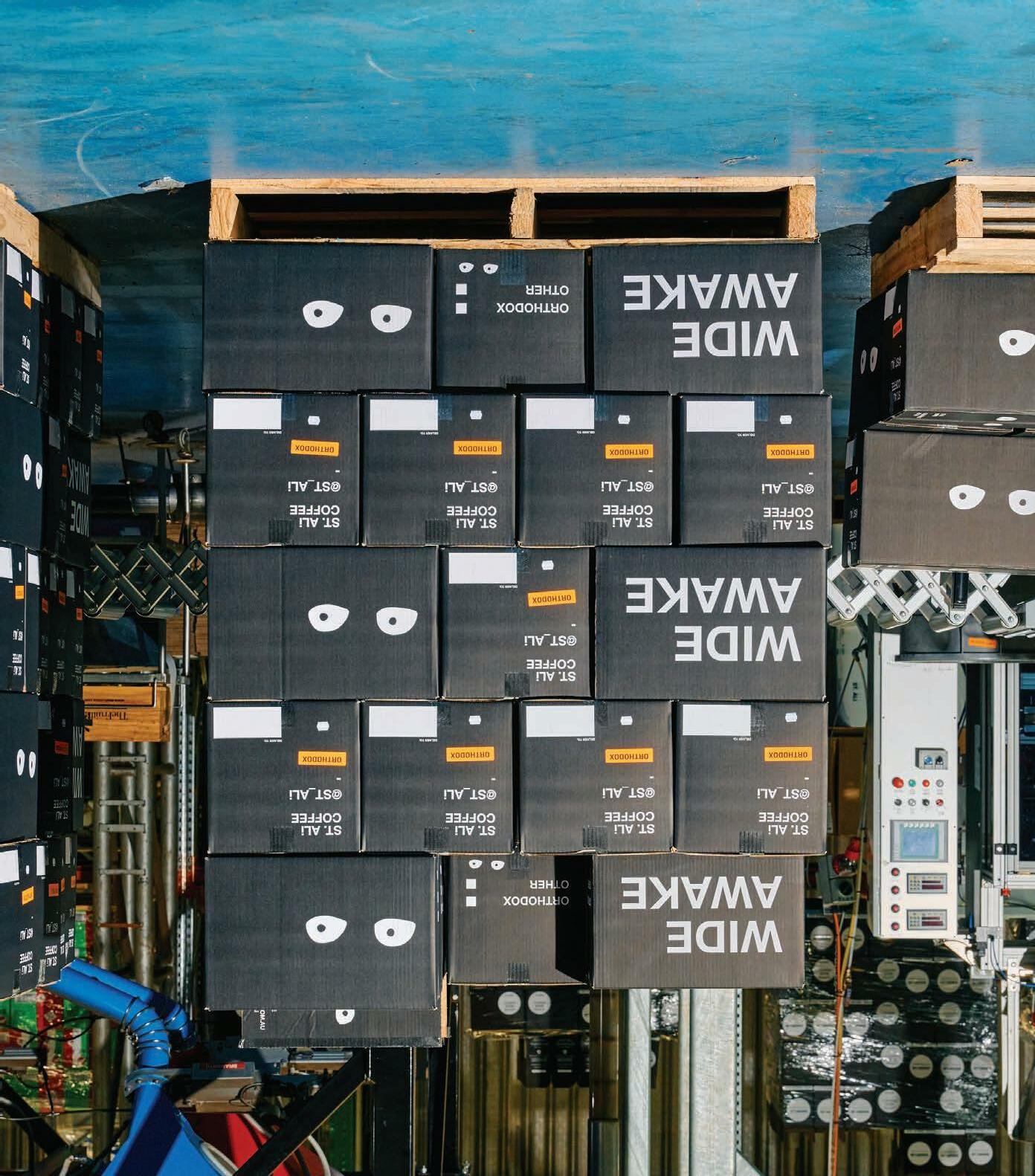
While knowledge sharing at the café level is important, it is equally important at ground level, in Australia’s coffee producing community. In my talk with Candy MacLaughlin of Skybury Coffee, one of the longeststanding coffee plantations in Australia, she says the producer’s next phase of development is to share its experience and learnings with those interested in entering the market. While the Australian coffee industry is large, the number of Australian coffee growers remains the same.
At the other end of the chain, the numbers couldn’t be more different, with roasters continuing to thrive, including Black Bag Roasters. The roastery, under parent company Nomad Coffee Group, has completed its $10 million production facility in Victoria, spanning 4000 square metres. I got to see the facility first-hand, and witness how well equipped it is to facilitate growth and the needs of the Australian coffee industry.
Also looking for growth opportunities this year is Axil Coffee Roasters, this edition’s feature cover company. After a stellar 2022 as the company tied to winning World Barista Champion Anthony Douglas, Co-Founder Dave Makin is excited for the potential to explore new markets and show the country why it’s been such a successful business for the past 12 years.
With everyone already making plans and aspirations for the year ahead, I encourage you to find your own goals, and embrace this unique industry, which always has its foot on the accelerator, and an eye open for whatever comes next.
SARAH BAKERFollow us on Twitter @BeanSceneEd
‘Like’ us on Facebook @BeanSceneCoffeeMag

Follow us on Instagram @beanscenemag
Follow us on LinkedIn @BeanSceneMag



Sydney barista and former Australian Latte Art Champion Jibbi Little of Jibbijug won the 2022 World AeroPress Championship (WAC), held from 1 to 3 December 2022 in Vancouver, Canada.
Simon Derutter from Belgium placed second, and Jennifer Rui Ping Ho from Singapore placed third.
For her set-up, Jibbi used a rinsed AeroPress Classic with a dose of 18.0 and a Perfect Coffee Water packet to add minerals to the distilled water. She used a Colombia Finca Juan Martin, Natural, Striped Red Bourbon from Quietly Coffee and Cafe Imports.
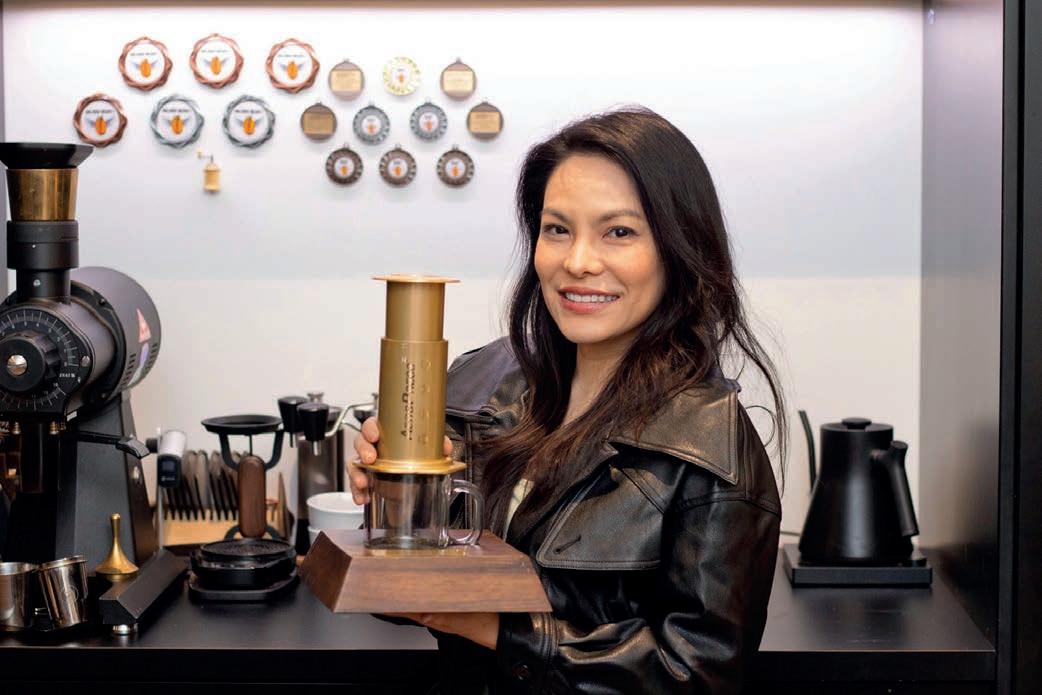
Jibbi’s winning recipe consisted of pouring the Colombian coffee into the AeroPress chamber, adding 94 millilitres of water, and gently stirring 35 times. At 1:20 minutes, she screwed on the cap and pressed out any remaining air. At 1:30 minutes, Jibbi flipped and pressed for 30 seconds. With about 58 to 64-grams of concentrate, she bypassed 90-degree water to 150-grams, aiming for total dissolved solubles of 1.3 to 1.35 per cent.
After a two-year hiatus and a virtual competition in 2021, the WAC made a triumphant in-person return. The global coffee-making competition designed to celebrate the world’s best cup of AeroPress coffee. The competition is a multi-round, elimination tournament. Competitors had
five minutes to prepare, brew, and present their coffee to a panel of three judges. Fifty-six competitors contended in the
multi-round elimination tournament, with judges evaluating each coffee and making their own assessment as to which is the best.
in numbers with 32 baristas showing their Alternative plant-based latte art with more than 70 spectators viewing from the sidelines.
Each contender competed in a headto-head battle showcasing three patterns decided by the judges. Competitors poured patterns with three different Alternative Dairy Co milks, with the best out of the three judged the winner.
Winner Kadi Jayne executed the best patterns with The Alternative Dairy Co’s soy, almond and oat milk, and received $1000 in prize money.
The judges included Jibbi Little, 2019 Australian Specialty Coffee Association (ASCA) Australian Latte Art Champion; Ru Teow from Laika Coffee and 2020 Western Region Cup Tasters winner; and Rie Moustakas, 2014 ASCA Australian Latte Art Champion.
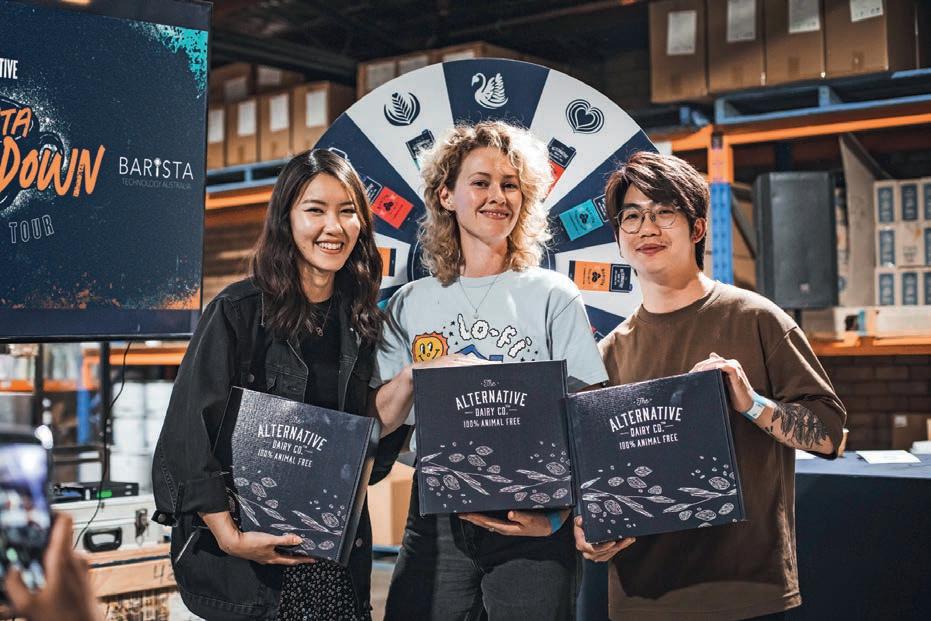
The next The Alternative Barista Smackdown in the national tour will take place on 20 February 2023 at Kindred Coffee in Adelaide, South Adelaide.
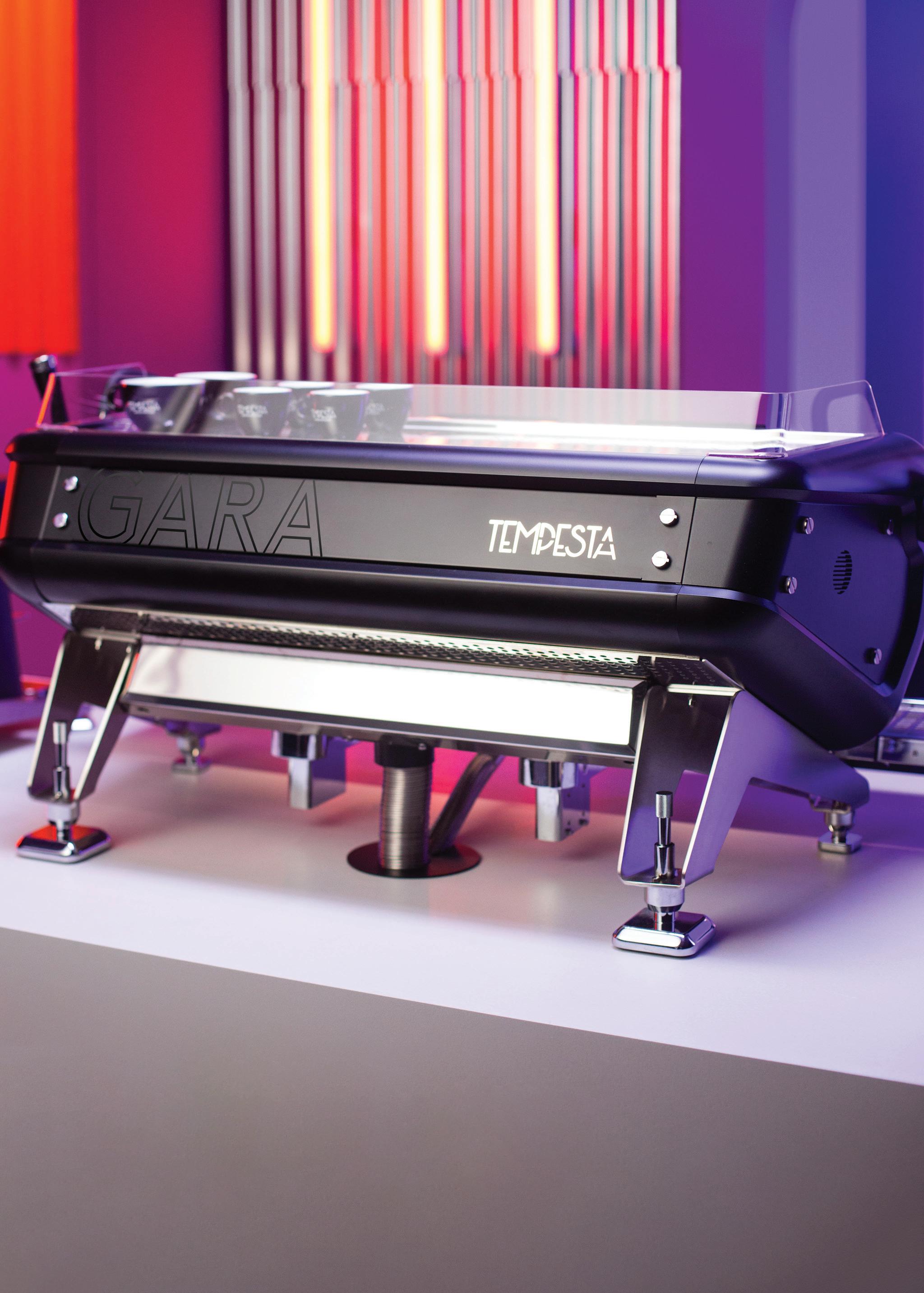
Kadi Jayne has won The Alternative Dairy Co’s Western Australia Alternative Barista Smackdown, which took place on 24 November at Darkstar Coffee Roasters in
Perth, Western Australia.
Kartika Zhuang placed second and Thiam Seng Chew placed third.
The Perth coffee community supported
The Alternative Barista Smackdown Grand Final will take place in June 2023, hosted by Veneziano Coffee Roasters with a first prize of $10,000.
KADI JAYNE WINS THE ALTERNATIVE DAIRY CO WA BARISTA From left: The Alternative Dairy Co’s top three WA Smackdown baristas: Kartika Zhuang, Kadi Jayne, and Thiam Seng Chew.
roasters took part in the month-long event, including long-time supporter Axil Coffee Roasters.
“Cafe Smart is a program that Axil
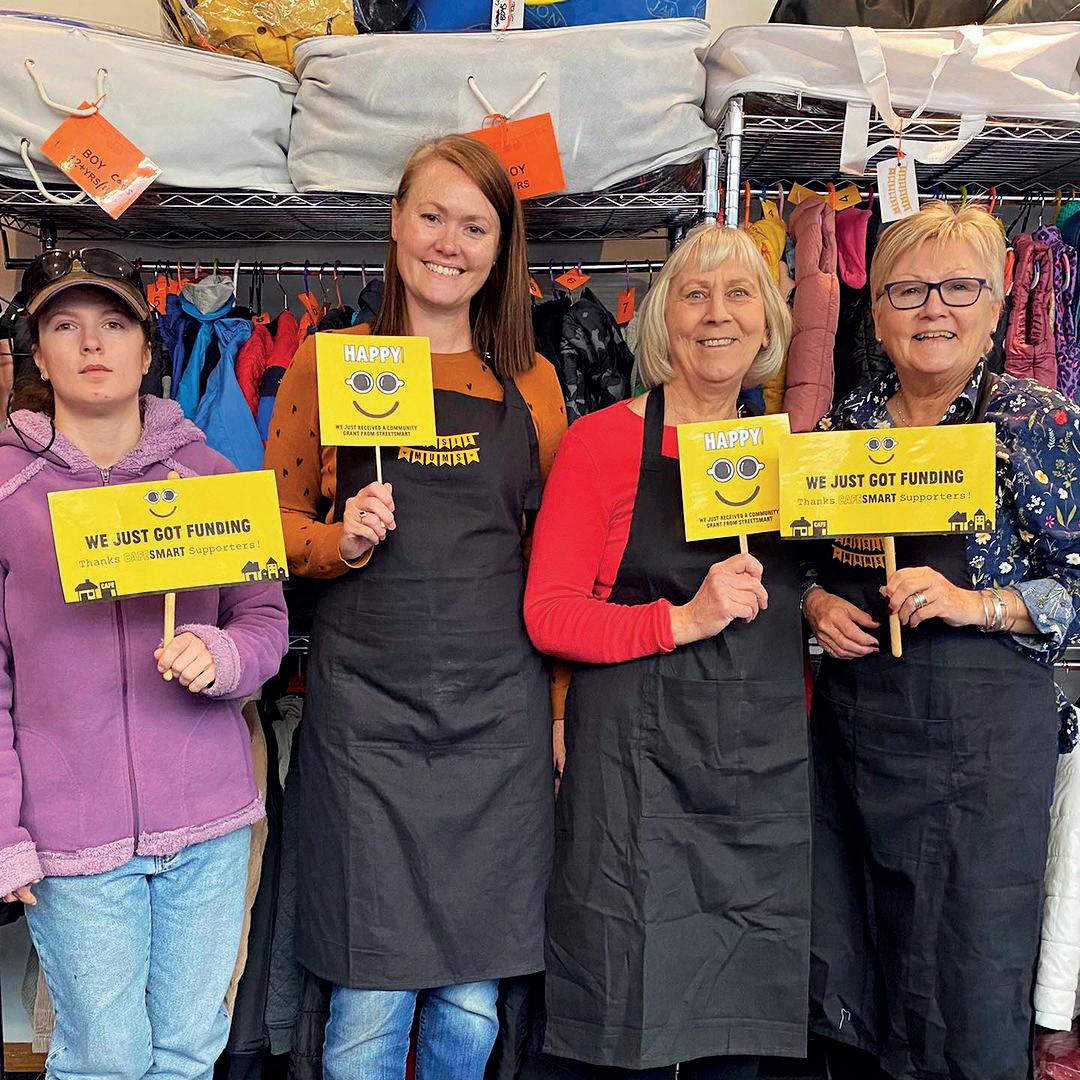

Erica Kim, Head Trainer and Quality Control at The Studio Beans and Barista with Dukes Coffee Roasters, has won the Marco SP9 Brew Master Challenge at the Victoria Arduino Experience Lab with equipment support from Five Senses Coffee, coffee sponsored by Caravela and Floozy Coffee, and brewing gear from ECRE, Bombora and AMC Supplies.
The contest by Marco Beverage Systems was aimed at baristas and coffee professionals and took place on 25 November in Brunswick, Victoria.
“Every competitor brought their own unique style to the competition, so it was incredibly hard to tell who would win. In the end, Erica’s warmth and personality really stood out as she was presenting her chosen brew,” says Gemma Kiernan, Head of Marketing at Marco Beverage Systems.
“Erica demonstrated how the Marco SP9 allowed her to unlock the very best flavour and characteristics from the coffee whilst giving her the space and time to engage with the judges and audience.”
Competitors took part in an initial head-to-head knock-out before progressing to the second round. Finalists were then challenged to develop and present the
pressures and rising food prices, many Australians in significant financial hardship turned to local community organisations for support and assistance.
According to CafeSmart, it is these small, grassroots organisations that are responding to the needs of those most vulnerable in their communities. It’s also why the community grants are so important to venues like The Hut Community Centre who supports the Hills community in Adelaide.
“[The donated] $1100 is a huge contribution towards our minimal budget and we are so grateful to receive your ongoing support. It will allow us to purchase much needed non-perishable food items which are accessed by more than 40 families each week,” says Hayley Everuss from The Hut Community Centre.
According to CafeSmart, this impact wouldn’t be possible without the Australian coffee industry that gets behind the event every year, and also the principal sponsors that contributed to the event: Vitasoy and La Marzocco Australia.
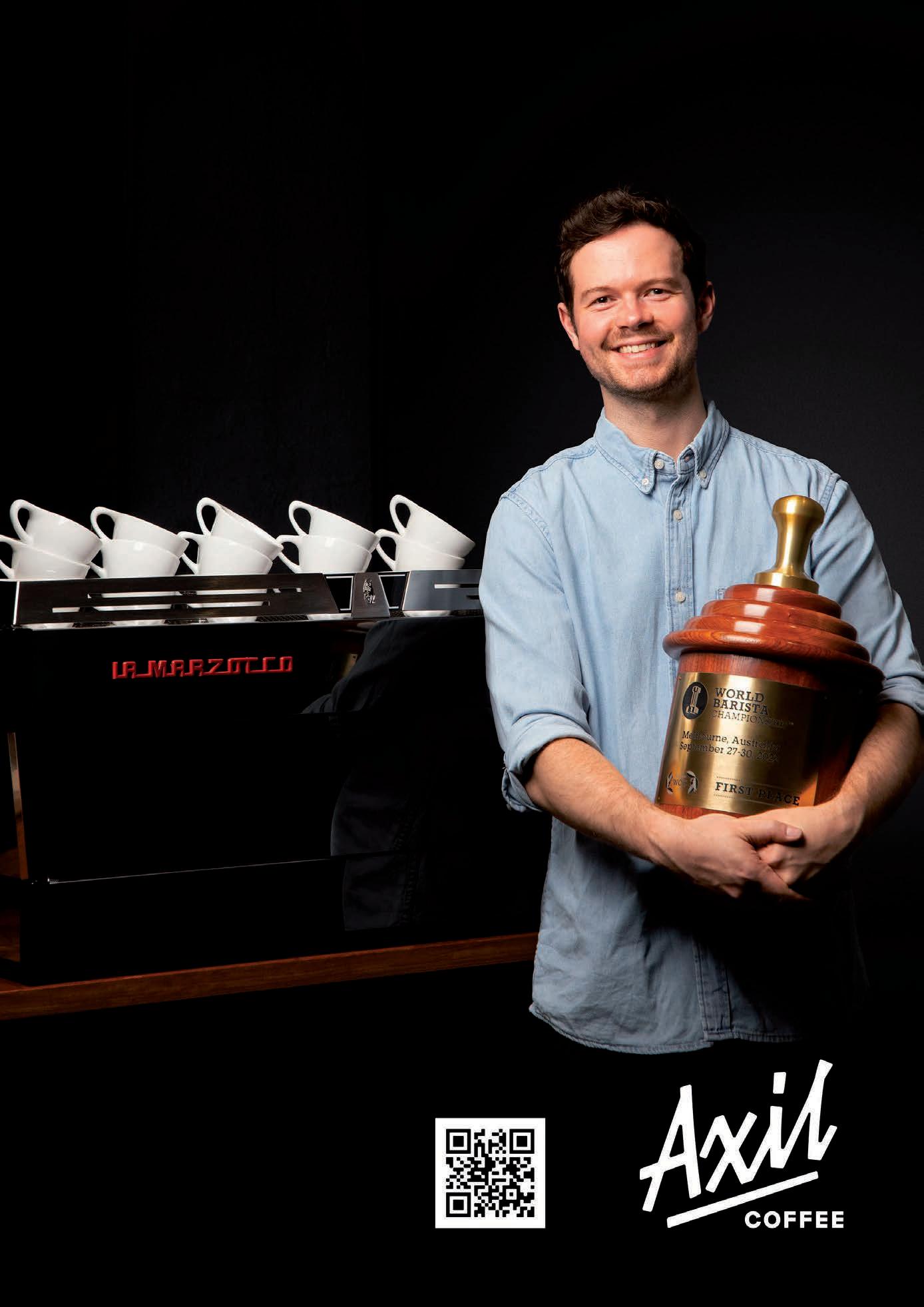
In 2022, there were a number of supporters helping raise funds and scaling the impact of the event, including the Melbourne International Coffee Expo, The Coffee Club, Made by Fressko, Coffee Tools Distributing and Nomad Group.
For more information and to get involved this year, visit streetsmartaustralia.org/cafesmart/
optimal chosen recipe and showcase their sensory knowledge, brewing, and presentation skills.
They presented their brewed coffee to three sensory judges: Demelza Jones, Founder of SameCup; Nicole Novak of Five Senses, certified Q-Grader and World Brewers Cup judge; and Harry Ko, 2015 and 2016 Australian Cup Tasters Champion, and eight place holder in the World Brewers Cup in 2022.
Erica, who has only worked as a barista for the past four years, beat 10 other competitors to win the title.
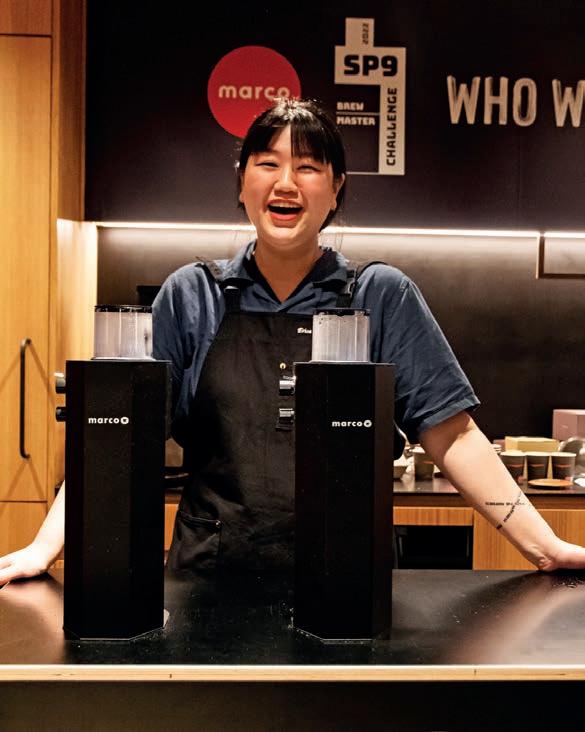
“I was so happy to compete with all the competitors who are star baristas that I always wanted to be like,” says Erica.
“It was an honour to be on the stage with them and I won’t forget that everyone gave me a warm hug after the competition. That’s why I’d like to donate the machine to a space that values barista training or provides them with the kind of support and help I received four years ago.”
Erica won an SP9 Twin for her chosen café or roastery. She hopes to donate the system to a coffee training space that supports and works with members of their local community.

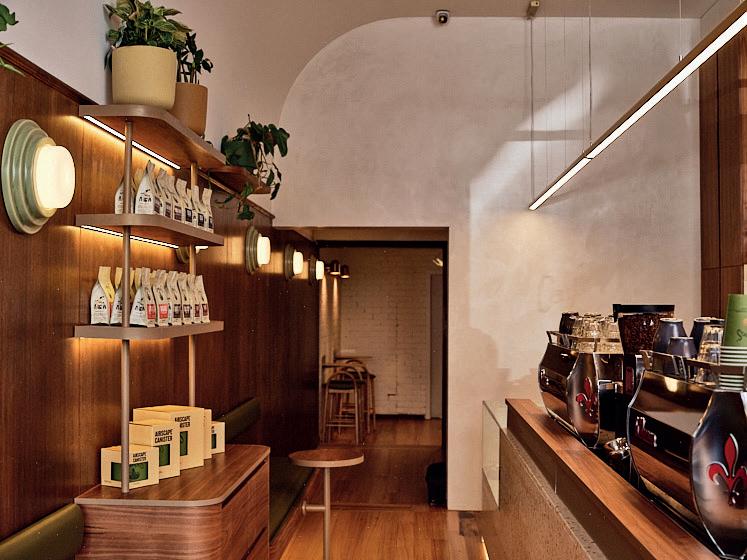
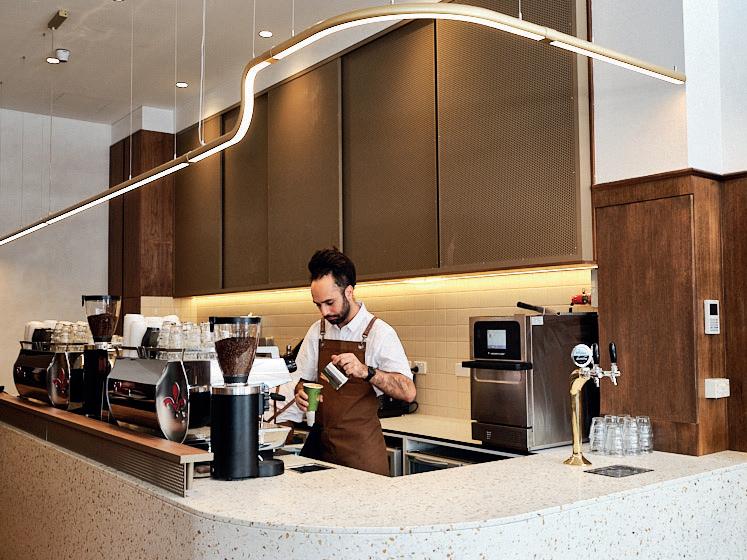
Coffee has opened a new Campos flagship café in South Yarra, Melbourne. Positioned at the bustling Toorak Road end of Chapel Street, the launch coincides with Campos Coffee reaching its milestone 21st year in 2023.
“Cafés are often thought of as being the heart and soul of a local community, a place for people to connect with each other over a great cup of coffee. Our vision for the Chapel Street flagship is to not only serve an exceptional coffee experience in a beautiful setting, but also to connect with and support the community,” says Rafael Lopes, Campos Coffee’s Chapel Street Flagship Manager.
“Melbourne is often thought of as the spiritual home of coffee in Australia and

Espresso machine manufacturer
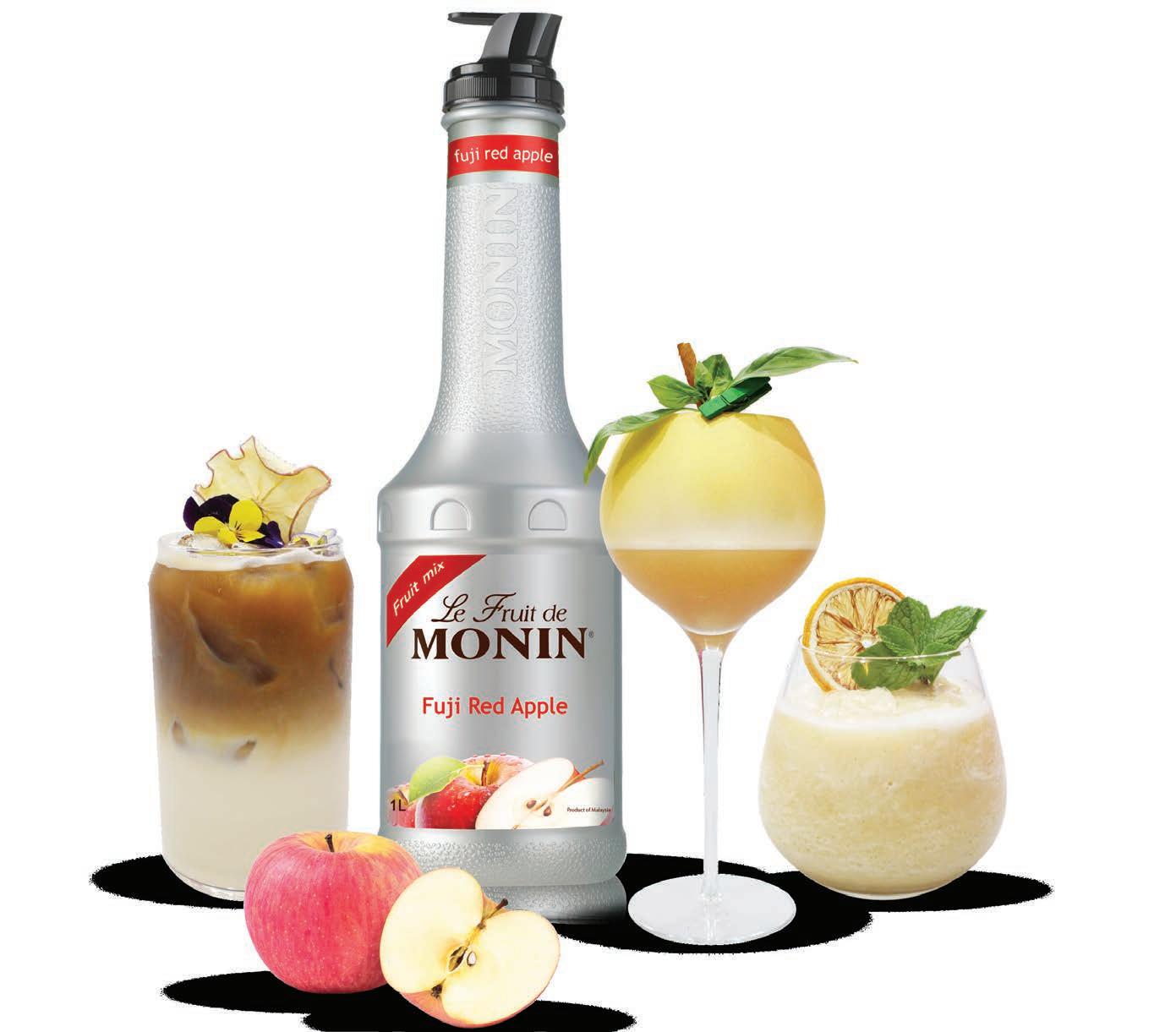
La Marzocco has announced it is partnering with current World Barista Champion Anthony Douglas as an official global ambassador for the brand.
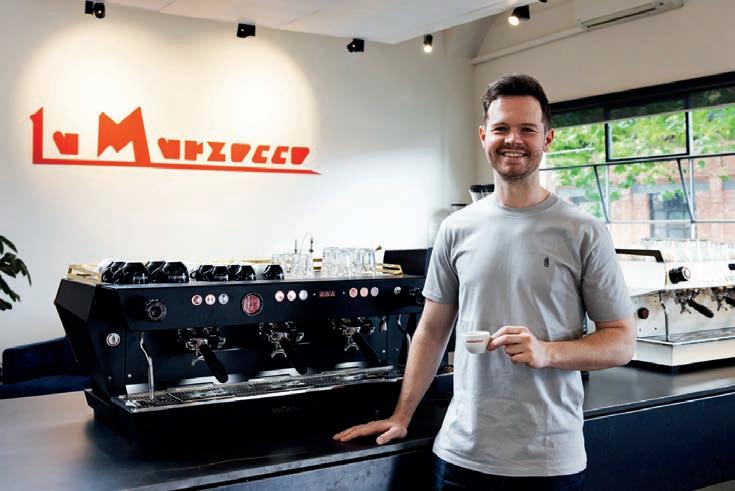
Born and raised in Australia, Anthony Douglas has been working within the specialty coffee industry for 12 years.
After taking the title as the world’s best barista at the 2022 World Coffee Championships at the Melbourne International Coffee Expo in September 2022, Anthony looks forward to sharing his expertise in craft and innovation with La Marzocco across its range of commercial and home machines.
“This partnership with La Marzocco is something I hold very close to the heart. I’ve spent over a decade working behind their machines and equipment and have seen nothing but constant innovation
and refinement, pushing the boundaries of coffee quality in the café and at home,” says Anthony.
of rotating espresso blends and single origin filter coffees.
“The Campos Superior Blend is our original café blend and what we’re famous for. While we look forward to serving this we’re also excited to introduce customers to the full breadth of delicious coffees we have on offer,” Rafael says.
Campos Coffee has partnered with Glen Iris based bakery and patisserie AM Bakehouse to offer a rotating menu of freshly baked sweet and savoury sandwiches and pastry delights.
Vegan and gluten-free options from Mahadeva’s Kitchen will also be on the menu.
The flagship café, located on 572 Chapel Street, will be open from Monday to Friday 7am to 3:00pm and weekends 8am to 4pm.
For more information, visit camposcoffee.com
For more information, visit au.lamarzoccohome.com
Brothers Giuseppe and Bruno Bambi founded La Marzocco in Florence, Italy, in 1927. LA MARZOCCO PARTNERS WITH 2022 WORLD BARISTA CHAMPION ANTHONY DOUGLAS Campos Coffee’s new flagship café is located in Chapel Street, South Yarra. Anthony Douglas is the official global ambassador of La Marzocco.

Designed for workflow and purpose, the Markibar Izaga W grind-by-weight coffee grinder combines excellence in practicality and functionality. It’s built for speed and consistency with two operating modes, Instant Dose and Grind on Demand. In Instant Dose mode, the Izaga W delivers an instant dose Grind-By-Weight, eliminating the need for baristas to weigh doses, saving up to seven seconds per espresso drink. The Izaga’s traditional workflow setting Grind on Demand caters to off-peak periods. The Izaga also features an isolated grinding chamber with an intelligent ventilation system, enabling cooler grinding and consistent dosing. It’s efficiency without compromise on quality. For more information, visit www.baristagroup.com.au

BRITA PURITY C 150 Quell ST filter cartridges expertly reduce carbonate hardness and limescale deposits in many professional equipment, resulting in fewer machine breakdowns.
The filter medium retains metal ions, such as lead or copper, and reduces substances that can negatively affect taste and aroma, such as chlorine residues. For more information, visit www.brita.com.au
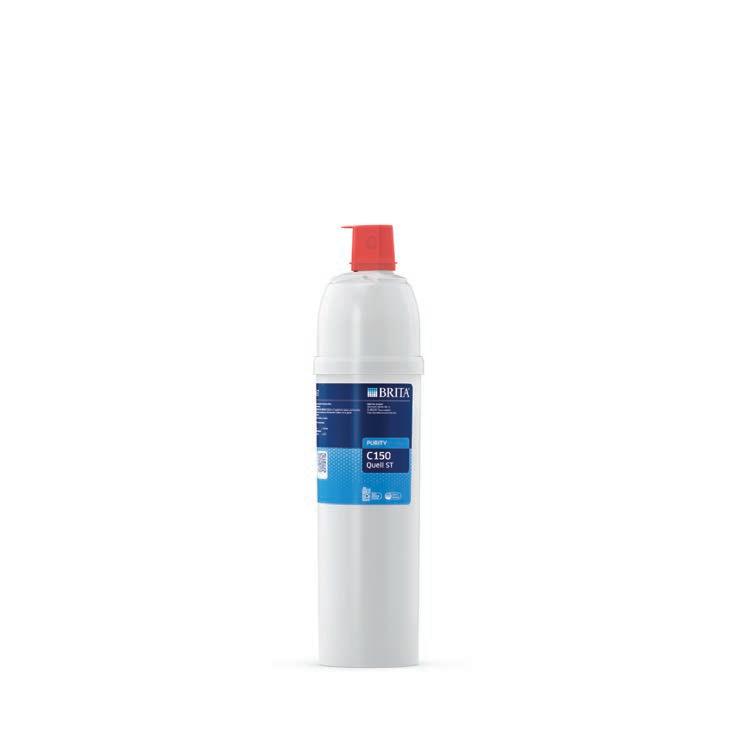
Service Sphere has introduced the La Cimbali S15 as the latest fully automatic machine part of the S range. Offering espresso coffee, fresh milk and chocolate in a compact design, it has a capacity of up to 150 high quality cups per day. It is the perfect ally for office environments or other locations that require good quality coffee at the touch of a button. This machine offers a seven-inch touchscreen and compatibility with the “Cup4You” App, that allows a new touchless and intuitive way to manage, customise and send beverage orders to the machine. For more information and to find out about an introductory special, visit servicesphere.com.au
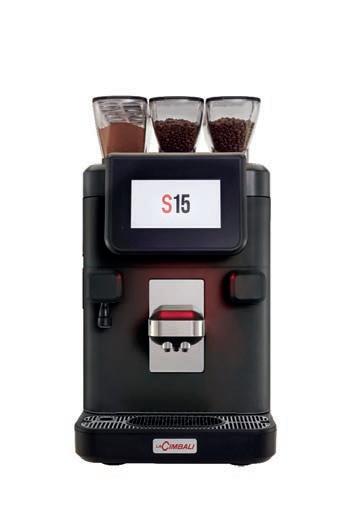
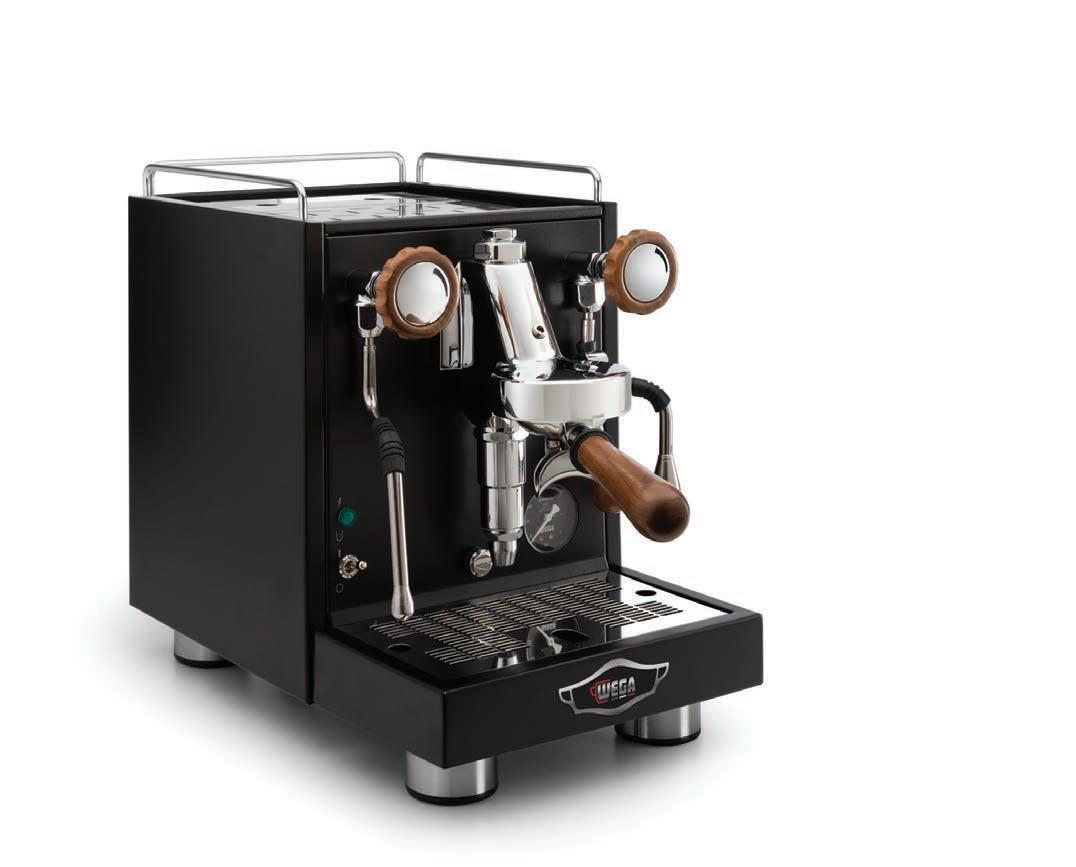
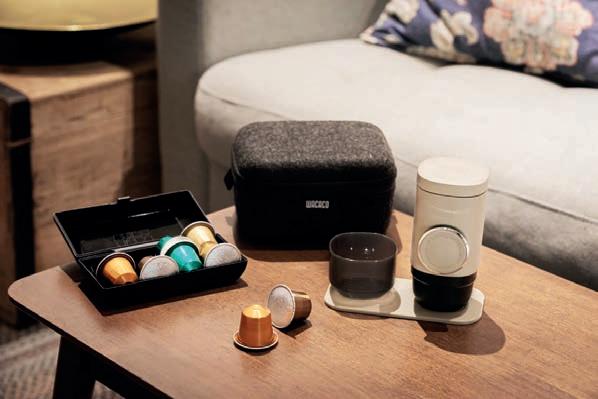
After years of innovation, Wacaco has redesigned the new Minipresso NS2 to be even more compact and lighter than the previous generation. Boasting 18 bars of pressure, this handheld espresso machine is more powerful than its predecessors and features a sustainably-designed exterior constructed of 30 per cent wheat-composed polymers. Compatible with Nespresso* Original coffee pods, the Minipresso NS2 makes it easy to prepare and clean up. It is also available is the new Minipresso NS2 Case, which can safely store and transport the Minipresso NS2. It includes a coaster and a capsule box for holding eight capsules. Together, the pair are the ultimate coffee-on-the-go package.
* Third-party brand with no link to Wacaco Company Limited. For more information, visit www.coffeetools.supply/minipresso
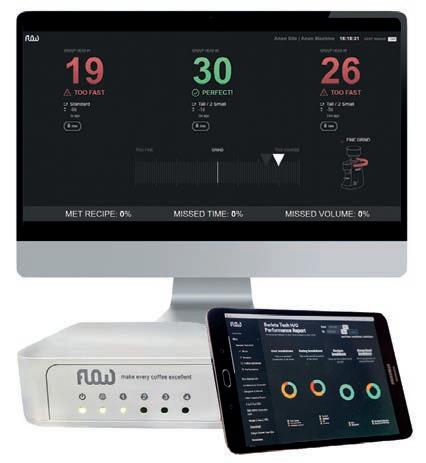
Looking for a competitive advantage and to grow your coffee business while maintaining profitability in a competitive market? Let the Flow coffee telemetry system be an edge in the café market in 2023. Coffee roasters and cafés are already seeing the benefits of Flow to help their customers maintain coffee quality. Manage customers smarter with Flow, using data metrics to monitor coffee quality across multiple sites along with training and maintenance schedules. Flow is a true café partner, giving clients feedback on everything from quality to training parameters. For a limited time only, get six months free monitoring and a free device. (Conditions apply) Call Barista Technology on 1300 582 443 or visit baristatechnology.com.au

Made with carefully curated beans from Peru, Indonesia and Ethiopia, this tropical blend boasts a deliciously sweet and fruity flavour. With tasting notes of fresh strawberries, exotic guava and rich roasted cocoa nibs, the Summertime blend is sure to satisfy caffeine cravings. The combination of bold and fruity flavours creates a balanced cold brew, perfect for enjoying in the warm summer months. Wolff Coffee Roasters describes it as “the perfect way to beat the heat and enjoy a delicious and refreshing cup of coffee all season long”. For more information, visit wolffcoffeeroasters.com.au
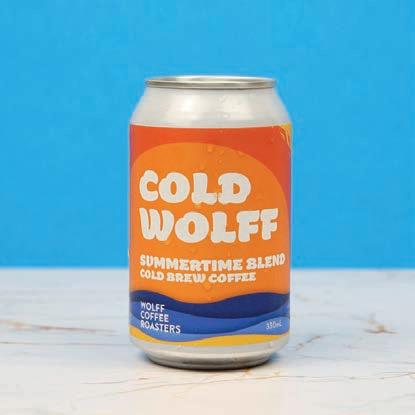
hen Candy MacLaughlin was just a kid growing up on the family farm near Mareeba, Tropical North Queensland, the fields of coffee trees were her playground and workplace.
“I learned to drive a tractor before I learned to drive a car. Mum and my
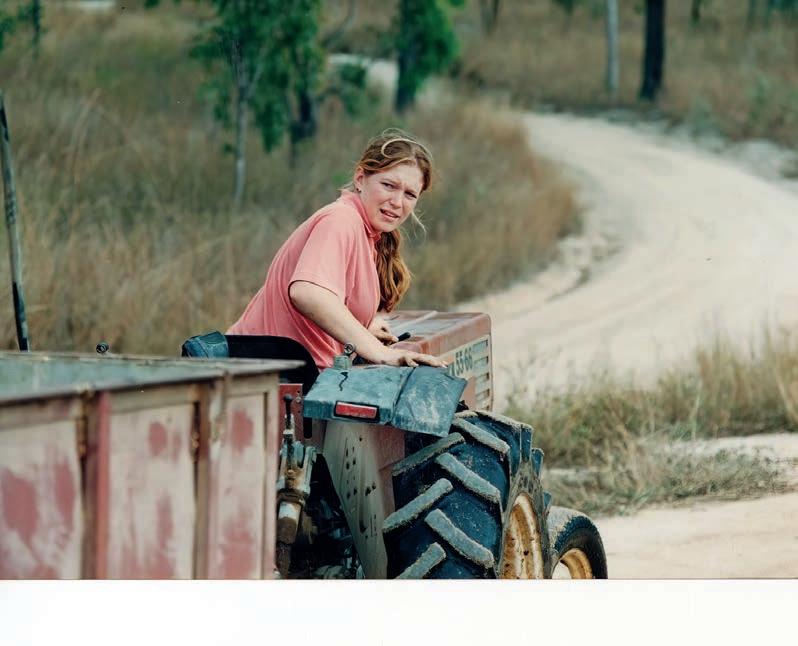
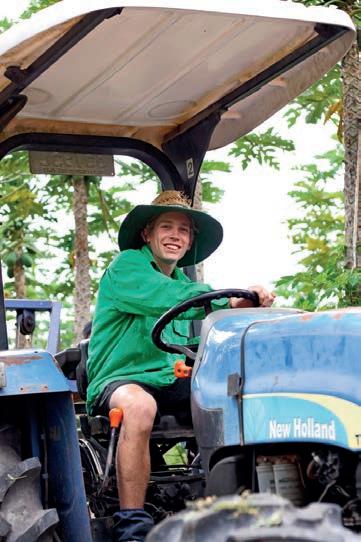
familiarity of the place, originally coming from South Africa. I think Dad saw the opportunity to grow something that wasn’t necessarily mainstream as well.”
Ian and Marion MacLaughin bought the farm as an established coffee plantation in 1987. They continued harvesting coffee for the next 11 years before diversification with red papaya was essential to retain staff and provide a steady income for the other 10 months of the year coffee wasn’t in
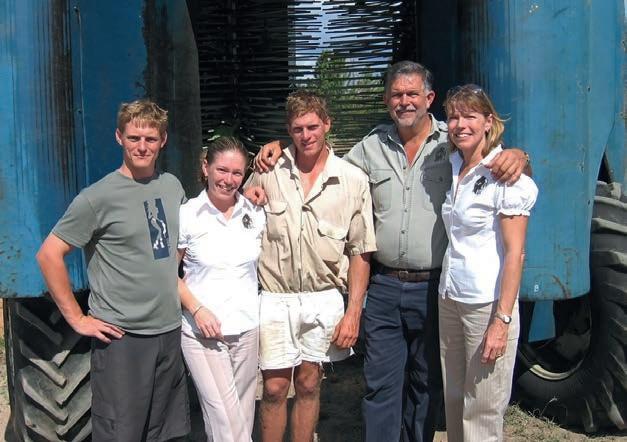
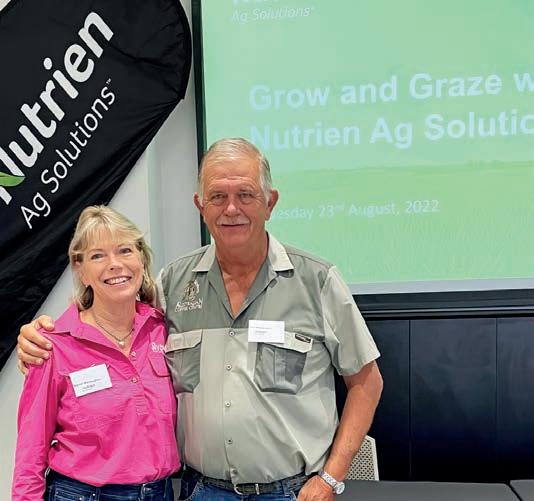
Out of the 38 blocks of land on the Skybury farm, 10 are dedicated to coffee,
process of transitioning to Catuai due to Bourbon’s fast-growing nature that results in a “really lanky, skinny tree that gets too big too quickly”.
The first Catuai block was planted in 2022, meaning it won’t be ready for harvest for another three years.
“[Catuai] is a dwarf tree and will suit us better thanks to our dual cropping. We can keep it in the ground longer because it won’t grow to the point where it’s no longer viable to use a machine to harvest it,” Candy says.
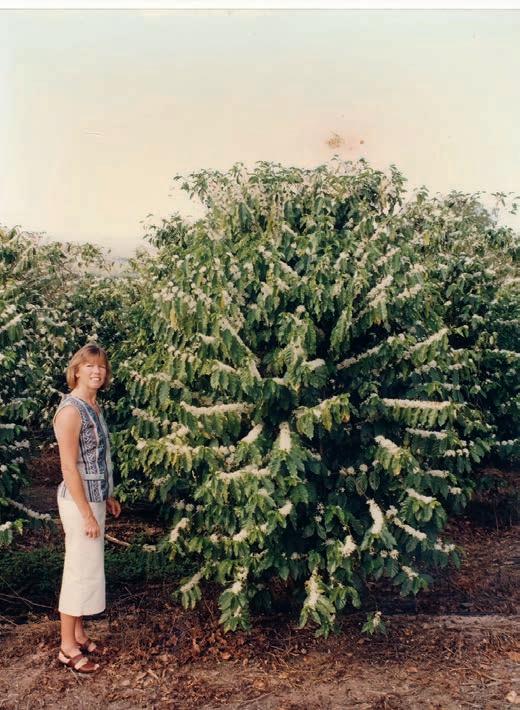
“We farm very differently to other farms in Australia, specifically around coffee. We have an approach to being long-term
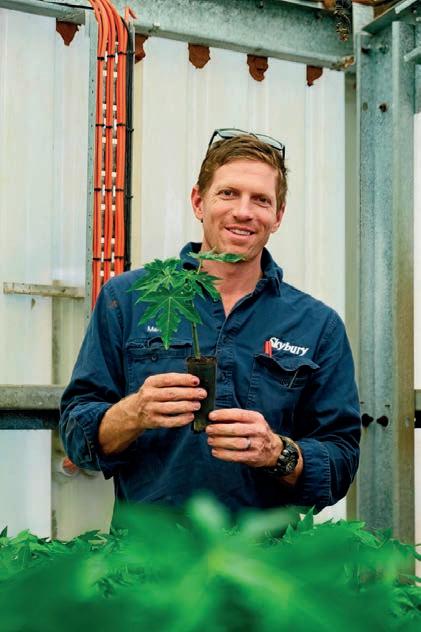
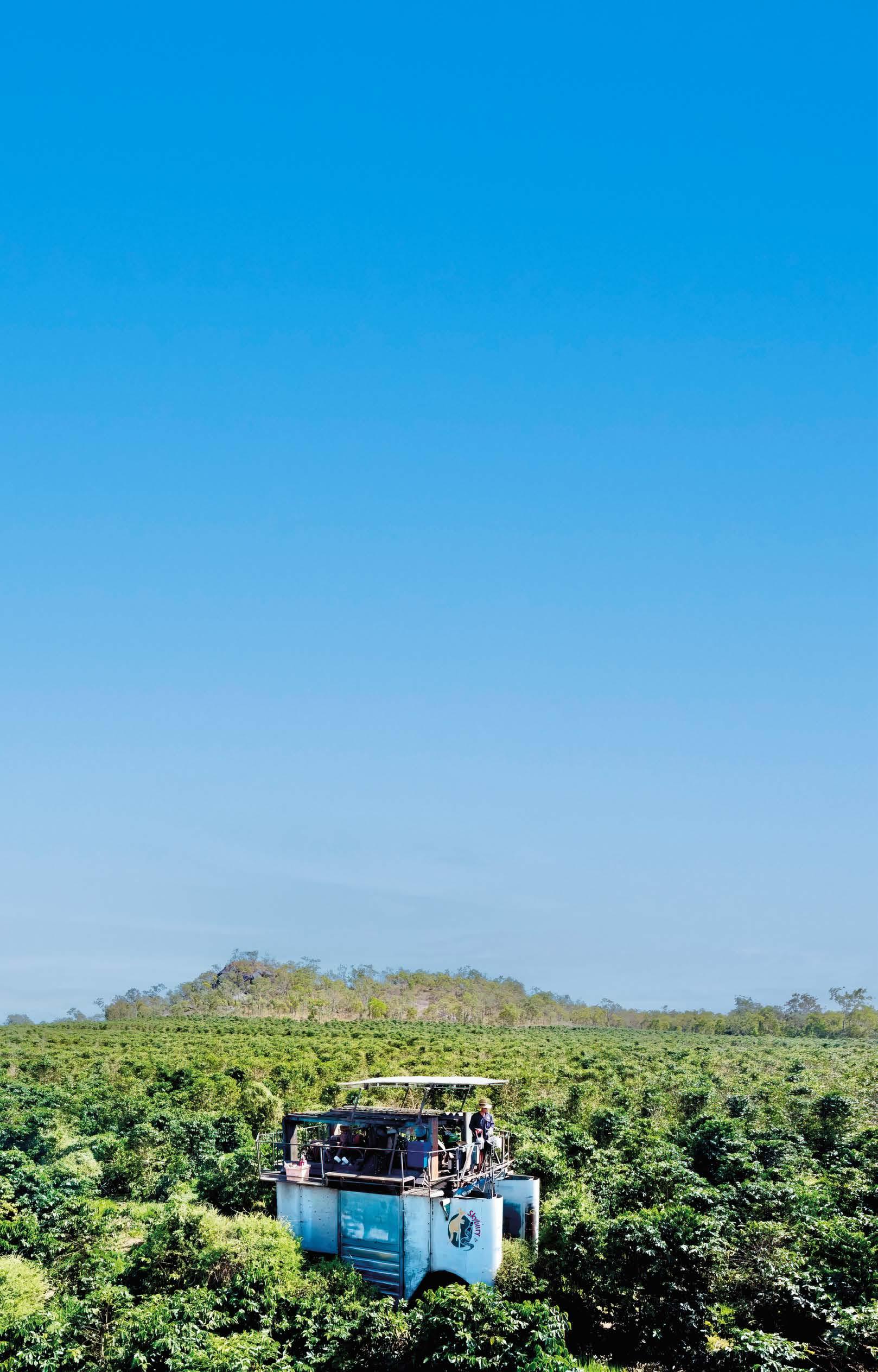
BeanScene celebrates one of Australia’s longest operating coffee plantations, Skybury Coffee, and discovers how the next generation of MacLaughlin farmers is ready to adapt to the industry’s evolving coffee culture.
a coffee crop that is only in the ground for three to four years, allows us to turn that tree back into the soil, which improves our carbon levels. We’re constantly changing the land that’s used for coffee and swapping it out for papaya.”
Ian and Marion adopted the dual cropping method 10 years ago after seeing how well the two crops worked together while on holiday in Brazil.
“Papaya has a lifespan of 18 months so if you plant the two crops together, one after another in a row, by the time the papaya is finished, the coffee trees are two years old and then you get a commercial crop on year three,” Candy says.
The papaya provides the shade that coffee trees thrive underneath. The other bonus of growing the two crops in the same drill, Candy says, is that only 10 per cent more inputs of fertiliser (copper and caterpillar spray) and water are required. This results in better use of irrigation and not having to turn the soil as often.
“Where possible we’d rather rely on the natural ecosystem so we try to do a limited spray program. We know we’re doing a reasonable job in that space because come harvest time, the amount of insects we shake out of the trees is just incredible. There’s a micro ecosystem that exists
within the coffee trees that benefits the soil structure. Because it’s left alone between harvest you get a real build-up of wildlife which is great, and it means you need to spray less [fertiliser],” Candy says.
The Skybury farm does a lot of work around carbon neutrality, which refers to how often soil is turned, and inter-row vegetation. Candy says it’s something Skybury will look at further within the next 12 months and start becoming part of its dialogue with customers.
“It might even be something that influences people’s buying choices as to what plantations they choose to support,” Candy says.
“I’ve also been told that some of the major [food and beverage] retailers are going to start using farm’s [carbon] credits to offset their own credits, so you will be given an advantage if you have that compliance already in place. The major players will ultimately dictate what happens on farm, whether we like it or no. It’s just the reality.”
Skybury embraces as much of the region’s natural resources as possible. It uses solar panels on its pump houses and all major infrastructure to offset electricity costs and implements water conservation, and erosion control.
It has also eliminated coffee waste on the farm by creating a skincare range with green coffee waste product and papaya seeds. The result is a lip balm and coffee seed oil created in collaboration with a local business.
Aside from the farm’s sustainable developments, Candy says Skybury’s biggest evolution has been understanding how to shift from being a large-scale coffee producer to one that does micro lots.
“If you are set up to be a large-scale producer, it’s really hard to go and suddenly become macro, and I’ve done it. I’ve done small runs and worked closely with Oliver James who owns Tattooed Sailor roastery in Cairns,” Candy says. “I have this connection to the industry because I think it is important to understand what roasters and baristas are doing, and what their consumers want.”
While Skybury has the equipment to handle micro lot volumes, Candy is limited by her workload capacity. Instead, if an interested individual were to look into fermentation processes and develop micro lots, they would be welcome to take on that side of production.

In 2022, Candy was involved in a study with the University of New South Wales who were interested in trying to quantify
Skybury Coffee Founders Ian and Marion MacLaughin have helped position Australian-grown coffee in domestic and international markets. To this day, Marion is Skybury Coffee’s financial controller and Ian is responsible for nutrient and water management programs, business analysis, planning and budgets. Three generations of farmers now live on the farm.
what Australian coffee tastes like. While Candy doubts there is one specific answer, what she did discover through speaking with other producers, is that although there’s a lot of talk about Australian coffee in general, the volume of Australian growers remains the same.
“The number of farmers is not increasing. Those who are coming on board are taking the more macro approach and are quite specialised in terms of their wet processing. They have a huge advantage over us in being able to charge $60 to $100 a kilo, whereas we’re still working on volumes of 40 tonnes,” Candy says.
She notes the Byron Bay region of Australia will struggle with coffee production as land becomes more valuable for housing, and anticipates Queensland will follow suit. What’s exciting is new opportunities to look at viable land for future coffee production, such as that in Western Australia.
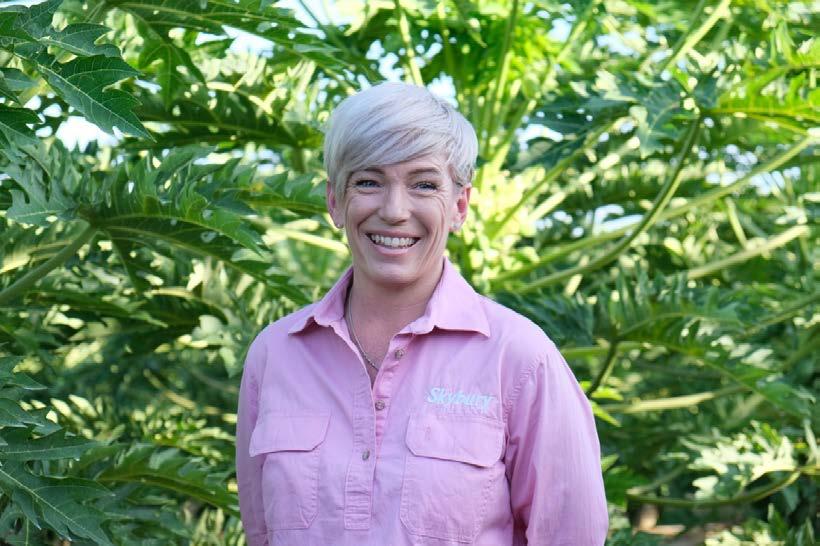
For those entering the market, Skybury is happy to share their experience and learnings, and assist in research and development to potentially lead breeding opportunities.
“I think our key role remains around education. How do we continue to educate and promote that the coffee industry is alive and well in Australia and help farmers who want to become part of that?” she says.
“We need passionate new farmers who understand that growing the crop is almost
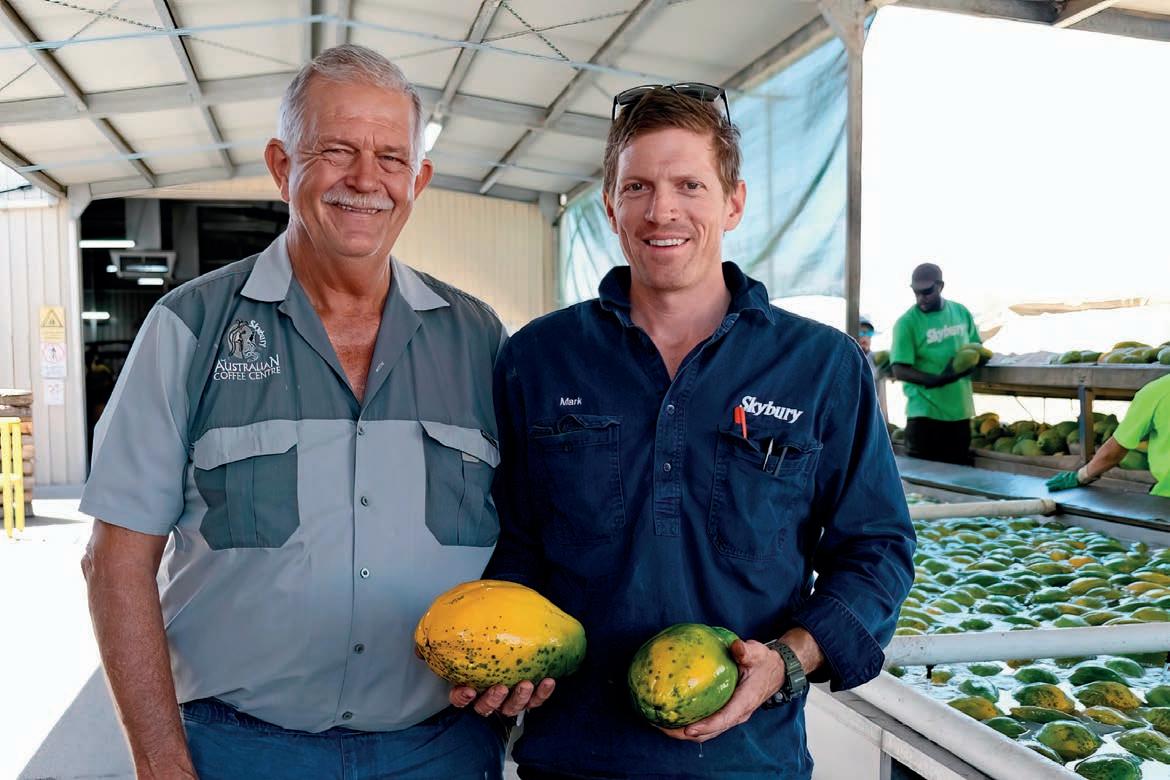
the easy part. It’s the infrastructure needed to get it off the tree, to stabilise it, that’s the challenge. And that’s why we’ve got to move to a community approach with a centralised mill and wet plant so that each farm doesn’t have to outlay that huge cost.”
In Australia, customers buy Skybury Coffee for nostalgic reasons and its “traditionally-loved flavours”. Overseas, large volumes sell due to its quality. “We can provide 10-tonne lots that customers know is consistent year in year out,” Candy says.
Such international buyers include loyal Japanese businesses who have bought Skybury coffee for the past 15 years, as well as suppliers from Hamburg and Spain who buy pallets and distribute it, including to businesses in Europe.
“It’s a wonderful outcome for the family [to see our coffee consumed throughout the world]. It’s validation for the work dad did in the very beginning. He worked quite hard in establishing long-term relationships with traders in Spain and
Skybury is one of the largest growers of Red Papaya in Australia, led by farm Founder Ian MacLaughin and son Mark.Hamburg,” Candy says.
Back on Australian soil, Candy says it’s always been challenging for Skybury to compete with international sale prices. While that’s shifted in the past 12 months, it has made Skybury that bit more affordable to Australian businesses.
“Our policy has always been to deal through traders and not through individuals, but you may see that change in years to come. We understand we will get a greater cut-through by dealing with the roasters who are passionate about showcasing Australian coffee. If we can make it more affordable for them, then I think it’s probably a way we can reintegrate ourselves into the domestic market,” Candy says.
“It’s about getting the appetite for consumers to make the switch [to Australian coffee], and for more roasters to use Australian coffee. If all roasters showcased an Aussie coffee one month a year, we would never have an issue selling our product.”
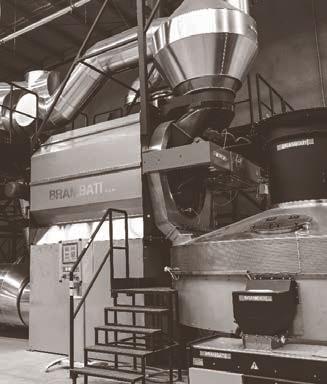
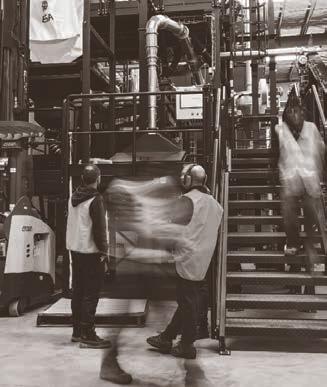
It’s a solution Ian MacLaughin would love to see. Candy says her father has been called “a maverick” within the coffee growing community, but he would probably say he’s more “a leader”.
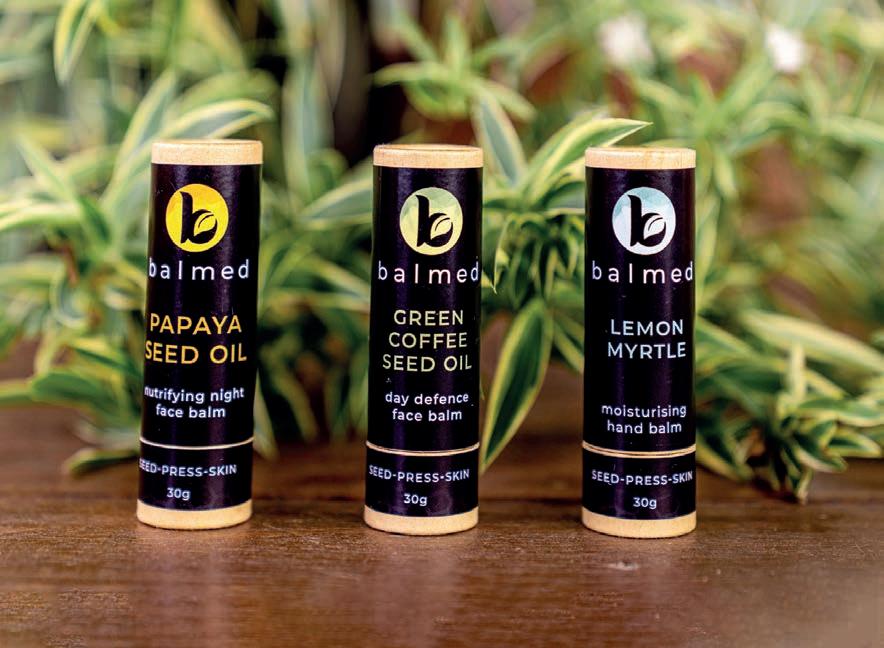
“We’re always going to be part of the founding farming group around coffee in
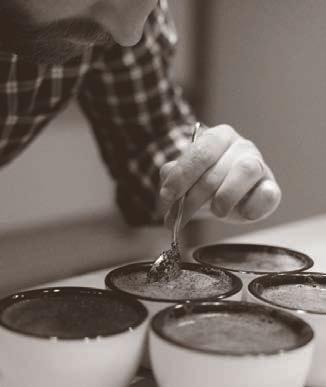
Australia. It’s the right time for the next generation to take over because I do think the Australian coffee industry is going to change. It’s pivoting now and the way the world perceives coffee, particularly farmers and what they’re doing, has certainly changed quite significantly in the past five to 10 years,” Candy says.
“There are still components of farming
that are about soil health, water, and nutrition, which are my brother’s areas of expertise.
“But for me, we’re running a business now. How do you stay relevant, front of centre, find sales, and engage with your customers? You need a diverse understanding of business, and that’s what I enjoy.”
grfsgds
Chef Warren Mendes is constantly travelling and looking for inspiration to create simple and impressive recipes for the home cook. Equally, his travels led to the discovery of coffee drip bags on a recent stay in a Gold Coast hotel: “I had no idea what the contraption was. It came from The Laughing Pug Coffee. I opened the arms of the coffee bag, poured the hot water in, and wow, was it delicious.”
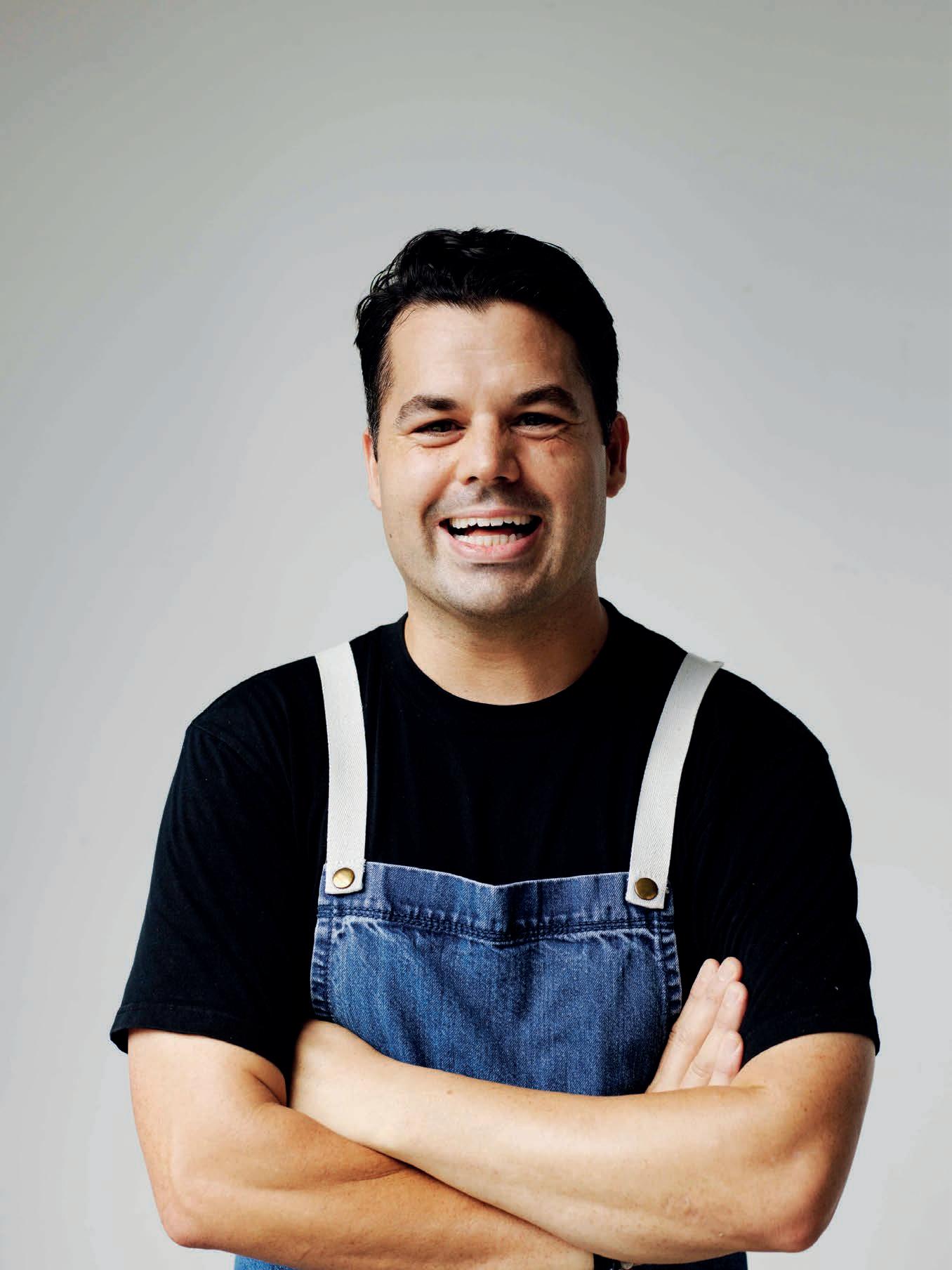
Growing up in Johannesburg, South Africa, Warren Mendes would wake before sunrise to view the animals on safari and always make a coffee stop along the way.
“I drank coffee with a rusk – a dry muesli bar biscotti that you dunk into your coffee –as an early morning snack to take you onto a later breakfast,” Warren says.
As he got older, that morning coffee with a dash of milk was replaced with amarula, which Warren describes as a “South African baileys”.
“It’s made from the marula tree. Elephants shake the tree to drop the fruit it produces. As the fruit ripens it becomes very sweet, and when it ferments it becomes alcoholic, so when you spike your coffee in the morning when you’re on safari, it’s the most amazing start to the day.”
Time on safari is integrated into leisure time in South Africa, the same way Australians go to the beach, Warren explains. On the weekends as a kid, he would stay in different safari lodges and be exposed to giraffes, lions, and other wildlife.
In the city however, Warren says Johannesburg has become a “cool, creative destination”, with a few “cowboys” leading the charge for a coffee culture and culinary scene that’s fun and adventurous.
“The country has had a turbulent history in the past of following rules and traditions that were set in place, and suddenly there’s new generations having fun with things and exploring with no boundaries, and I’ve definitely noticed that with coffee,” he says.
“Even if you visit the farmer’s markets, like the one in Pretoria near Johannesburg, you’ll find rows and rows of enamel coffee pots on individual stoves. You get there at 5.30am to 6am and everyone goes straight to get their ‘moer koffie’.”
Warren considers South Africa’s coffee culture to be somewhere in between the United Kingdom’s and Australia’s. While it has a progressive coffee culture, Warren says some of his most memorable coffee experiences are situational.
“When I was back recently, I had hand-ground coffee at sunrise overlooking a watering hole. To me, that was the most magical coffee, even though the beans were probably a little over roasted. In that case
By Sarah Bakerthe habitual nature is quite important,” he says.
In Sydney, Warren attributes one of his best mates, Sasha Jade of Fat Poppy Coffee, as the person who has helped him develop a deeper fascination for coffee.
“Sasha made me more aware about the process of roasting, coffee as a fruit, and introduced me to cupping. It blew my mind,” Warren says. “I never really thought about coffee akin to wine making. There’s a massive process behind selecting the fruit, roasting the coffee, and exploring different flavour profiles. As a chef, I only figured this out quite late in my career. It fascinates me.”
Warren always has Fat Poppy Coffee in his French press at home, which he leaves to brew for four minutes with a timer.
“I like my coffee to be punchy. I like a robust, strong, heavy roast, like the way I like my caramel or salted caramel, on the edge of being burnt. I don’t mind that little bit of bitterness combined with sweetness,” he says.
Warren is not ashamed to admit that a tin of instant coffee is also allowed on the kitchen bench at all times.
“I am quite partial to an instant coffee. There’s nothing wrong with it. It used to be my dirty secret, but I’m not hiding anymore. I’m proud about it. I think it’s ok to have and accept it for what it is – a hot brown drink – on top of other delicious, beautiful coffee forms,” he says. “A strong batch brew with a slightly sweeter milk, such as oat, is actually quite delicious. It’s like being a chef obsessed with amazing food, but at the same time, fast food chicken nuggets can be delectable.”
When Warren’s not brewing coffee at home, he says nothing beats the experience of visiting a coffee shop and letting someone else do the work for you.
“Even if I’m going to early morning shoots, I’ll stop and get a double shot coffee to have in the car on the way. I like that habit. It’s nice to see cafés buzzing again. There’s a special interaction customers have with their local barista, maybe something we took for granted before lockdown,” he says.
Warren grew up surrounded by game farms, and a vibrant food culture in South Africa before moving to Australia as a teenager. From an young age, he had an interest and skillset in cooking. His earliest
cooking memories are of his mother in the kitchen, holding a hand mixer, and the reward of licking the beat at the end.
“I was fascinated with what she was cooking and how she was doing it,” Warren says. “Food was always the centre of socialising as a family on the weekends. We loved having a braai, a type of South African barbeque. It’s a big process that takes a long time because you’re cooking on coals. I was always surrounded by food and I started to cook more and more as a kid but never thought I would do it as a job.”
Instead, Warren studied economics and accounting at university, and was content with owning a briefcase, a nice car, and simply cooking “on the side”. He went to work in the corporate world and knew early on it wasn’t for him.
Warren decided to follow his food dream and trained as a chef at Le Cordon Bleu in Sydney, Paris, and London. He says changing career paths “was the best decision I made”.
That career change has led to work as a chef, recipe writer, and food presenter. He’s worked in restaurants and catering, as delicious magazine Food Editor for more than four years, and across various cookbooks and food TV shows. This included Everyday Gourmet, and his own series, Food Trail, which launched in 2022 and can be watched on demand via 10play.

“What we realised in making that show, is that Australians still have this fascination with travel and food, despite the blip of COVID-19 in our lives,” Warren says. “To film that first season, we left in March 2022, just as the borders had opened again. It was so beautiful to be in South Africa. People were open to having us there and we were able to really show off the country’s food culture in all its facets. I think everyone really enjoyed seeing this other culture. South Africa is very familiar to Australians, but nobody really knows about its food.”
What it is, Warren says, is food that tells a story about the country’s many cultures.
“It’s a multicultural country with traditions that are hundreds of years old. The country was colonised hundreds of years ago, so you’ve got these deep cultures that have evolved. The Indian cuisine is incredible in Durban, and Cape Malay cuisine is fascinating – big spicy flavours,”
Chef Warren Mendes talks to BeanScene about South African safaris, uncovering an unknown food culture, and why the best coffee experiences are situational.
he says. “South African food is very spice driven with huge influence from the east, which is surprising to people, but it’s just really delicious food. Enjoy that with a beautiful sunset and some giraffes in the background, and yep, I’ll take that job any day.”
In Food Trail’s second season, airing
later this year on Network Ten, Warren will explore the hidden gems of South Africa, taking the back roads to some of the country’s less obvious food destinations.
“Because South Africa covers the Indian and the Atlantic Ocean, the coastline is incredible. It’s rugged in places, there’s desert, and then suddenly you’re on striking

white sandy beaches, and that comes with incredible seafood,” he says. “The show will definitely be a feast for your eyes as much as it is for your stomach.”
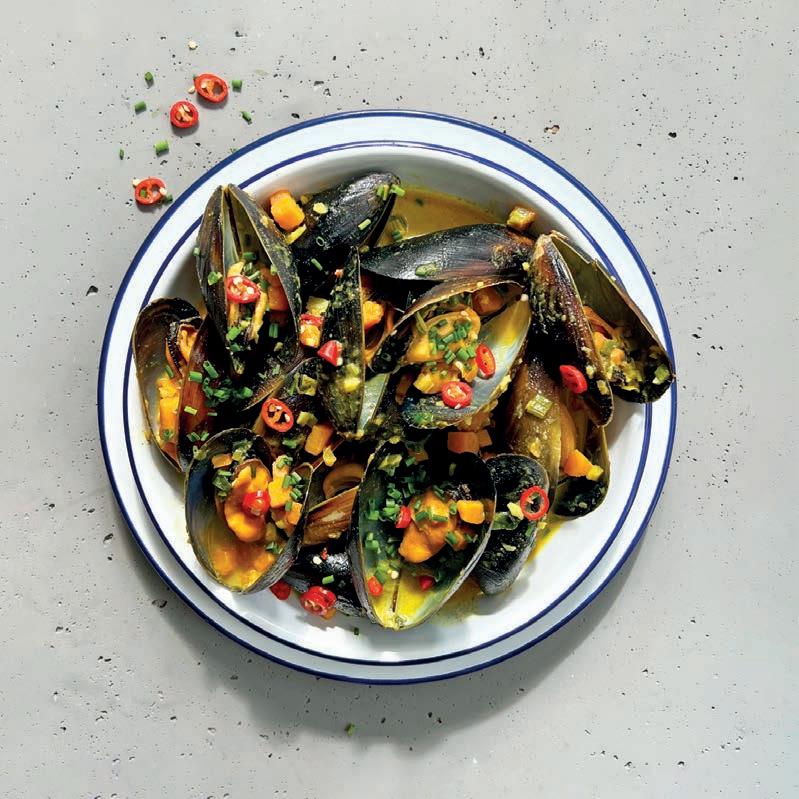
Warren stresses the show isn’t a 10-part series about him travelling back to his homeland. It’s about the people and places of South Africa and uncovering the faces behind the food.
“I’m always meeting someone and finding out about their ways of doing a traditional recipe or why certain foods are special to them, or to an area, or culture. I’m just a guide along the way to some beautiful locations, local people, and together we cook some delicious food that will inspire people at home,” he says.
“You’re on the move every day, but it’s the dream job. The travel and early call times can be gruelling, but then you wake up in a beautiful location and spend the day with amazing people, learning about new foods, techniques, and cultures. I would do it every day of the year if I could.”
After filming in South Africa, Warren hopes to uncover more about the land he now calls home and spend time exploring his own backyard.
“I’m an immigrant Australian, but I don’t think I’ve seen the best of what Australia has to offer. I’d love to see more of this beautiful country,” Warren says. “Food Trail Australia? Maybe.”
With over 100 years’ experience in the market, Petroncini has developed the broadest range of tailor-made solutions for the green coffee receiving, cleaning, conveying and storaging stages, making sure gentle and efficient treatments are the bottom line right from the start.
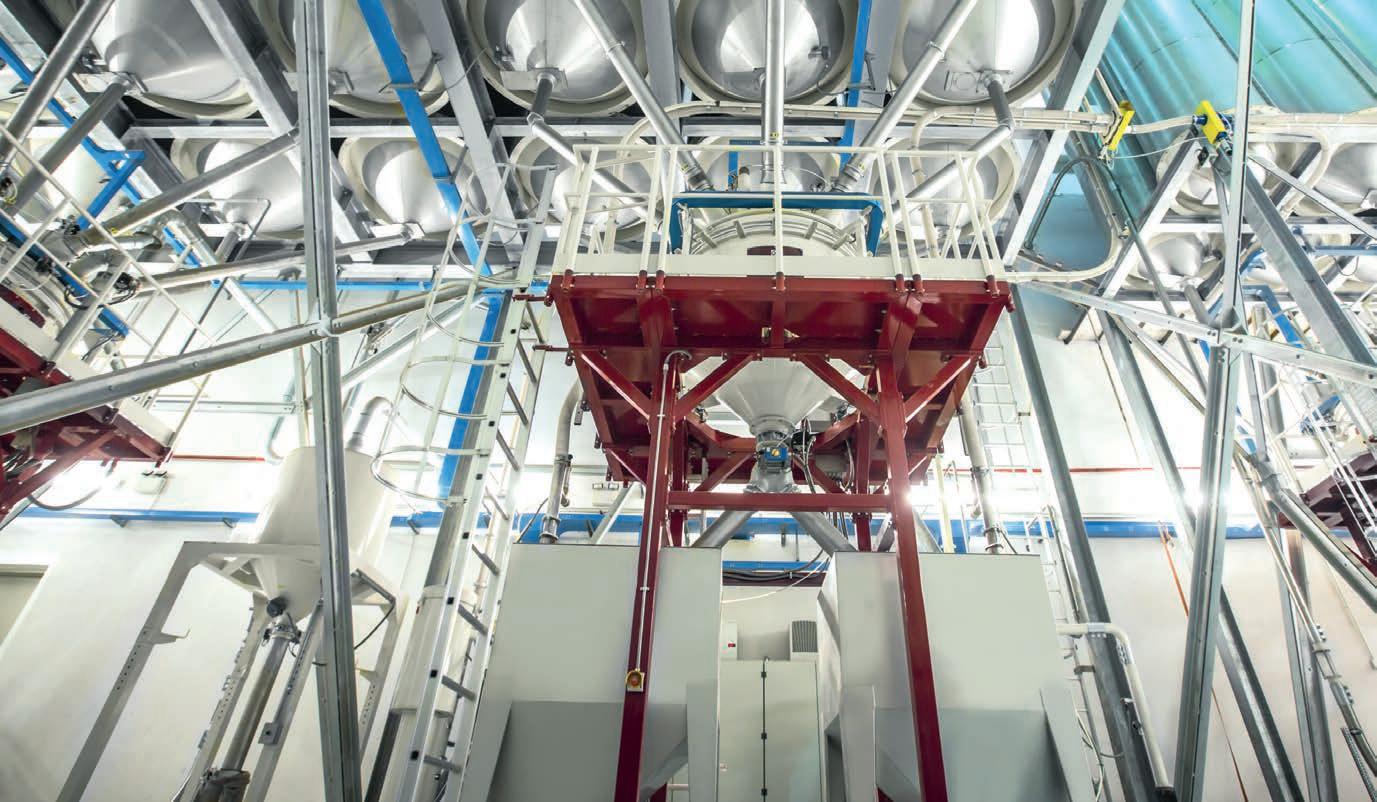

The next best thing to barista made coffee has arrived. It’s only taken 30 years of roasting experience, a curation of specialty green beans, multi-stage precision grinding, oxygen modified encapsulation, and years of development to perfect. Small in stature, big on flavour.



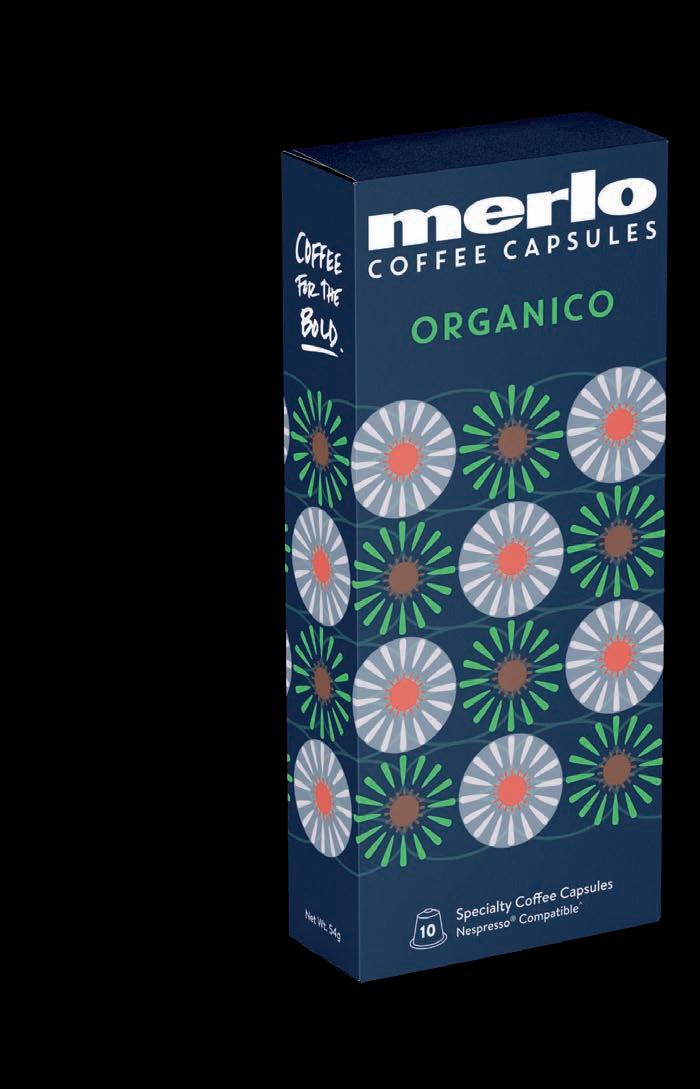
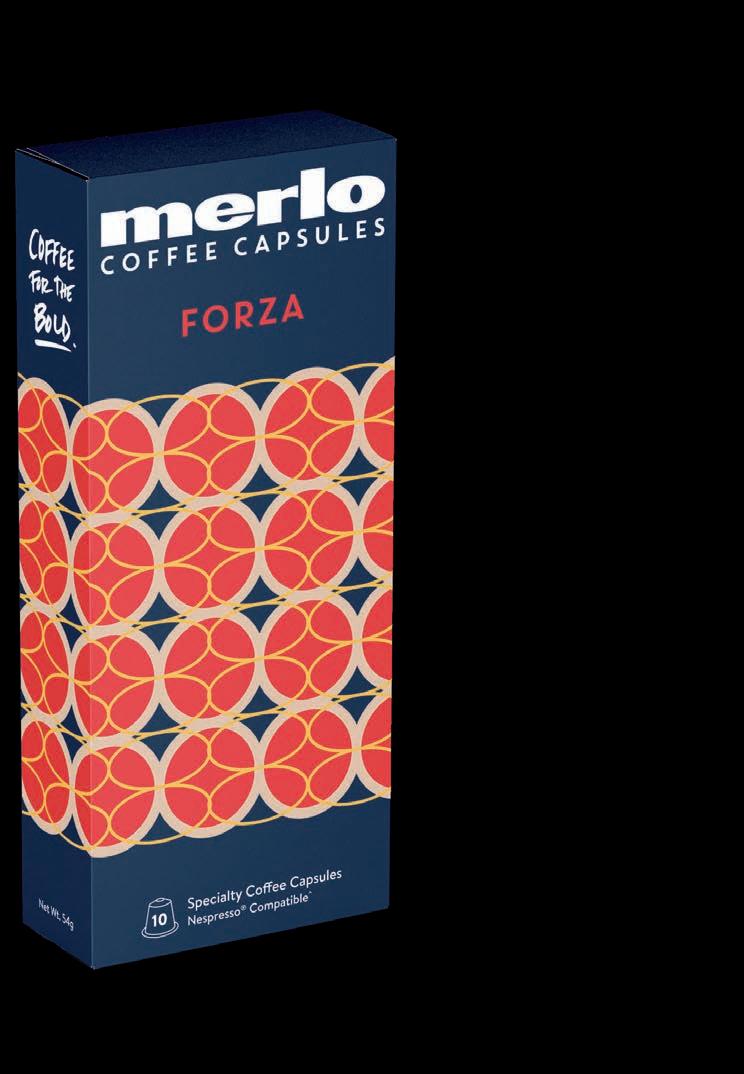





We’ve continued to evaluate & evolve the MILKLAB Oat formulation, taking on board feedback from the industry and consumers. Our latest formulation is smooth, creamy and has a subtle, natural sweetness that perfectly complements espresso coffee.
FOR YOUR FREE SAMPLE HEAD TO www.milklabco.com/sample
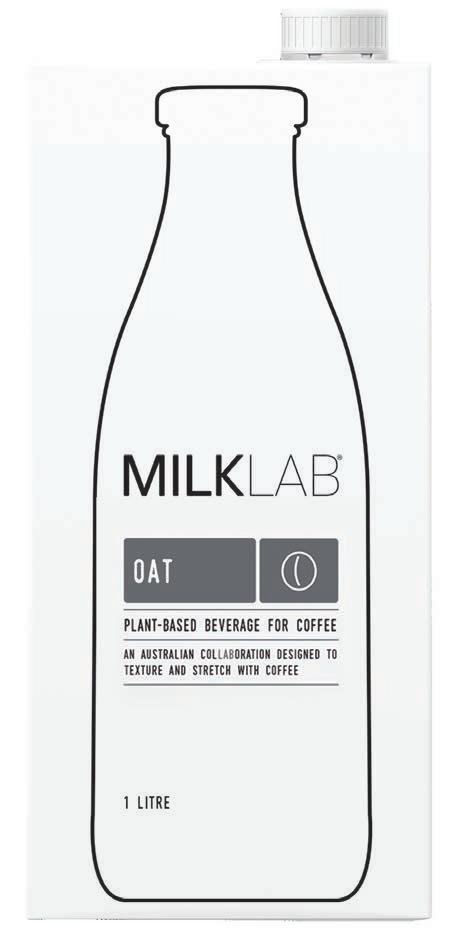
he name Axil Coffee has been synonymous with the Australian specialty coffee industry for the past 12 years. In 2022, it was the name tied to winning World Barista Champion Anthony Douglas, but in 2023, the company, led by Founders Dave Makin and Zoe Delany, plans to share the magic of Axil to new and untouched regions of the Australian coffee community.
“Axil is an expression of myself and Zoe, and what we wanted to do. I came out of school and did a degree in catering and hotel management, so for me the aim was to always run a professional group of cafés that supports our team,” Dave says.
“We opened our first Burwood Road
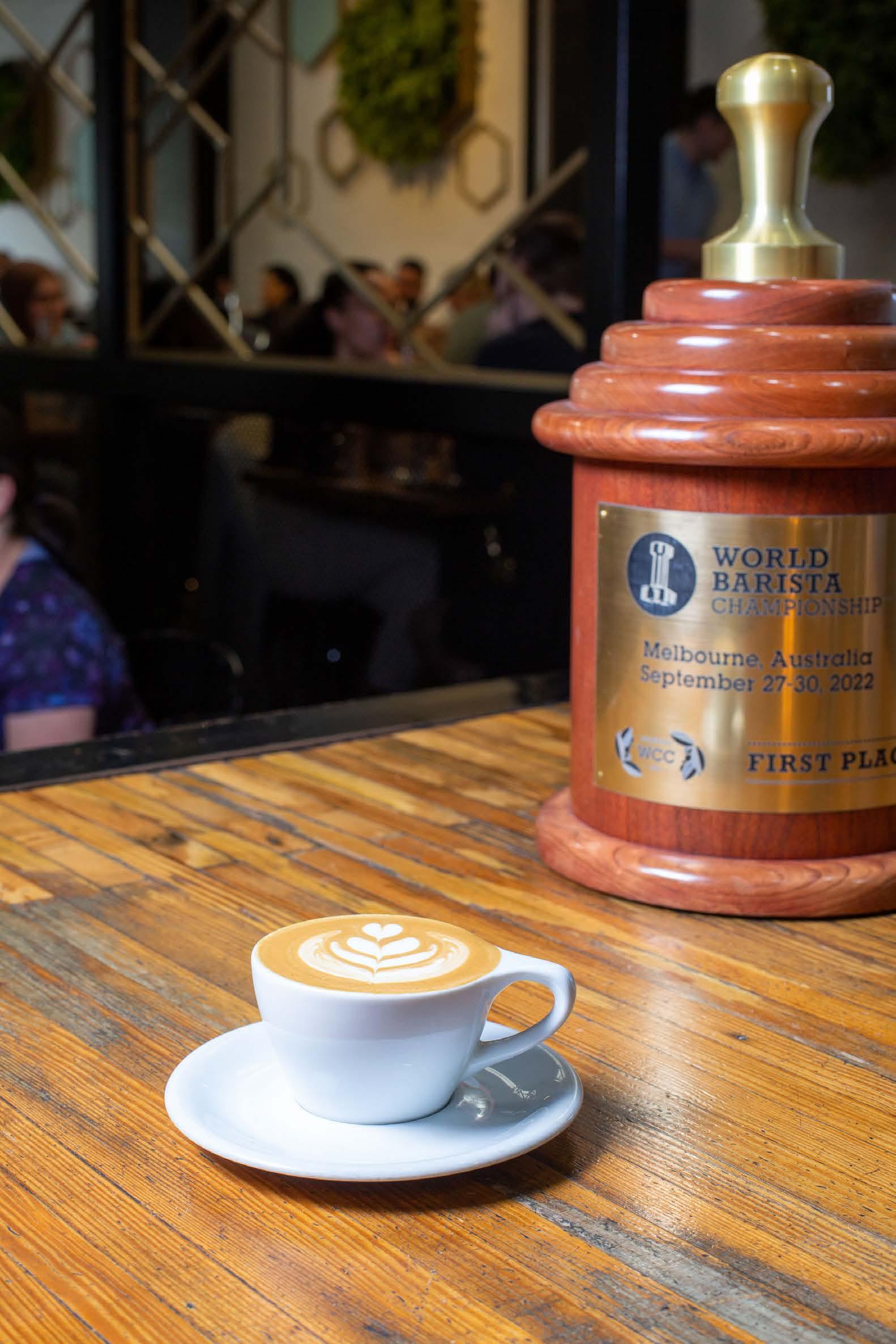
store in Hawthorn on 18 May 2011. I remember opening the doors and having that moment of, ‘oh my God, is anybody going to come?’ Then it shifted to, ‘oh, my gosh, we’re full’. And that happened very quickly – within the first week.”
Now, with 19 Axil-branded cafés – and counting – and a team of 300 staff, the company has had to develop its own payroll, marketing, and operations department with the necessary processes and systems in place to help manage and sustain its growth.
“From the very beginning, we made sure we did things the right way, therefore we attracted good staff and kept a lot of good staff,” Dave says. “Eight staff members are eligible for long-service leave. To have eight of the original crew still here 12 years later,
is a testament to us doing things the right way and looking after the team.”
The same principle applies to Axil’s wholesale arm, where it aims to do business with like-minded professional business operators and offer support to help each venue succeed.
This includes sharing the Axil Training Manual with all wholesale customers, which details how to service a table and take customer orders with recommended abbreviations. Support also includes advice on how to manage labour structure and streamline bar design and operation workflow.
“In the beginning we had just five wholesale accounts – five people I knew in the industry who were hospitality
Axil Coffee Managing Director Dave Makin explains why the roaster is more than just a coffee brand with a WBC-win under its belt. He talks growth, expansion, and sharing the Axil experience.
professionals keen to jump on board and use Axil from the beginning. Now, we have three sales representatives on the road and around 160 wholesale customers,” Dave says.
Ninety per cent of the coffee Axil roasts stays in Metropolitan Melbourne. However, that barrier may soon be lifted with Axil looking to partner with interstate customers and branch into new territories.
“Since the World Barista Championship (WBC) win, some new accounts from all over the country have shown interest in what we do, so that will be our next big move – a push interstate and to try and find like-minded people in each capital city that would like to do business with us,” Dave says.
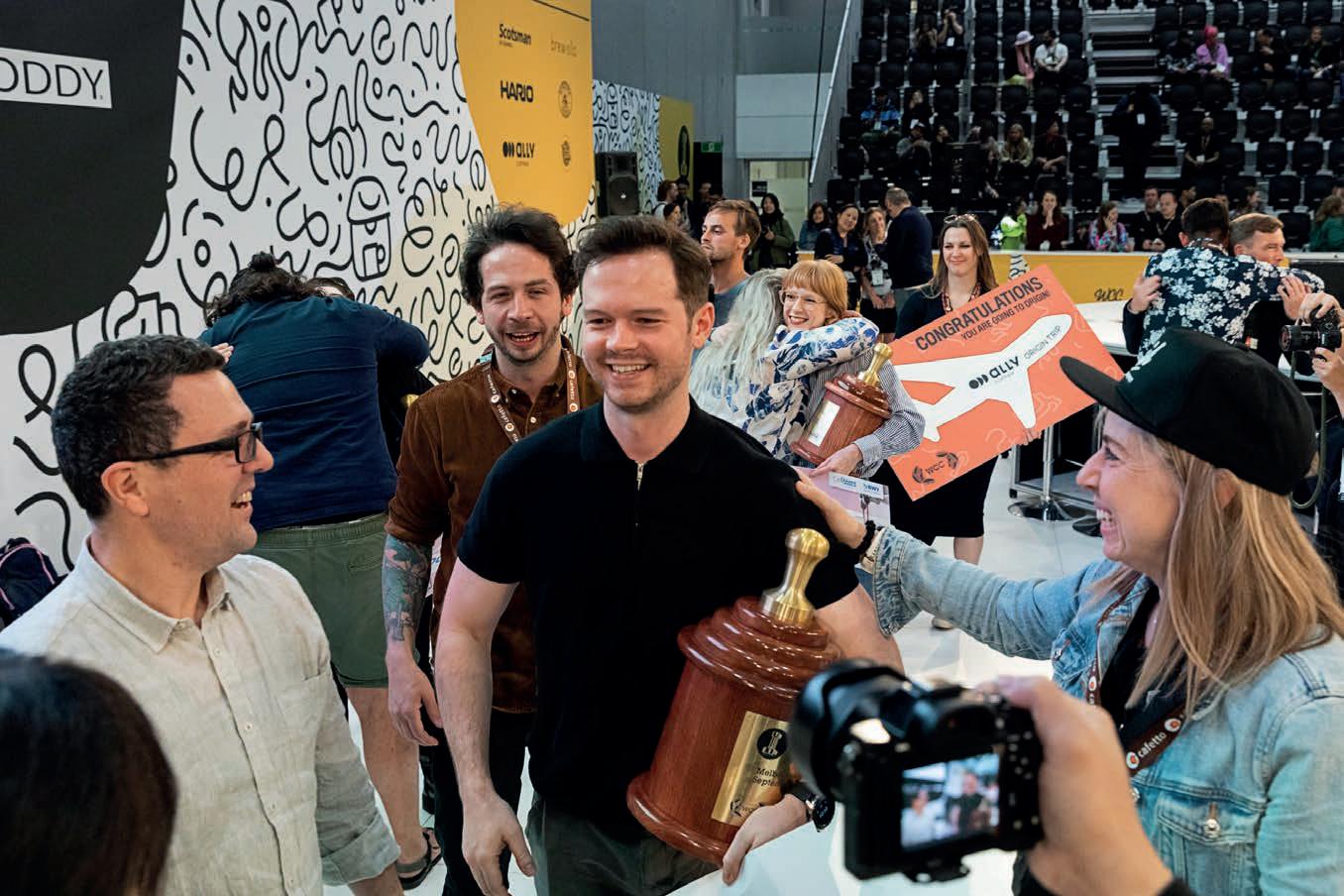
It’s for this exact reason Dave is grateful to have the right support structures in place as Axil enters the next phase of its evolution.
“There are plenty of coffee companies out there offering coffee in a bag. But being
amount of experience in delivering a retail concept. We understand exactly what a café owner goes through on a day-to-day basis, and that puts us in a really good position to help them because we walk the walk, as well as talk the talk.”
While a “pretty switched on professional” can tell the difference between specialty coffee brands, realistically, Dave says most people partner with Axil because they like its people and operations.
“We want to ensure everybody gets the right Axil experience, which is one that goes beyond a transactional relationship, into a partnership geared towards helping our wholesale partners thrive,” he says.
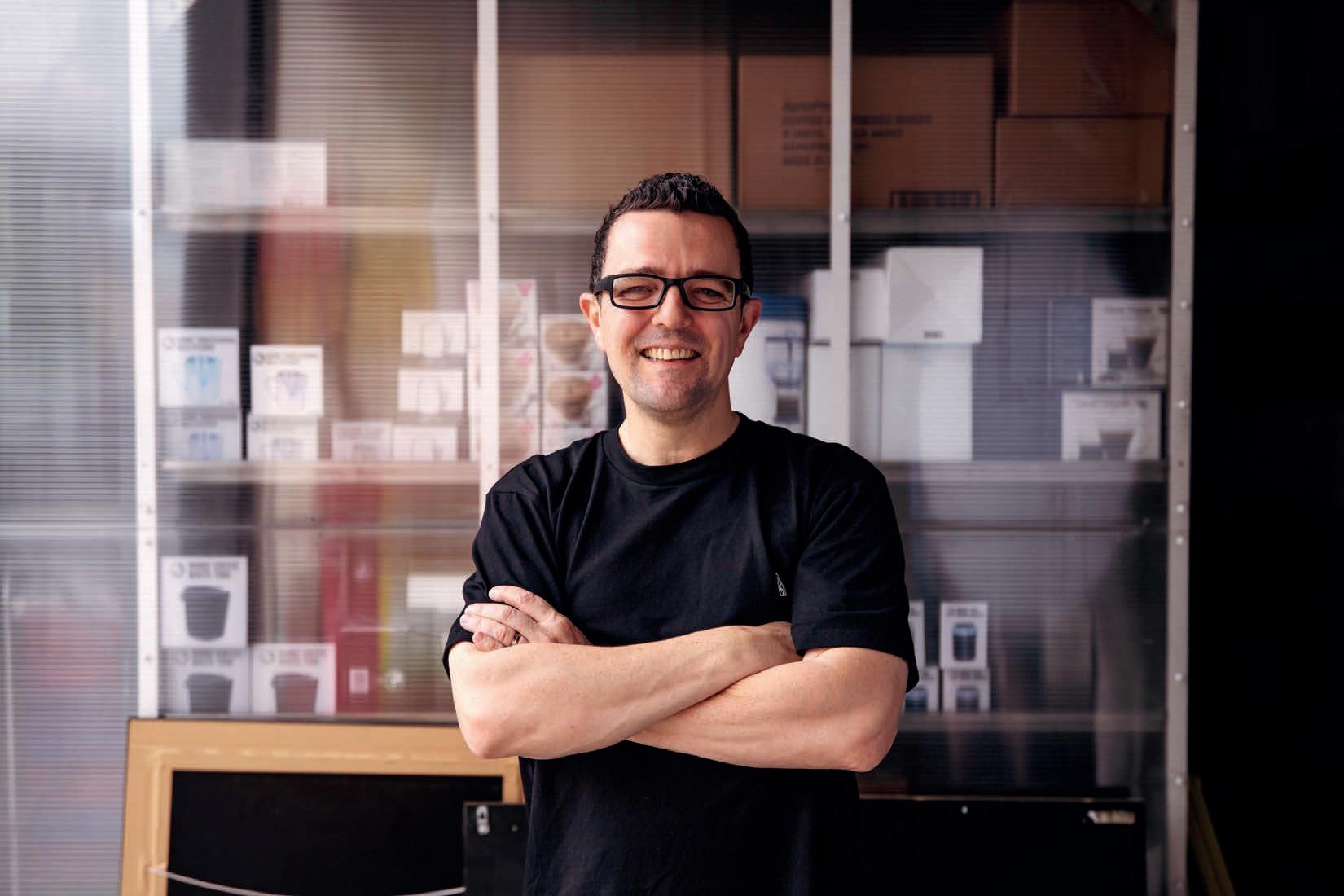
“It’s hard work being a small business owner. I was one myself. When you’ve got one café, you can’t have a marketing team, you can’t have a payroll person. Simple things like keeping up with changes to Fair Work or Superannuation, are hard. If we
Quite often a rise in volume can result in a lack of consistency and quality output, but Dave says Axil’s commitment to these two values has never strayed and underpin every decision it makes.
“I remember when we discussed the idea of opening in Chadstone Shopping Centre and whether it was going to hurt our brand. We decided that if we served bad coffee and bad food, it would, but if went in offering the best coffee and food, then it could only build our brand,” Dave says.
“I think that’s the trap people can fall into. If you lose that focus on ‘being the best’ as you get bigger, that’s when you see quality drop. We share the same mindset across all our cafés: to make consistently good coffee every day, and fast. If we do it right, people will come back.”
This outlook was tested during two uncertain years of COVID-restrictions in Melbourne. Axil Coffee went into 2020 will
Dave Makin is celebrating 30 years in the hospitality industry, and looks forward to expanding Axil Coffee to new markets.guy. Anthony’s an amazing staff member who’s been with us for a decade. He’s such a nice person and a great representative for specialty coffee,” Dave says.
“His win is an amazing achievement for the whole Axil team. It puts us on a global stage and recognises that we truly are good at what we do, and we represent what this specialty coffee industry is all about.”

As to how it translates into monetary gains, however, comes with a reality check.
“We certainly didn’t sell any more cups of coffee this week than before the WBC. From a retail and wholesale point of view,
it’s a nice feather in our cap, and a pat on the back for our entire team, especially for all the hard work that’s gone in over the years,” Dave says. “If anyone was looking at working with Axil from a wholesale point of view, then I think it shows our level of commitment and passion, but realistically, a café owner isn’t going to swap to Axil just because the World Barista Champion works with us.”
Instead, Dave is ready to embrace a new year and new goals using the same guiding principles and passion for hospitality he has shared over the past 30 years.
“Hospitality is what I’ve always done and wanted to do. I can’t imagine doing anything else – although if I could afford to be a professional race car driver, maybe, but at this stage I’m sticking to cafés,” Dave says.
“There’s still plenty of suburbs in Melbourne where there’s not an amazing coffee offer. Not to mention if we go into interstate where there’s even more scope for growth. It’s going to be an exciting year ahead.”
For more information, visit axilcoffee.com.au
ODOURLESS
NICKEL FREE
NON-TOXIC NON-FLAMMABLE
CARTRIDGES MADE OF 60% RECYCLED PLASTIC
ECOLOGO AND GREENGUARD GOLD CERTIFIED

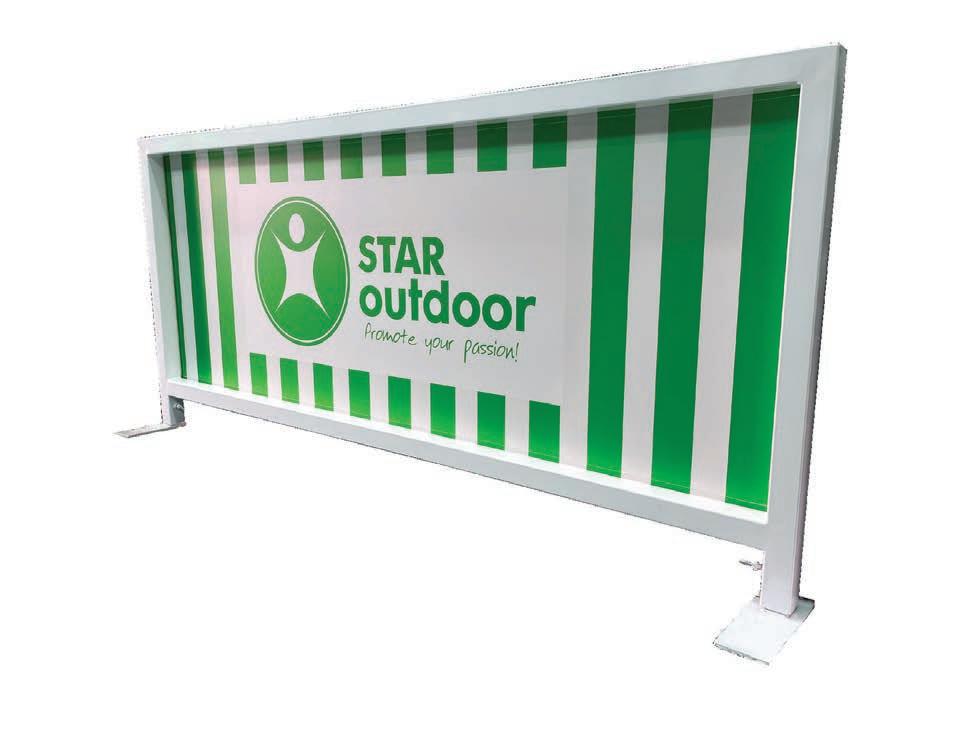
designed for the Lab
built for the Bar
the Ring for 58.40mm baskets
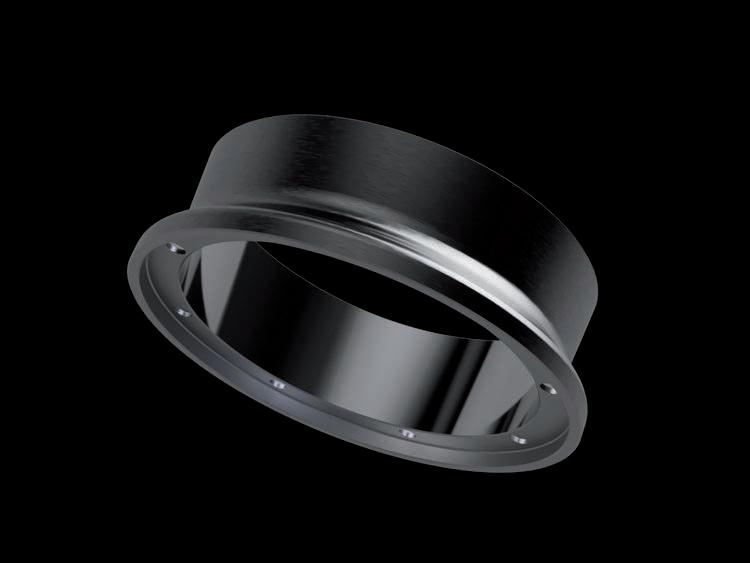
8 magnets mirror polished interior
the Comb
WDT your way
30 needles
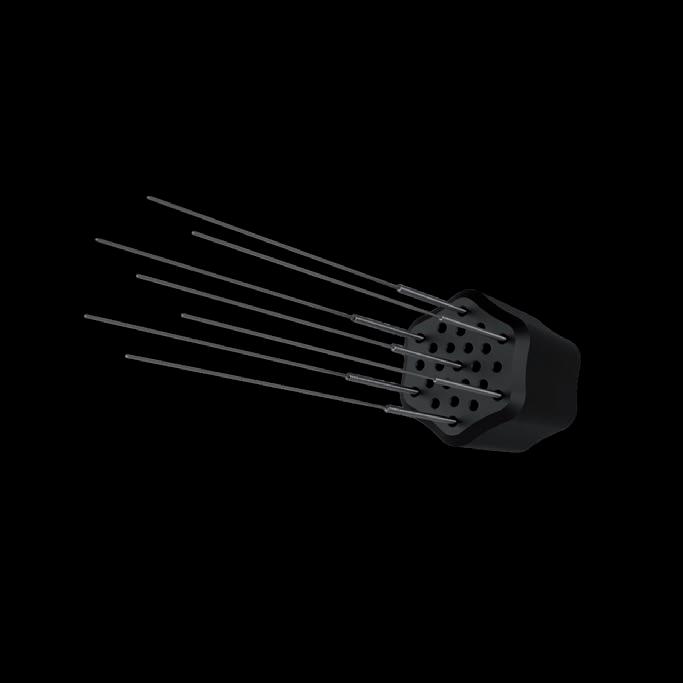
soft silicone handle
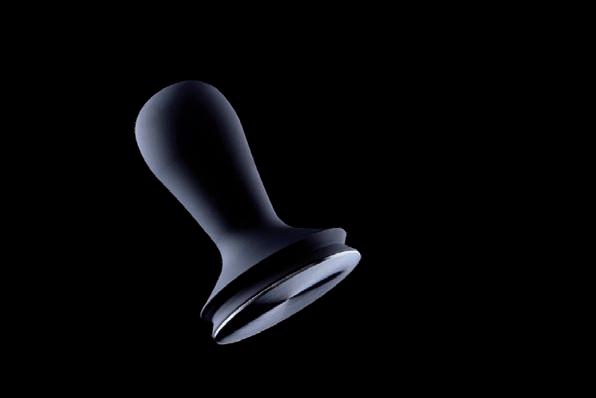
the Tamper
58.40mm shaped to eliminate vacuum

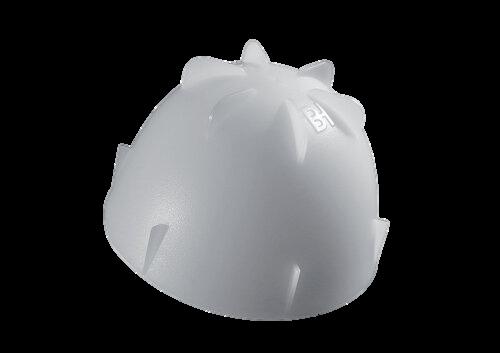
replaceable base
Now available through:

the Bowls

ultra lightweight
heat-preserving pure recyclable HDPE
Barista Technology Australia works with hundreds of tech customers who install and service their products around Australia, but the one question they all keep asking company CEO Brett Bolwell is, “how do I grow in 2023?”
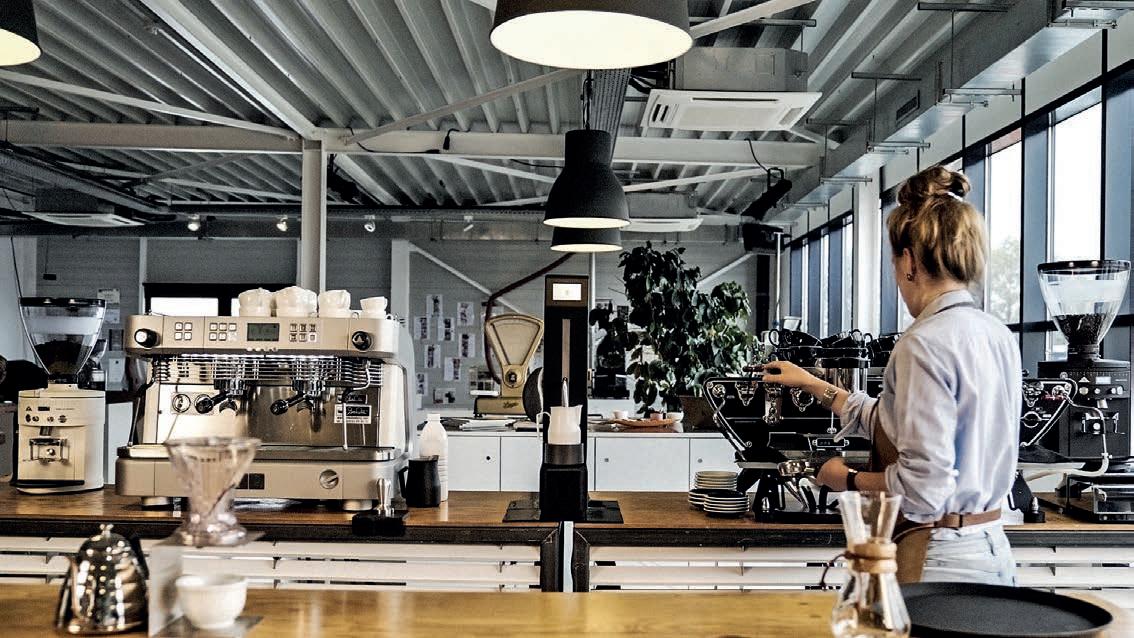
For this reason, Barista Technology Australia is planning a “big drive” in the technical arena this year, a sector Brett says has been relatively left alone, until now.
“We want to do a big push to all the tech companies that want to grow their business and deliver a key message to their clientele. They’re the ones on the front line. Every day they’re out there servicing thousands of cafés each week. They’re the unsung heroes in the industry,” Brett says.
“We’ve had a lot of conversations and they’re all interested in growth and expansion, and the more they understand our products, the greater the opportunity is to expand their business and offer a better service and solution to their café customers. Rather than just doing regular servicing of shower screens and burrs, they can educate their customers on how to use our products properly, who are equally as interested in running their business more effectively.”
Take the Flow telemetry system for example. Once a technician is across its operations, they can identify and maintain issues from the metrics they observe, such as leaky solenoid valves or if the volumetrics aren’t set up correctly.
“These are the things that roasters won’t know but a technician will. They can identify what’s causing an issue thanks to the data that Flow provides. Before going to a service, they can see that the customer’s done about 18,000 cups [of coffee], which is likely to mean they’re due for a burr or filter replacement compared to a venue that’s only done about 3000 [cups of coffee]. It’s all about helping businesses improve and achieve excellence at the end of the day,” Brett says.
The training of more technicians is already underway, with Barista Technology Australia soon to release about 50 to 60 “short, sharp, succinct” online videos for training and better support mechanisms on its website.
“Rather than ringing Barista Technology Australia to ask questions about a product or sifting through a manual, all the resources and information you need will be online. It will make our job easier and the
job of technicians even simpler,” Brett says.
One such product technicians will have to adapt to, is the newly released grinder integration with Flow, which is in the final stages of completion.
“It’s one of the biggest innovations I think we’ll ever come up with. Once a customer has a Flow device on their machine, our new grind-by-weight grinder will talk to the machine through Flow. As the flow rates changes because of the grind, it will automatically adjust the volume of coffee and the grind particle size,” Brett says.
“If your shot is running too fast and you need to adjust the grind a bit tighter, this new grinder will be smart enough to adjust the particle size finer, but the weight and volume of coffee dispensed too. It will extend its running time to get the right weight, while constantly feeding information back to Flow. The interesting this about it, is that it uses a bit of artificial intelligence technology, and will forecast where you’re going, and start to make adjustments before you need a big adjustment. It’s really quite intelligent.”
Most exciting, Brett says, is that the new grinder is the final piece to the puzzle
Barista Technology Australia on empowering technicians to become educators, the next phase of data integration, and why the company will keep being an industry disruptor.
that eliminates a barista’s manual thinking process about what way to adjust the grind, and how far to take it.
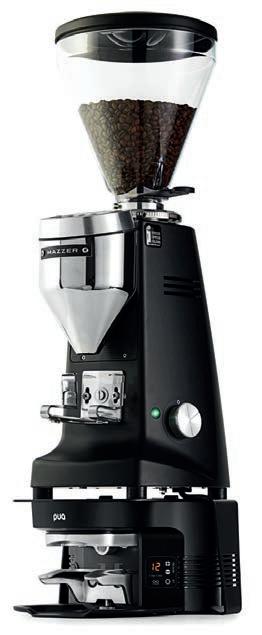
“This new grinder will get rid of that problem-solving for you and allow the barista to just focus on what they need to, which is service, and engagement with the customer,” he says.
Manual grinder adjustment is a problem many baristas face. On a recent trip to Auckland, New Zealand, Brett saw an extraction running too fast and asked the barista if she knew how to adjust the grinder. She said, “yes”, but that she was not allowed to change it, only the manager could, but he wasn’t there.
“It happens a lot in cafés. As a result, shot profiles go up and down they end up wasted a lot of coffee, or worst still, they end up serving a massively under-standard coffee because they don’t know how to do it right,” Brett says.
The Flow grinder integration project is currently being tested in Europe and is expected to launch to market in Q1, 2023.
With so many plans already underway for Barista Technology Australia, Brett predicts the rest of the market will follow suit, resulting in a lot more technology and innovation in telemetry systems and coffee machines to be revealed over the coming 12 months.
“I don’t doubt for a minute that there are not other manufacturers looking at what we’re doing,” Brett says.
“I think we’re going to see a lot more data integration with different platforms – so coffee machines and grinders talking to other systems. We’re already talking to a couple of big software companies about how we can integrate with their systems as well.”
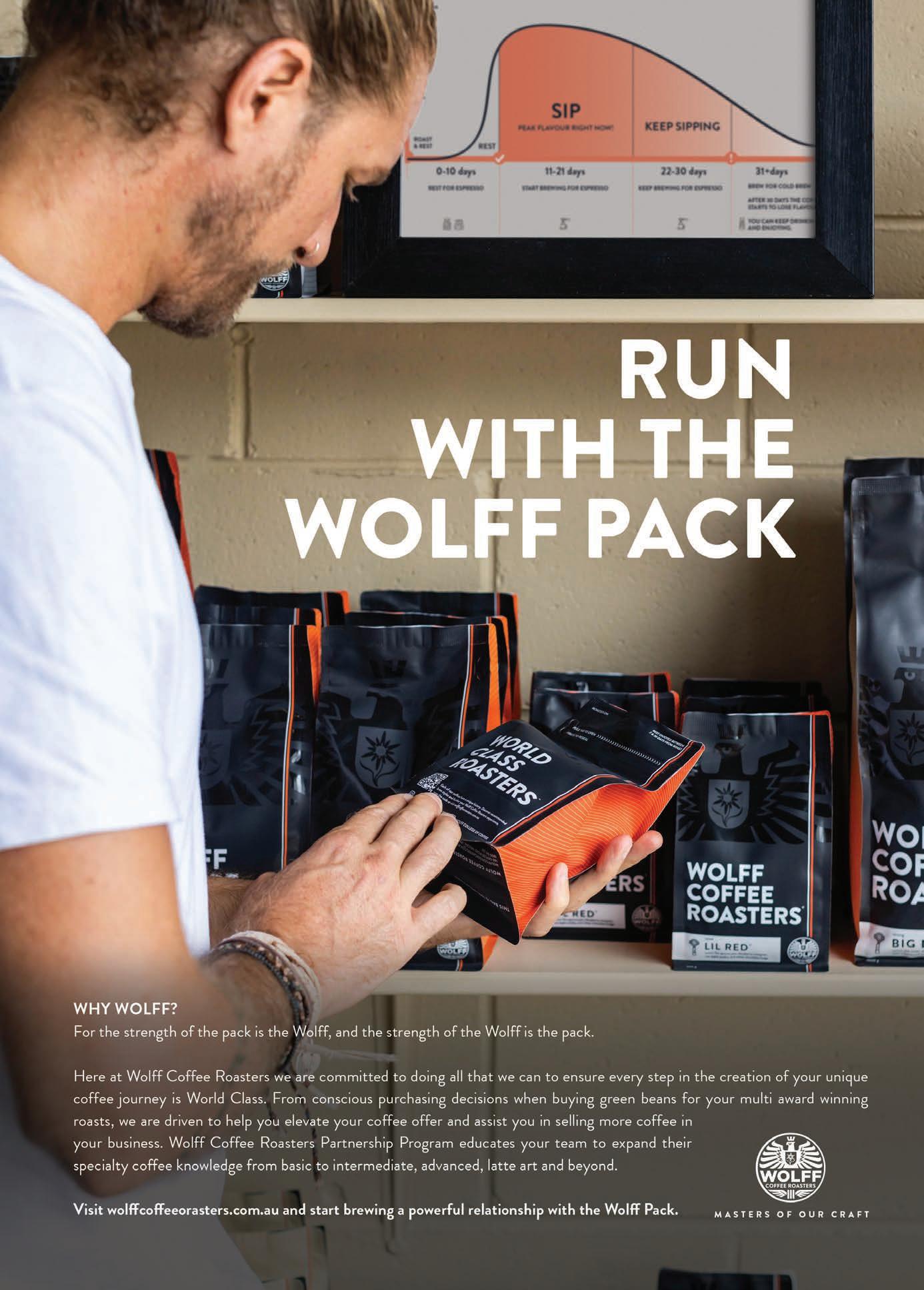
He also expects online training systems to have more uptake, with the idea of sending trainers out to sites becoming irrelevant because of the cost attached and constant staff rotation.
Another alternative is to educate the next generation of baristas. As such, Barista Technology Australia has worked with TAFE Queensland to develop a new specific
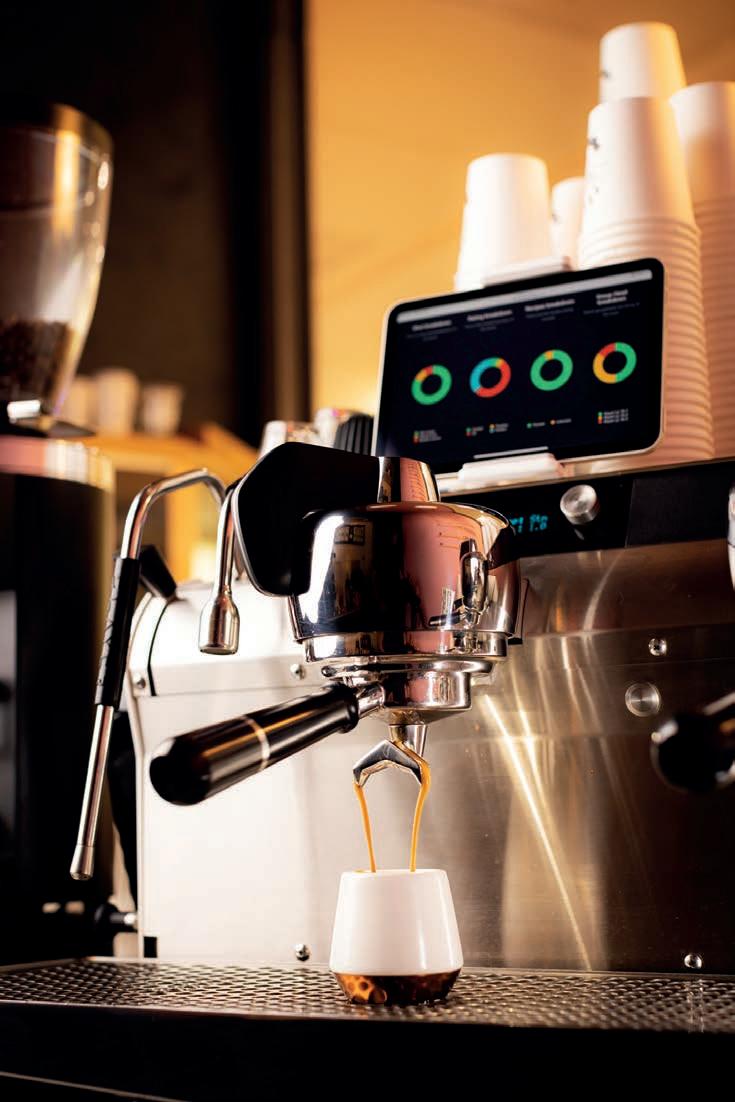
the TAFE platform, to start training kids at year 10 in school to do a barista training program,” Brett says. “When they get out of school, they can become a barista, get into hospitality, or go work for a chain, for example, but having that skill-set as a barista is so valuable, and we need more trained people in the industry.”
Brett adds that importing hospitality workers is a short-term fix that can’t be sustained. What is, is to work with the Australian government and organisations like TAFE, to have a more long-term approach.
“Once someone has a barista training program under their belt, they can move into other areas of the hospitality industry and pursue other career avenues. There are so many different programs inside the TAFE and education system for hospitality, we just need to start training people,” he says.
Barista Technology Australia is ready for another big year. Brett is excited to facilitate the next phase of the company’s growth, and is looking at bigger plans over the next five years, with the aim of continuing to support the Australian coffee industry with products and services that helps it grow.
“We read the market pretty well, it’s one of our strengths. As a disruptor in the market, we know where it’s going to be in the next five to 10 years, and we’re not just talking about it, we’re doing it now. The fact that we’re actively involved in multiple projects is a testament to the fact that we get stuff done,” Brett says.
For more information, visit baristatechnology.com.au
Flow telemetry is a useful tool to help businesses improve and achieve excellence.
“10/10 experience, everyone we gave it to loved it. Taste, texture, pouring and quality is next level!”
- Inside Café
“Love the texture, body, mouthfeel that lets our co ee shine - so good!”

- Ona Melbourne
“The best almond milk we have used!”
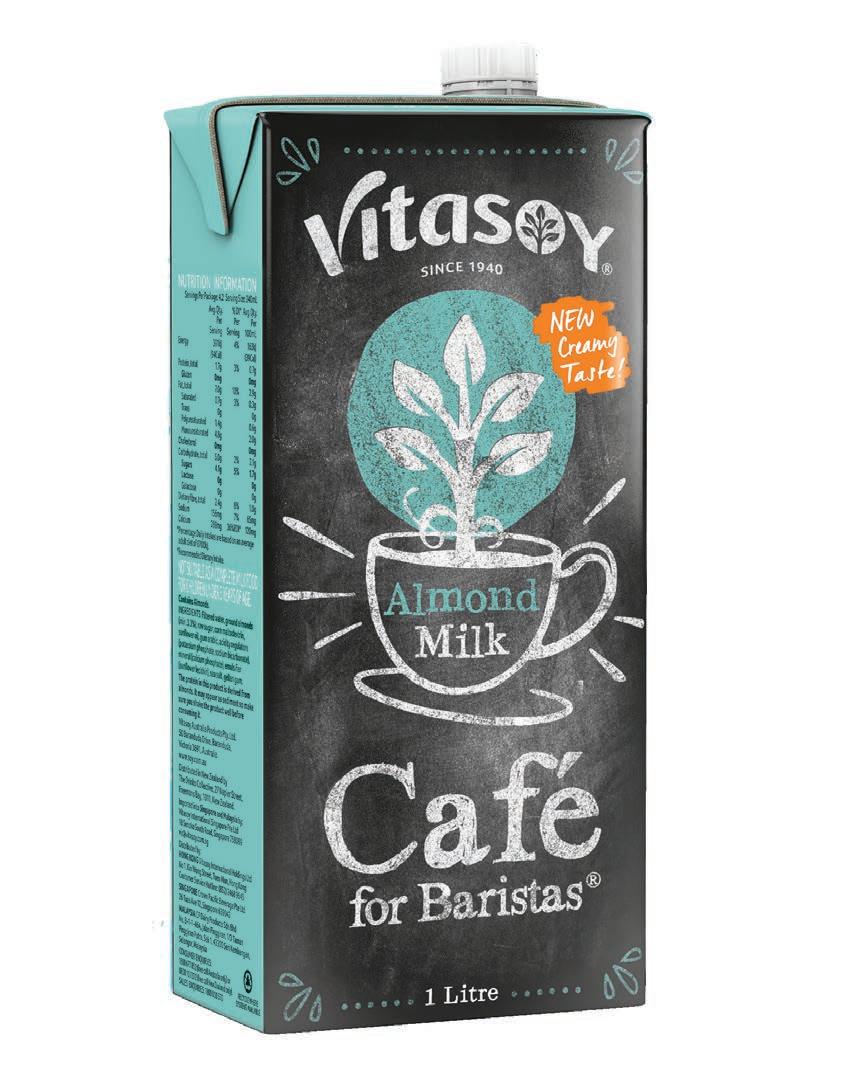

- Abacus
“It's the best almond milk I've had so far. Good flavour, well balanced and works perfectly with co ee."
-

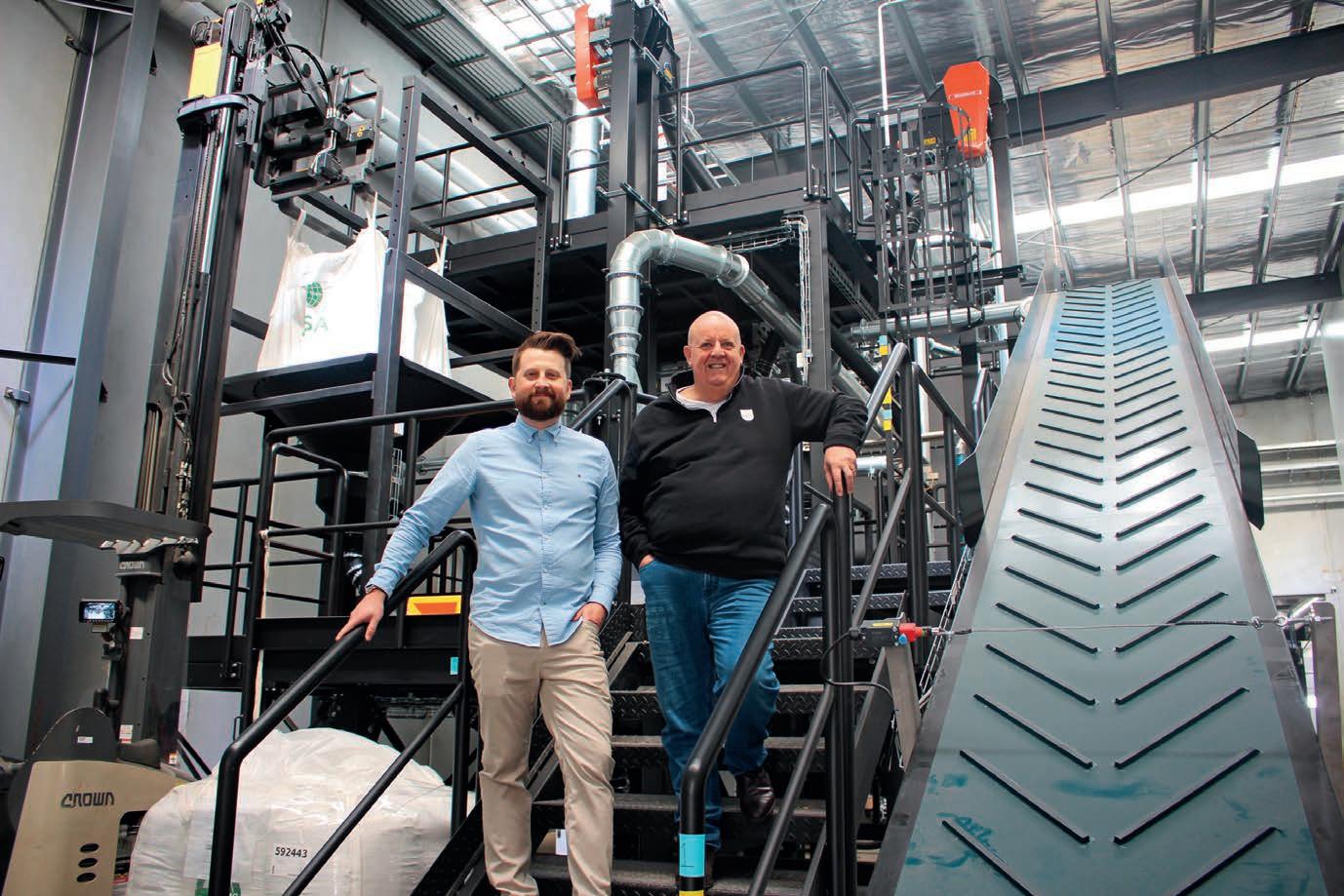 Café Faduci
Café Faduci
ust 20 minutes from Melbourne airport and ports, and 22 kilometres west of the city’s CBD, is a new $10-million roasting site that forms one of the industry’s largest investments in the past 20 years.
Located in the suburb of Truganina, Black Bag Roasters (BBR) is now home to a 4000-square-metre-site that will set the company up for future growth prospects.
“Standing in the completed space for the first time was pretty amazing. To see the scale of the site, the technology that goes into running it and its efficiency, is mind blowing,” says Nomad Coffee Group CEO Craig Dickson.


Inside the facility is a state-of-the-art production system that is carefully divided into green bean and roasted coffee. Endless rows of green bean bags fill the aisles that will eventually reach the height of the ceiling. A total of 1200 pallet bays are available for green-bean storage, as well as
roasted and packaged finished goods.
In a well-executed flow of production, green beans move to the next room where 10, 10-tonne green bean silos hold the incoming green beans until ready for roasting.
The centrepiece is the 600-kilogram Brambati roaster with the capacity to produce 300 tonnes of roasted coffee per week.
The roaster itself came from Italy in assembled pieces via 29 container loads. A company representative was commissioned to oversee its installation and setup of Brambati’s BR18 Advanced Specialty Software to monitor each stage of the roast cycle.
Post-roast, the beans travel through a vibrating sorter to eliminate any foreign matter. The coffee is held in nine individual five- and 10-tonne silos for post blending before final inspection via an optical
colour sorter for any last defects. The beans are then transferred to Rovema packing lines which enable BBR to pack 44 bags per minute.
The design for the roastery requirements and layout started two years ago. In fact, Craig says the equipment was ordered before the site was even selected, to the dismay of the project manager.
“We needed a roaster beyond the 280-kilogram. We needed something with a larger capacity,” he says.
“We have known [Brambati President] Fabrizio Brambati for probably 15 to 20 years, and it was finally time to partner together. We looked at all the roasters that are available on the market: their size, scale, and level of support. We looked at all the technology advancements used in the backend in regards to setting profiles and
airflow, and in the end we felt Brambati was the best solution for our business and where we want it to go in the future,” Craig says.
As such, Brambati installed green bean holding silos, the roaster, catalytic afterburner, and post-blending silos.
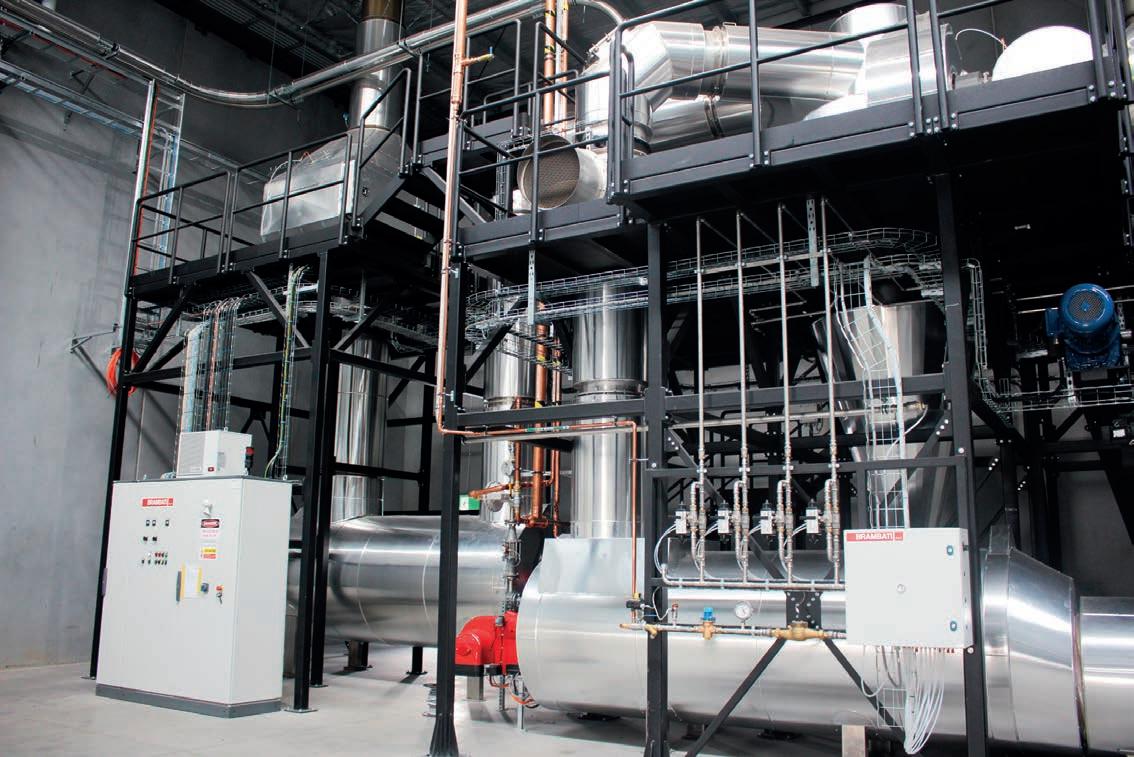
To select BBR’s packing machines and auto-box maker, Craig visited Rovema in Germany.
“While I was there, they were building a line for one of the world’s largest coffee roasters. They had probably the most efficient packing line we saw. They’re certainly one of the world leaders in that space,” he says.
For BBR customers such as Aldi, one of the country’s biggest retailers, two Rovema packing lines running parallel to each other will enable the brand’s medium/dark roasted bags, and dark ground coffee bags, to merge into the one box.
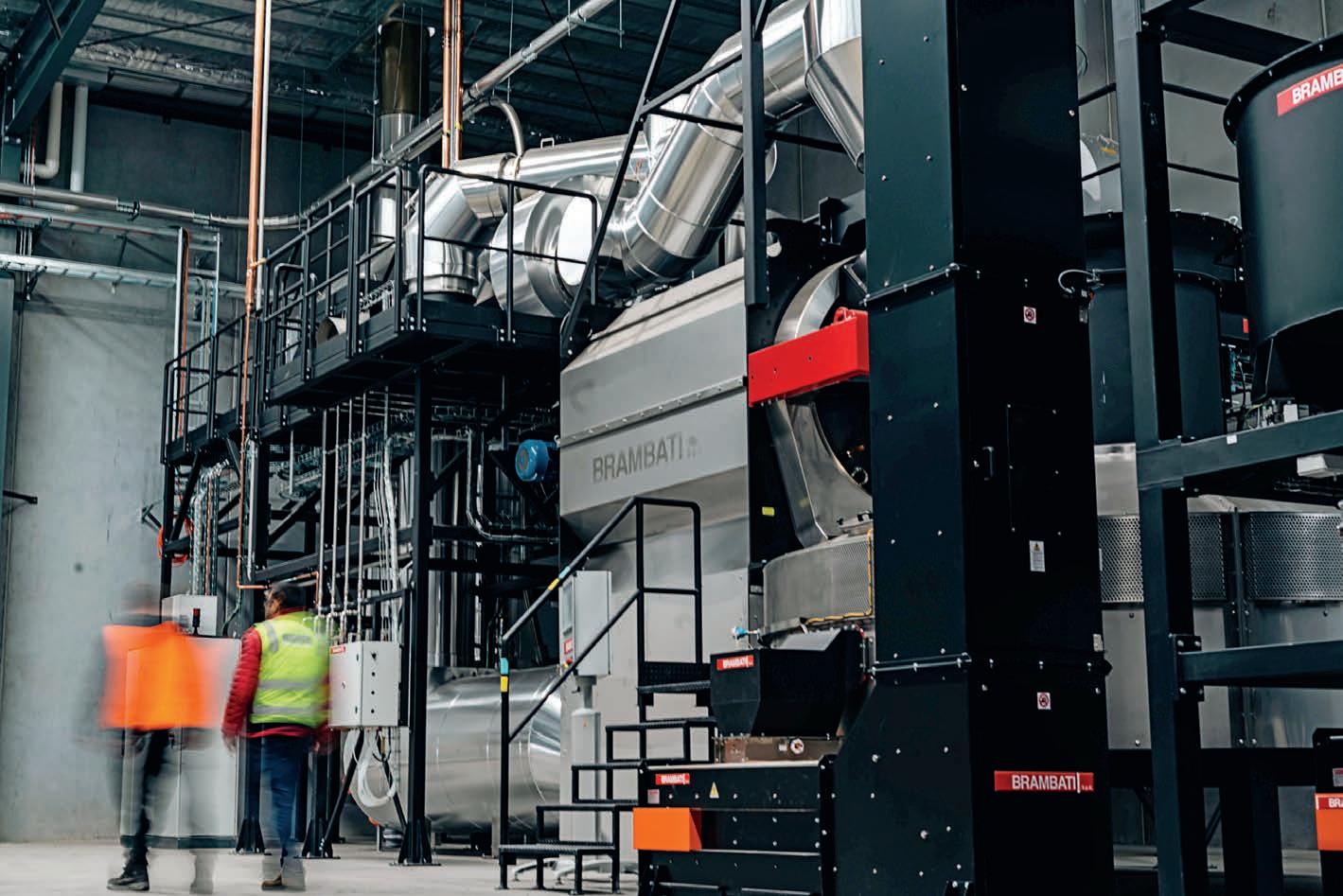
“Previously packing the different Aldi SKUs was physical and labour intensive. This new automated process will allow us to mix whatever volume of SKUs we want, which is evolutionary in the marketplace,” says Lance Brown, Black Bag Roasters’ Director of Sales.
An automatic palletiser, built in Thailand from Fibre King, is placed at the end of the packaging line for forklifts to stack in the holding bay before transportation. Each pallet shares a digital barcode that specifies the roast date, the breakdown of different origins, the profile, the date it was packed, and the date to be sent out.
Prior to the launch of the new Truganina factory, BBR operated out of Richmond, a 1500-square-metre roastery that is shared with Nomad Coffee Group’s specialty roasting arm, Veneziano Coffee Roasters.
Craig says the site reached capacity a few years ago, with the company unable to put its foot down on growth opportunities because of production restrictions. Now, the new facility is poised to quadruple its capacity.
“I don’t think there’s another purposebuilt factory in Australia that’s capable of
doing the volume we do as efficiently,” says Craig.
He adds that moving BBR’s production permanently to Truganina enables Veneziano Coffee to accelerate its growth and e-commerce channels. However, the private label arm will retain the same quality control Veneziano Coffee is known for, in terms of sourcing and roasting standards.
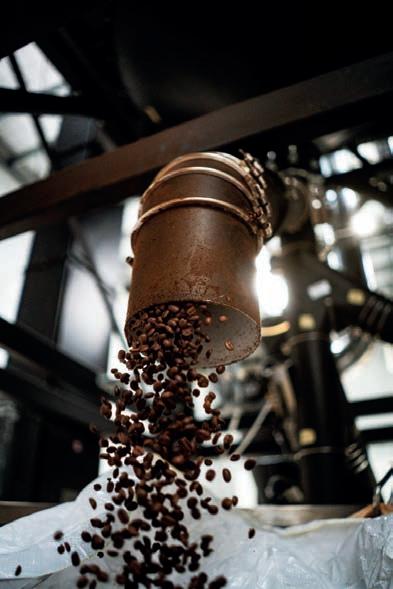
“When we built the Richmond factory, we really thought we’d be there forever, but we were full after five years,” Craig says. “It was not designed to do the volume it currently does. Our new site is equipped and enabled for future growth as required. We designed it exactly how we wanted from a blank canvas, which allows us to be much more efficient.”
At the Richmond roastery, it would take trucks around 45-minutes to load and leave the site. Now, modelling suggests it will take just 10 minutes.
“It means we can support the growth of our current customers, but we can also target new customers, which we haven’t been able to. That will happen with the most efficient and the most advanced technology, and most sustainable coffee plant in the country,” Craig says.
Black Bag Roasters was established as a private label coffee company in 2015 to create a space between commercial roasting, and the specialty world.
“We felt there was a gap in the market. The perception or the demands of customers
Black Bag Roasters’ new $10-million roasting site is purpose-built for future growth.were moving away from the ‘old school’, commercial roasters, and they wanted something different,” says Lance.
Four key company principles of capability, adaptability, resource, and environment define what BBR stands for and its purpose in the market. Combined, Lance says they create the perfect model to achieve successful outcomes for BBR customers and are guiding principles the company holds itself accountable to.
“It’s what makes us the ultimate coffee partner,” he says.
For the past eight years, BBR has formed strong relationships with its customers, some of whom are experiencing significant growth and were looking to BBR to see how it could best assist their needs. And that, Lance says, is how the development of the Truganina site came about.
“We roast for the biggest retailer in Aldi who has just opened its 600th store, the biggest coffee chain franchise in The Coffee Club who is growing just as quickly, the biggest food carrier in Bidfood, the biggest catering chain in Foodbuy Compass, Indigenous brand Waddi Coffee, and regional café specialists BlendCo Foods. And hey, we’d love to work with a convenience store or petrol station, even an airline,” Lance says.
Then there’s BBR’s international reach, with the brand partnering with companies in the United Arab Emirates, Southeast
Asia including, Thailand, Vietnam, Cambodia, Singapore, and Beijing.
“We now have the ability and resource to expand our already sizeable international client base and partners with a grocer, convenience chain, or even an international player looking to come into Australia,” says Black Bag Roasters’ National Business Manager Shane Harold. “Our scope and capability enables us to cater for large international companies looking to deliver excellent coffee into Australia, New Zealand, the wider Oceania region, and even as far as the United Arab Emirates”.
He notes that Nomad Coffee Group is part of multi-national hospitality company Minor International, who is the parent company of international chain Minor Hotels.
“They’ve got 76,000 rooms worldwide, and the CEO has said he wants to see his coffee in all rooms around the world. To do that, we need a facility like Truganina to grow along with them,” he says.
Lance adds that BBR now has the flexibility to adapt to such large requirements and provide solutions that simply weren’t possible before.
“It doesn’t matter what type of coffee, volume, or bag size you want. We can do it. We can also take the pressure off artisan roasters. Why would you stand in front of a 30-kilogram roaster day in day out, roasting for 20 minutes at a time, with a yield of a couple of hundred kilos, when we can do it
all in 17 minutes and ensure it’s consistent?” he asks.
For Lance, BBR is more than just an exciting new development. It’s an opportunity to make a significantly positive impact on the Australian coffee industry.
“For us, it’s not just about providing some of the best quality coffee in the premium commercial space. It’s about minimising our impact and carbon footprint. We’re here because we love coffee and we want to make business decisions that protect the future of coffee,” he says.
To ensure the factory lives up to its sustainable expectations, Nomad Coffee Group Sustainability Manager Nick Percy is responsible for maintaining waste management practices, and the organisation’s Carbon Neutral Certification. He will also oversee plans to introduce solar panels, rainwater harvesting, and electric car charging points.
While sustainable initiatives remain an ongoing focus, the Truganina factory is open for business, available for site tours, and ready to show the world what it’s capable of.

“Our Truganina site will be home for at least the next 10 years,” Craig says. “If we can do what we did with our Richmond site and be full after five years, I’d be pretty impressed.”
For more information, visit www. blackbagroasters.com.au
We believe that coffee is about moments. So, we blend our coffee for moments big and small. Whether it’s something smooth after lunch or something to help you smash out your day. BUONDI is crafted for now.

To find out more about Buondi coffee please contact us on NestleProfessional.Beverages@au.nestle.com or visit bit.ly/Buondi
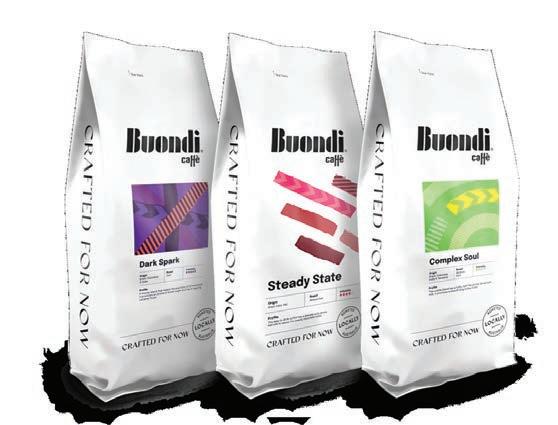
In a dynamic market with unremitting change, 100 years of business is testament to having a quality-driven product that’s connected to its target market.
Riverina Fresh has been supplying fresh milk and dairy since 1922. Company CEO Rob Collier says this is a significant milestone that reflects the strong history of dairy and agricultural production in the Riverina region, and the resilience and expertise of its employees, farmers, and partners.
“I think the longevity reflects the support from both the local community in the Riverina and surrounding regions and in more recent years, from consumers and café partners in city centres” says Rob.

Although the products and capabilities of Riverina Fresh have evolved considerably over the years, it still produces from the same location in Wagga Wagga, New South Wales, established 100 years ago.
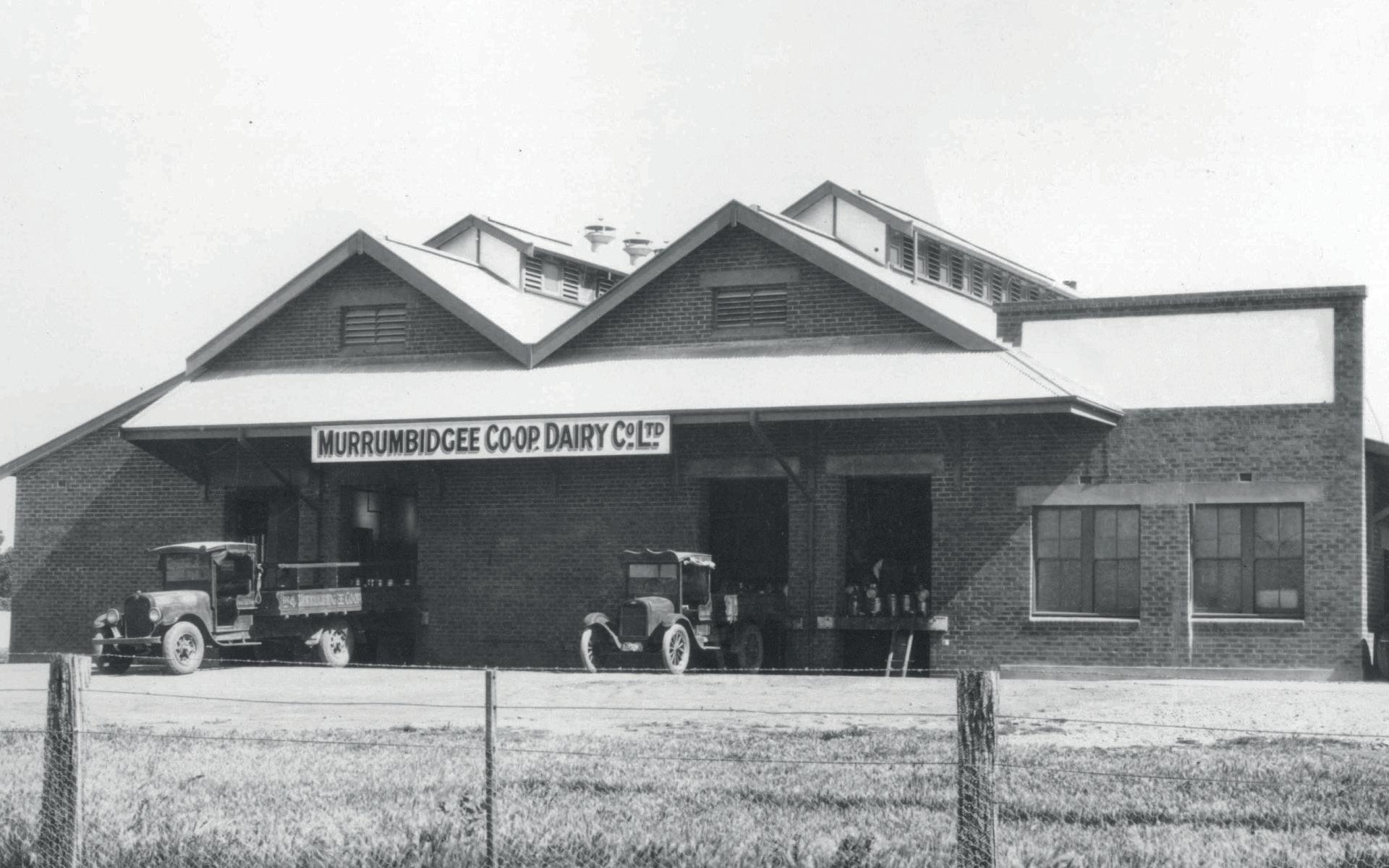
“The changes over the last 100 years have been significant both at an industry level and for Riverina Fresh. We now work with much higher levels of safety, automation, speed, efficiency, and quality control. These have provided benefits like longer product shelf life, which has allowed regional producers like Riverina Fresh to supply high quality fresh milk across the country,” Rob says.
Looking back over the company’s history, Rob says its biggest achievement has been a consistent focus on innovation and a willingness to adopt new technology.
“There have been many examples of equipment and technology improvements in our facility over its history, like the introduction of pasteurisation in the 1940s. In more recent years, that focus has extended across our supply chain, from farms all the way through to the point of delivery,” he says. “There are many different ways to innovate, apply technology and
make improvements. We have recently adopted new software to give our farmers faster and more accurate data on their milk composition and quality so they can optimise their operations. Even the way our café and foodservice customers now predominately order online and manage their transactions electronically is very different to five years ago.”
Rob adds that Riverina’s farmer relationships have been crucial to the brand’s market success.
“Like most regional dairies, Riverina Fresh was originally established as a cooperative by local farmers, so they have been a crucial part of our history. While we are now a 100 per cent Australian owned private company, our farmers are still part of the Riverina Fresh family and have a lot of passion and pride about what they do and to be supplying their milk locally to a business that has been in operation for 100 years,” he says.
Celebrating its centenary year of business, Riverina Fresh discusses its longevity in the dairy industry, relationships with farmers, and its connection to the specialty coffee industry.
“Dairy farming is tough with a lot of challenges, whether it be drought, floods, or economic pressures. Despite these challenges we have committed farmers who continue to invest and improve their operations and strive for excellence.”
One of those farmers is Rachael Napier, a partner at Gallpen Dairy in the Southern Riverina, who partnered with Riverina Fresh in 2017.
“We had a strong passion for the future of dairy and were looking for a business and brand who could provide a family vibe, a smaller more intimate relationship where we matter,” Rachael says.
She says Riverina Fresh has found a “winning formula” that combines the milk’s silky-smooth composition perfectly with the heady scent of freshly brewed coffee. She says the difference in taste also lies in how deeply she cares for her animals.
“An enormous amount of love and attention to detail is involved in our business. Our cows have family names, annual holidays, a personal nutritionist and are monitored 24/7. We like to treat every cow like she’s our only cow, and we think you can taste the difference,” Rachael says.
John and Megan Hay run their dairy farm in Mayrung, in southern New South
Wales. They partnered with Riverina Fresh because it is a 100 per cent Australian owned company that specialises in premium milk for domestic consumption.
“Riverina Fresh’s direction was congruent with our desire to ‘love our neighbours’,” says Megan. “In the Riverina Fresh family, everyone from our milkers on farm, to baristas in their cafés, values the quality of the milk. Our hard work is appreciated down the line.”
The Hays also enjoy how easily Riverina Fresh’s owners and team engage with farmers and how open they are about their own processes, challenges, and goals.
“In farming, there are so many volatilities, so it’s nice that some things are reliably consistent. The stability that comes from supplying an adaptive, century-old company is reassuring,” Megan says.
Dairy farmer Jo Burn of Arcadia Park in Southern New South Wales is proud to be part of Riverina Fresh’s history. She says she’d love to see the next generation realise the importance of the dairy industry to the Australian economy.
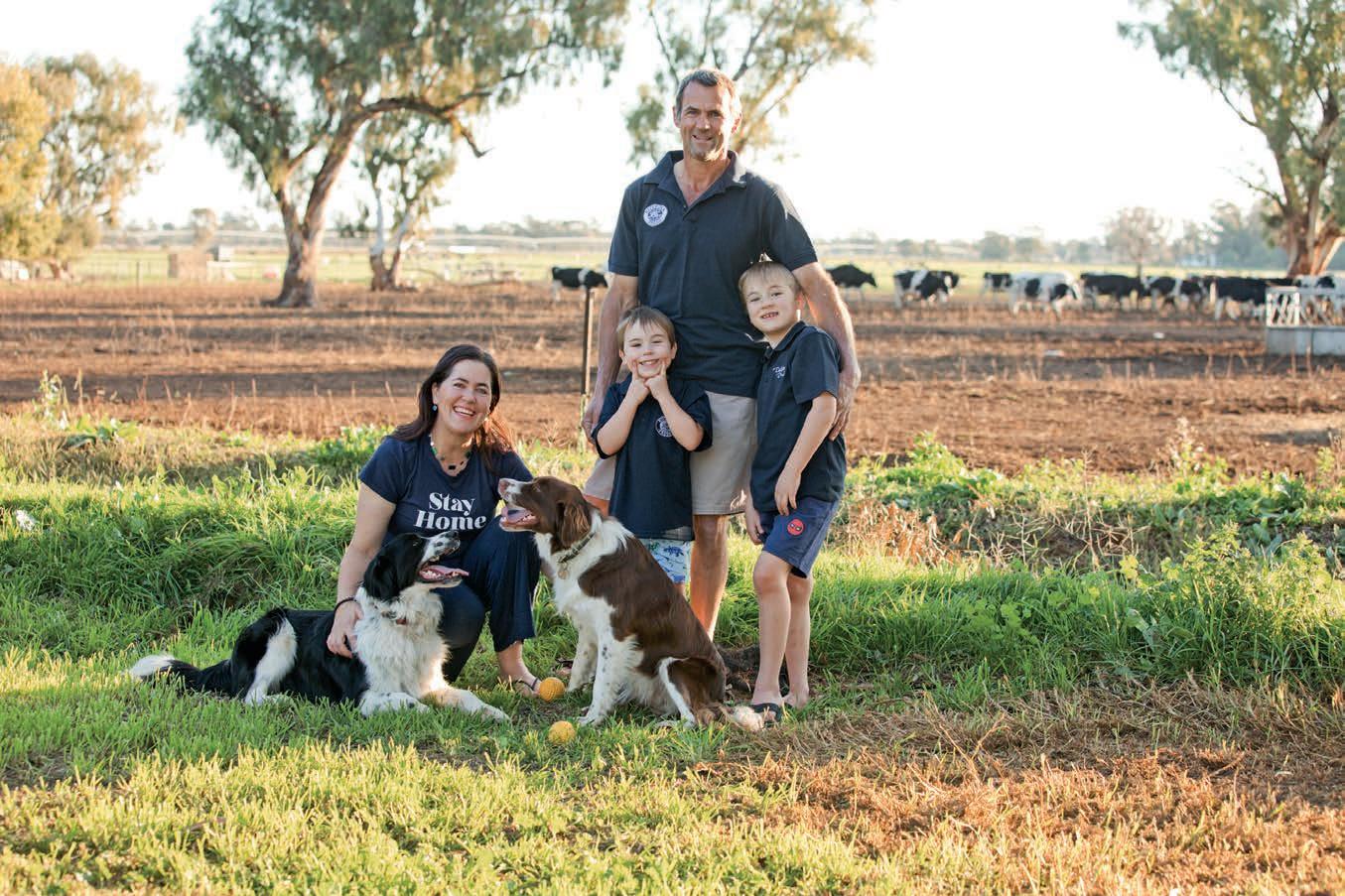
“The opportunities in dairy farming are unlimited and companies like Riverina Fresh have demonstrated that they are here for the long term. My hope is that through
partnering with businesses like ours, that Riverina Fresh will continue to provide high-quality products that have already stood the test of time for 100 years,” Jo says.
Paul and Claire Grinter are from Boonal Downs farm in Muckatah. Claire describes Riverina Fresh as “an extension of our family”.
“We loved the balance between being big enough to be relevant into the future and small enough to be intimate, so that we could feel part of a team,” Claire says.
Claire says the partnership since 2019 is one they can lean on when times are tough, and equally gives her a bigger purpose.
“People love their coffee, so to know your efforts can contribute in a small way to another person’s happiness. It helps you feel proud of what you do,” she says.
Riverina Fresh’s commitment to the specialty coffee industry was recognised with its appointment as official milk supplier to the 2022 World Barista Championship (WBC).
“This has been a huge highlight for the whole Riverina Fresh family. We were extremely proud to have a regional Australian dairy producer on the world stage for such a significant event,” Rob says.
“To have the WBC culminate in
Anthony Douglas being crowned World Barista Champion capped off a great result for the Australian coffee industry. Anthony used his own blend of Riverina Fresh milks with his coffees, and we have been proud to support him with milk on the Australian stage for the past seven years.”
According to Anthony, Riverina Fresh milk gets the best out of any coffee he’s worked with.
“The team at Riverina Fresh really understand coffee and what the Australian consumer is looking for in a milk-based beverage. Most customers that walk through our doors at Axil Coffee are looking for a milk drink that has the perfect marriage between coffee flavour, and the sweetness and texture from the milk. As a barista, this can be a hard balance to achieve as some milks can have not enough or too much of certain elements. Riverina just makes it so easy to tick all those boxes,” says Anthony.
It was this suitability that made using Riverina Fresh milk for Anthony’s cryodessication milk creation, a no-brainer on the WBC stage.
“Riverina Fresh has always been the perfect milk choice in competition as it allowed me to best represent the flavours of the coffees I use. When it came to using experimental techniques such as cryodessication (a low temperature dehydration process), it made sense to use the best possible product I could, and the results spoke for themselves,” says Anthony.
He adds that Riverna Fresh has always supported him throughout his career
the people in the company are extremely passionate, quality driven, and supportive,” he says.
Axil Coffee Founder Dave Makin adds that the roastery has been a long-time
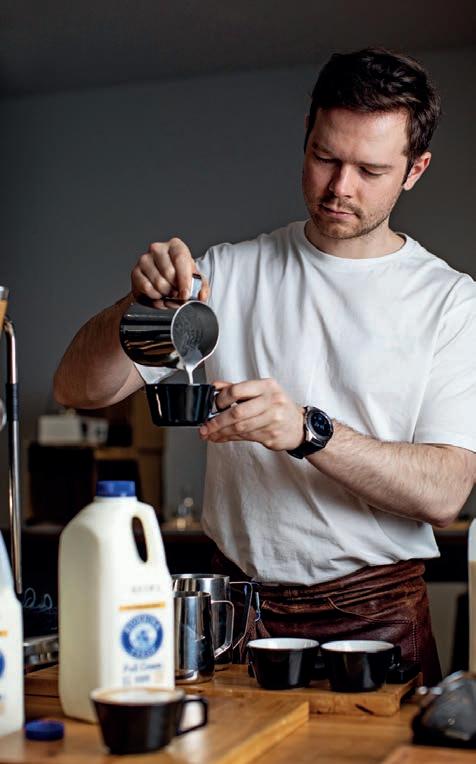
about the Riverina team and the support we get from them. They’re really passionate about the coffee industry and really passionate about seeing Axil Coffee do well,” Dave says.
Riverina Fresh has been fortunate to partner with some of Australia’s leading coffee roasters over the years to help develop their milks and other dairy products, working closely with the teams at Ona Coffee and more recently, St Remio.
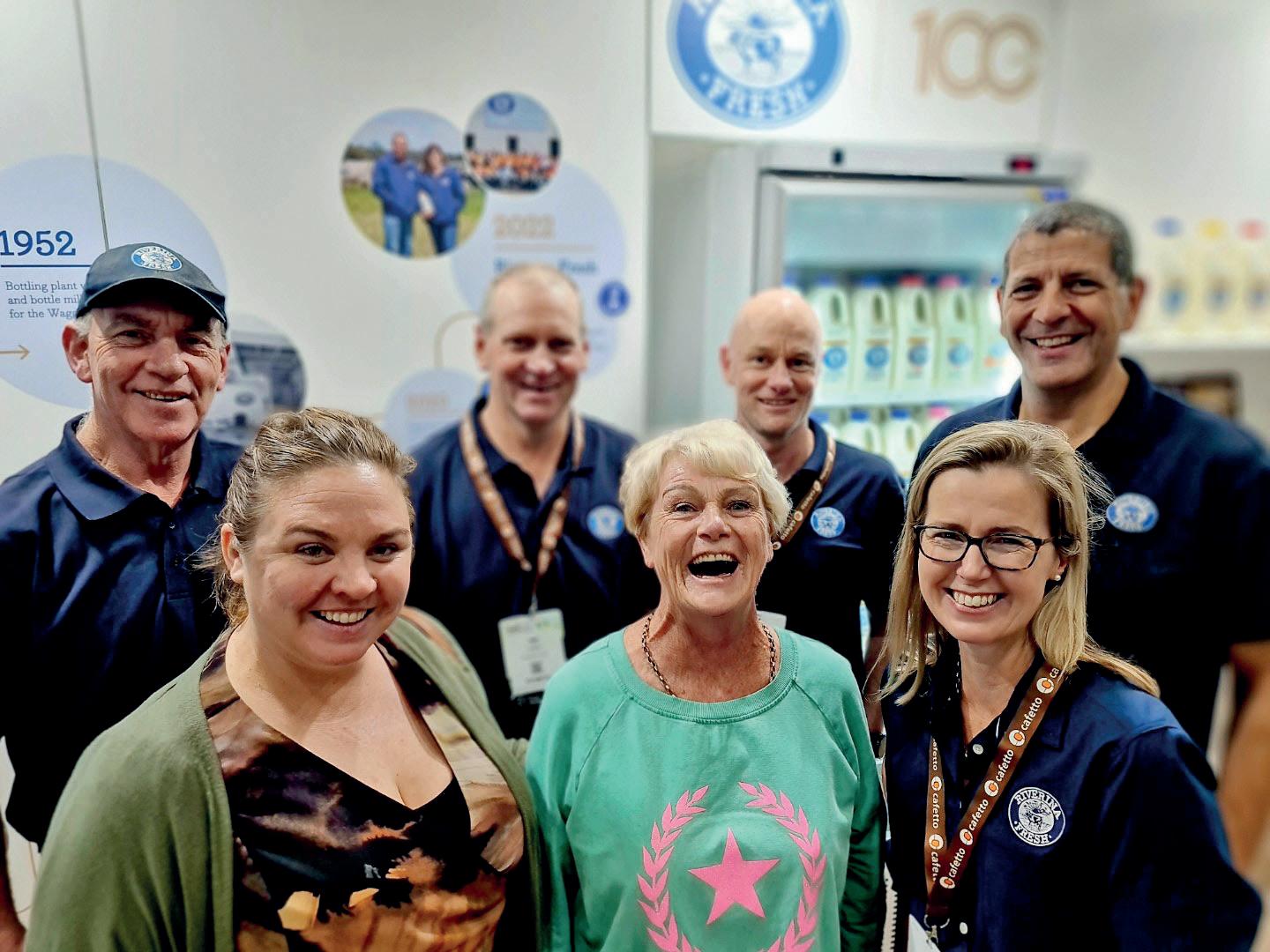
“We’ve only just discovered the magic of Riverina Fresh’s Gold milk. It’s the gold standard of milk,” says St Remio CoFounder Trent Knox.
“I first came across the brand at the Melbourne International Coffee Expo (MICE), tried a bottle, paired it with our coffee, and we were blown away. We started collaborating and encouraging our customers to use it. We also decided to use Riverina Fresh milk at each of our pop-up sites at the Melbourne Cup Carnival last year, to which St Remio are proud to have a three-year partnership with the Victoria Racing Club as the exclusive, on-course coffee partner.”
Partnerships like these are what Riverina Fresh is committed to developing in future and helping evolve both their dairy and foodservice distribution capabilities.
“No doubt there will be challenges, just as there has been across our history. Innovation will remain a key focus and we look forward to continuing to collaborate with other like-minded people and business that share our passion for improvement,”
According to 2022 WBC winner Anthony Douglas, Riverina Fresh milk gets the best out of any coffee.the new espresso machine helping coffee professionals to offer a better coffee experience.
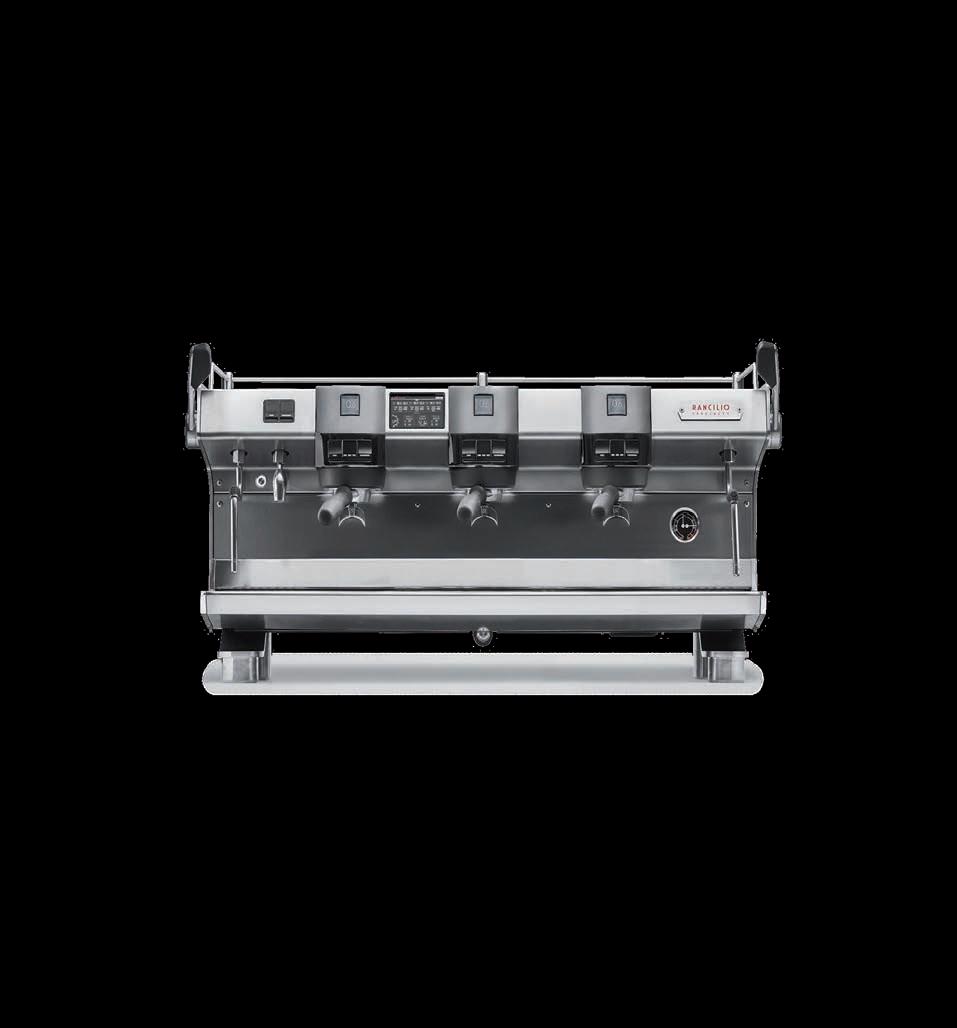

@ranciliospecialty ranciliogroup.com
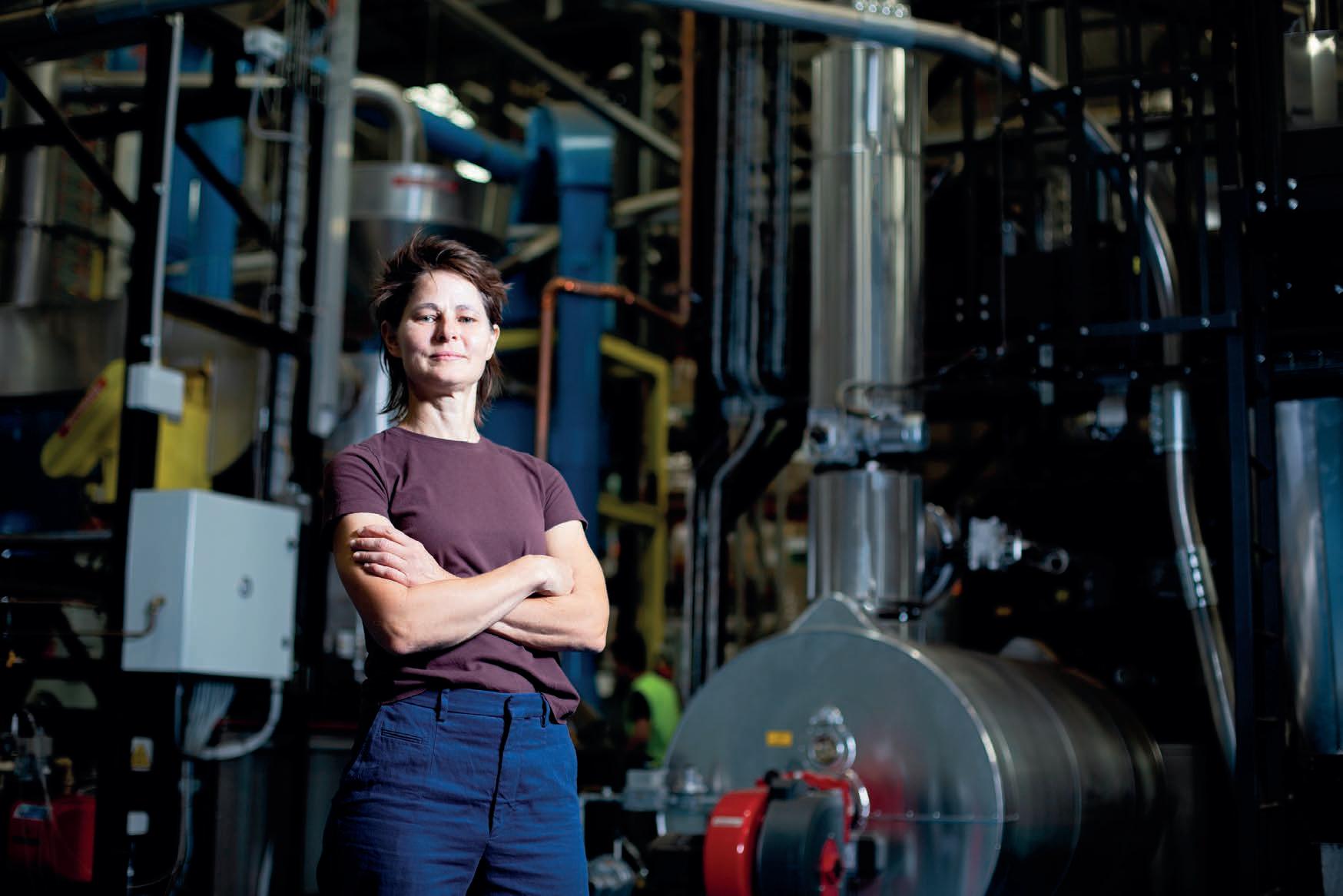
hen Lucy Ward first heard about St Ali, a Melbourne-based specialty coffee roaster, she considered it “an icon” of the industry.

The moment she finally got to experience the iconic place for itself, was when she opened the café door and walked in for her very first day of work.
“It was an ‘Oh my God’ moment. I did a few shifts on the bar, then I was put on the floor as a waitress. Then, shortly after, I was asked if I could manage the café, and I did. That was my first career highlight with St Ali,” Lucy says.
“The next, was the day I got asked to be the company’s green bean buyer, which was pretty special. Another was just recently at MICE (the Melbourne International Coffee Expo). I was so proud of the coffees we had on display and the incredible work of the producers of whose coffee we showcased. It’s something I hope we can share more of this year. And the long-term relationships
I’ve helped foster with the company over the years is also something I’m passionate about.”
Lucy says it’s for these reasons and many more, that St Ali was and still is, an icon of the Australian specialty coffee scene.
It’s been a place she’s fostered a career in specialty coffee and has been given many opportunities for growth. This includes her new role as Head of Operations and Procurement at St Ali.

“St Ali is moving into a new phase. We’re a company between being a small roaster and becoming a large one. We’re cementing ourselves in a bigger space, and it results in pushing all eligible candidates forward in further growth and leadership opportunities. It’s an honour to have been offered this role,” Lucy says.
“For me, it means running the factory and the products going in and going out, and overseeing more of our management structure. The factory has organically grown over the year, and I’m leading lots of incredible people and fostering a strong and

diverse team. So as much as I’m moving up the chain, it’s now part of my role to give people an opportunity to do the same and fly the flag for the company with the values and goals we have in place.”
Those goals, Lucy says, are ambitious but not unattainable.
“Our vision is to be one of the biggest and best specialty coffee roasters in the world. It’s the aim. We want to be a company that’s around for 100 years, and cemented in Melbourne’s coffee culture forever,” she says.
St Ali was established in 2005, and Lucy has been part of the business for nearly 11 of those 18 years in two different stints.
“It’s a company I’m really passionate about. St Ali has always provided me with opportunities and stretched and pushed me in a good way. It’s a company that’s also put a lot of trust in me. I really like that I’m given autonomy. I’m a creative person at heart. I think resourcefully, and they always push me to use those skills and strengths to benefit the business, which I enjoy,” Lucy says.
St Ali is starting the year with new goals and new leadership roles.
Lucy Ward explains how her new position will help the company focus on the growth of its people and culture.
someone to manage the day-to-day tasks it entails, Lucy will still play an overarching role in the area in order to help maintain customer relationships and the long-term partnerships she’s fostered with producers.
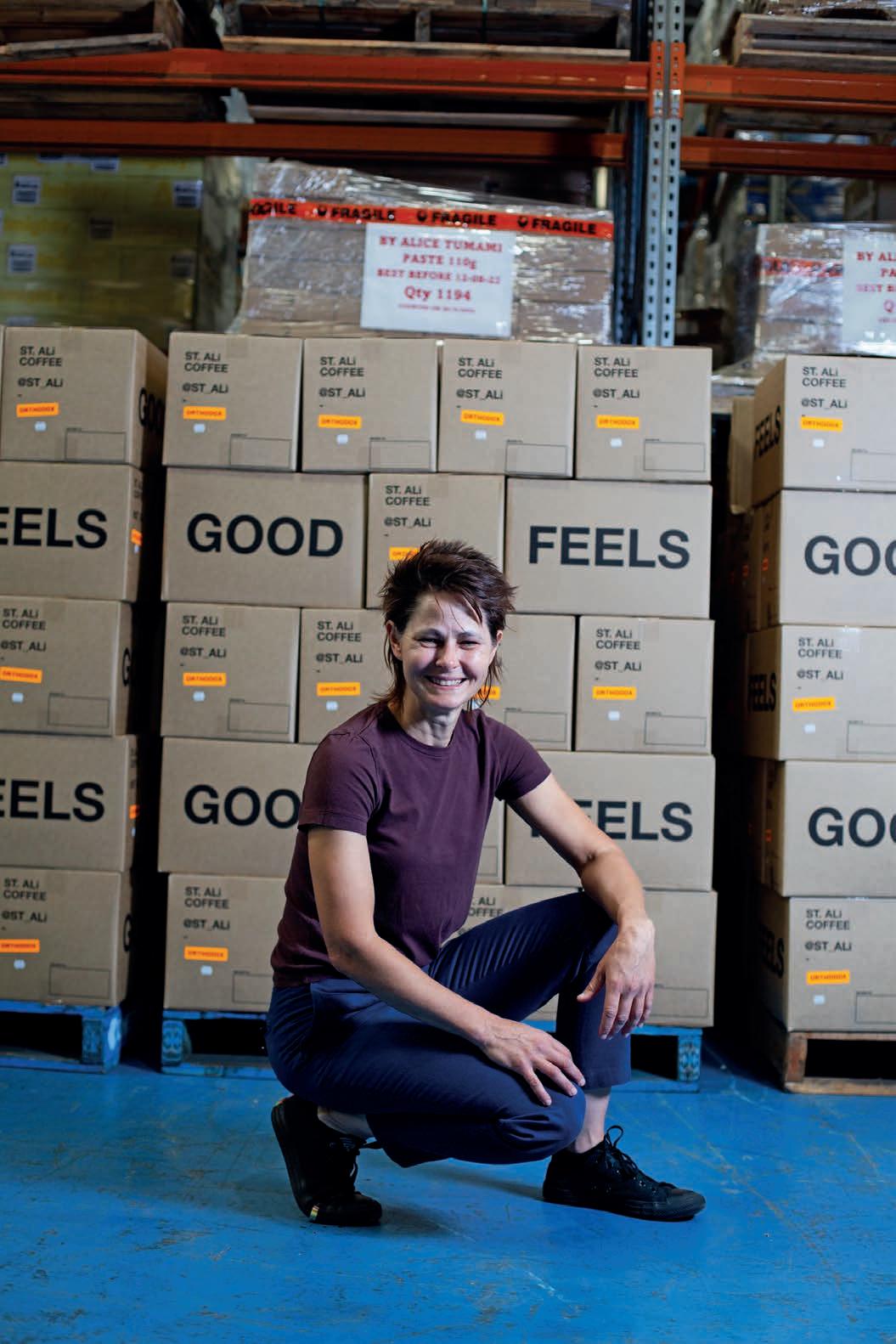
“I really want to push our quality and ensure we maintain the connection and story behind the coffee. I want to celebrate our long-term relationships through our marketing, and ensure that as we grow, our product remains top quality at all times. We need to be constantly watching it like a hawk and not resting on our laurels,” Lucy says.
“Quality is one thing, but there’s also a market shift in customers really caring about what they’re buying, and that’s the thing about specialty coffee – we want people to care. Customers are more inquisitive and are asking about the ethics of the coffee. You only have to look at my inbox of emails to know that more people are thinking about where their coffee is coming from, rather than buying it just because the bag has pretty packaging.”
It’s a trend Lucy says stemmed from
that distributes a carefully curated list of premium grocery products.
“The brand is going crazy. It’s been so successful coming out of COVID, and it’s all coming out of the one factory and our off-site storage, so we’re at full capacity,” Lucy says.
In addition to the growth of Really Good People is that of Dramanti Artisan Coffee Roasters, which St Ali acquired in 2022.
“We’re really happy with how Dramanti is going and the foothold we now have in the Queensland market. We’re giving it St Ali love to ensure it remains successful and it just means we can give more people a taste of who we are and what we love doing,” Lucy says.
Last year was about growth and recovery on the back of two COVID-19 years. This year, Lucy says will be a more “inward” approach and making sure the company has all its structures and processes in place.
“We’ve bounced back from COVID-19 tremendously well,” Lucy says. “Now, it’s about internal reflection and putting


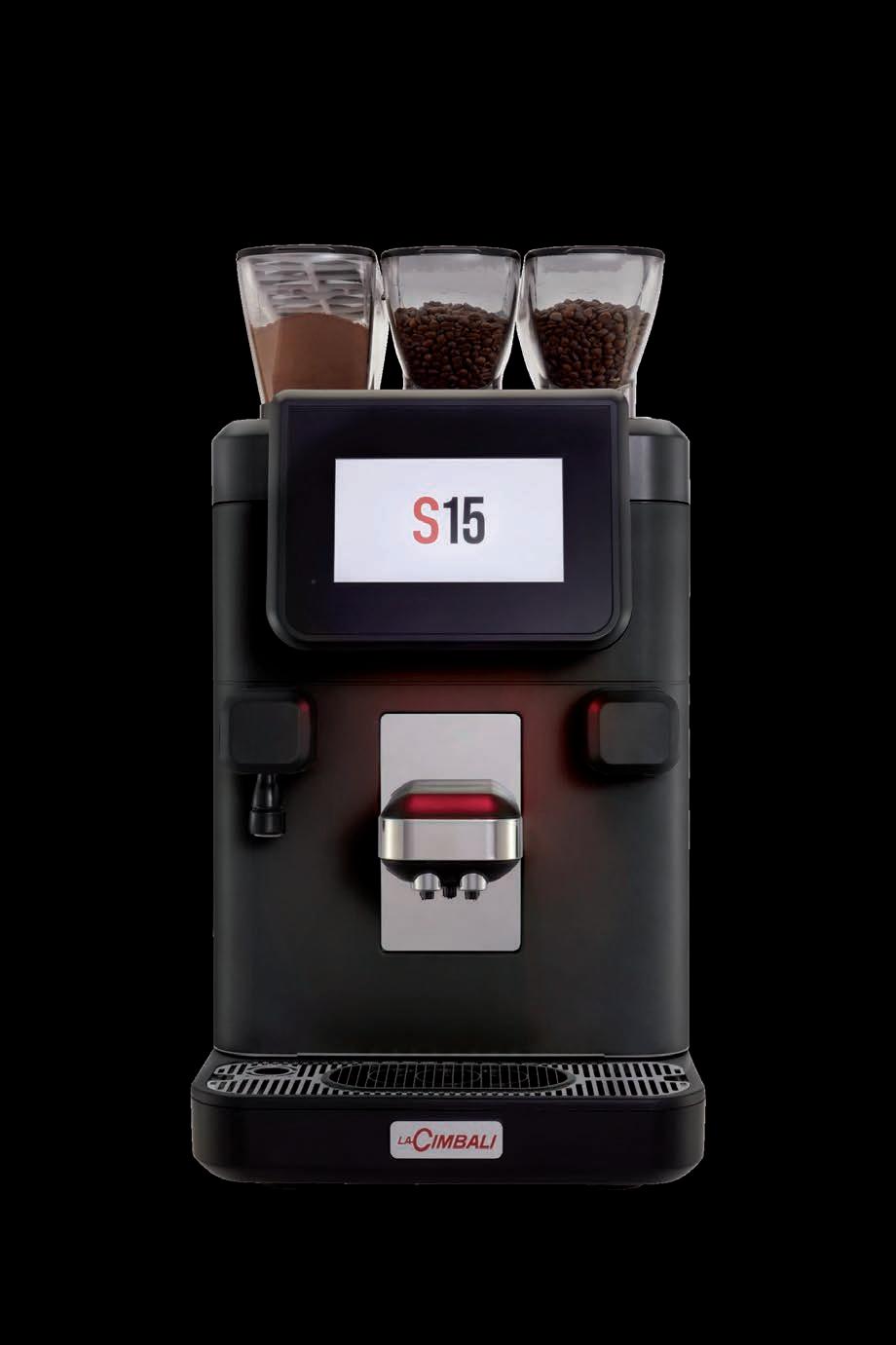

Matt Perger endured four intense years on the coffee competition scene. He placed third in the World Barista Championship in 2011, second in 2013, and won the World Brewers Cup Championship in 2012 and World Coffee in Good Spirits Championship in 2014. When it came to an end, however, Matt was left searching for a way to remain relevant in the specialty coffee industry.
“We kind of caught lightning in a bottle with those few wins, and I wanted to make it last. I had seen that previous world champions that had stuck around had a platform to communicate with the industry. That’s how Barista Hustle was born,” says Matt.
Originally created in 2015 as a blog and bi-weekly newsletter, the Barista Hustle website is now home to 15 online coffee courses and certifications that have helped educate millions of individuals.
“We took all the blog material and turned it into a membership for people to
access coffee education. It’s actually the largest part of our business by a pretty big margin because it’s online, instantaneous, and has no shipping required. We have thousands of members around the world that take our online courses, both individuals and businesses,” Matt says.
Naturally, the Barista Hustle CEO says it was a logical progression for the organisation to move into making coffee
tools. Barista Hustle product designs are the direct result of Matt’s experience as a barista, roaster, and trainer. He personally oversees all the drafting and prototyping of the barista tools.
“Our first product was a coffee tamper, and we still sell the exact same design today. The idea was to make it with less stainless steel than other tampers, because that’s what makes them heavy and very expensive. By reducing the amount of stainless steel used, we could make a tamper that was much more affordable, but still have the precise diameter that specialty coffee people were after,” Matt says.
Made from hard anodised aluminium, and a 304 stainless steel flat base, the Barista Hustle Tamper is durable, lightweight, and designed to be world champion quality. It’s unique protective rim, located between the base and the top slope of the handle, eliminates any potential vacuum effect, and helps to keep the tamper vertical.
Off the back of the tamper came Barista Hustle’s cupping bowls, made of food-grade high density polyethylene. This is the same
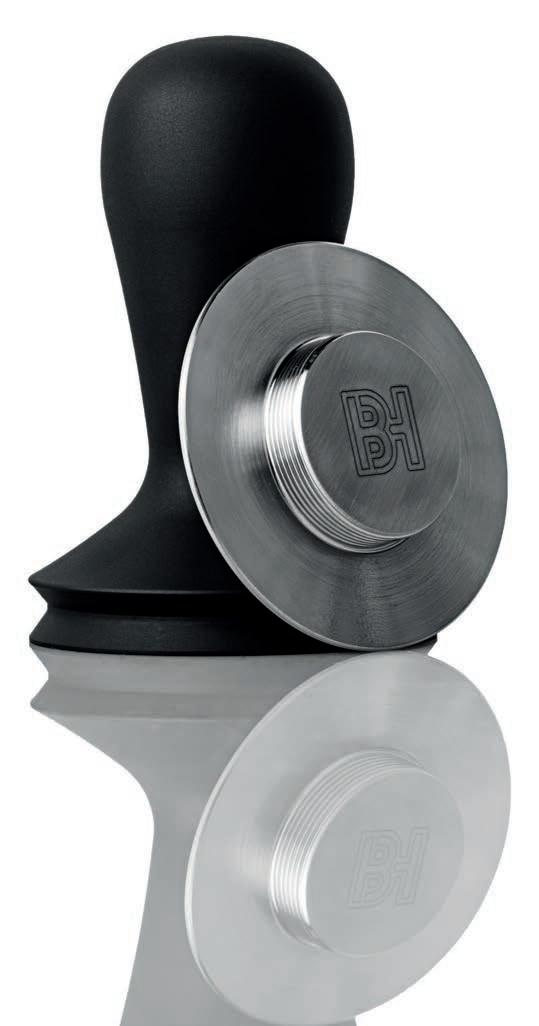
Coffee Tools Distributing is partnering with Barista Hustle to offer a brand-new suite of products that caters to the specialty coffee and home barista market.
“OUR FIRST PRODUCT WAS A COFFEE TAMPER, AND WE STILL SELL THE EXACT SAME DESIGN TODAY.”
plastic as milk bottles, therefore they don’t absorb as much heat from the water that is used to brew the coffee.
“Inexpensive and easy to manufacture, the bowls are even recyclable if you ever manage to break one. They’ve been a big hit, which has been great. We’ve sold hundreds of thousands of bowls and only had one customer ask for a return,” Matt says.
Another innovative product on offer is The Ring, a magnetic dosing ring created to keep a workbench clean and workflow smooth.
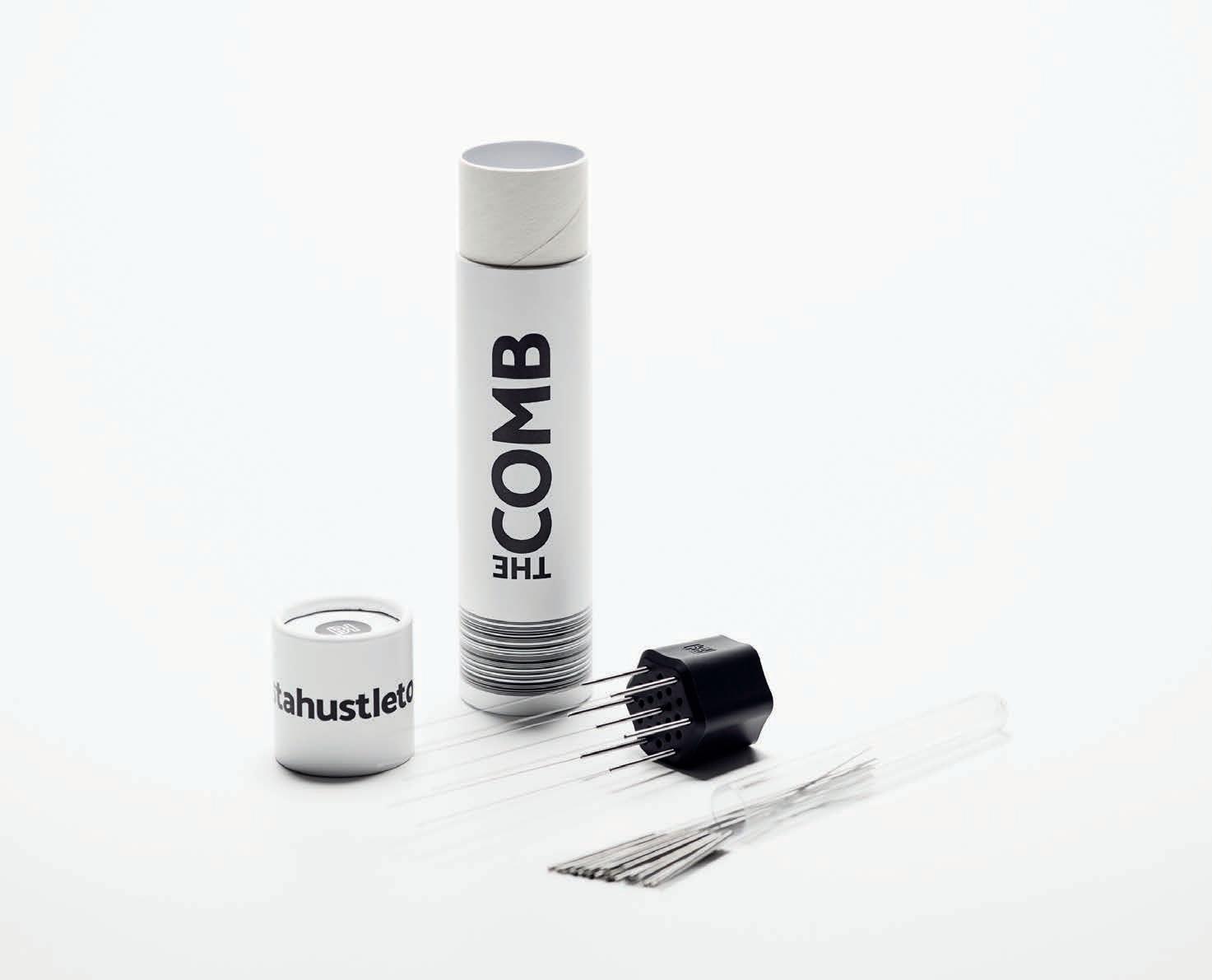
“The Ring makes sure all of your coffee ends up in the basket and not on the table. Made with [grade] 304 stainless steel with a brushed finish on the outside and a mirror finish on the inside, it is as sturdy as it looks,” Matt says.
“Fitted with eight neodymium magnets, The Ring snaps on top of the standard 58-millimetre portafilter quickly and cleanly so it doesn’t break the stride of your coffee-making routine. It also fits on top of dosing cups and lets your transfer to the basket, mess-free. And it’s super easy to clean, resists corrosion, and is likely to last a very long time.”
Matt says the reason he started manufacturing these three products, was to simply take an expensive design and make a more affordable version.
“My mission is to eliminate any unnecessary features or materials and come up with a clever solution to make it more affordable, but still does the job just as well. Or, I like taking cheap products that are made poorly and improve them. That’s our product design ethos,” he says.
Matt says Barista Hustle also offers The Comb, which uses the company’s own take on the classic Weiss Distribution Technique (WDT), one of the longest standing espresso distribution methods. With 30 extra needles to replace any bends or breaks, Matt says The Comb can be customised depending on the coffee, the grind size, or technique.
“This innovative distribution tool has a silicone base with 25 strategic needle placements that you can experiment with. Unlike other WDTs, The Barista Hustle tool comes with special rounded needles that will keep your baskets scratch-free. The 0.35-millimetre-thick needles are also perfectly sized for distributing the grinds without creating deep trails,” he says.
According to Matt, The Comb will be a predecessor to the AutoComb, a longawaited distribution tool to be released in the second quarter of 2023.
“The needles in the AutoComb are similar to the manual WDT, except we’ve designed it with 11 needles, so that each time the tool revolves, they all pass through the basket at an equal distance, almost touching every coffee grind. This is
combined with the speed of the needles that fluidises the coffee grinds until they find an even distribution and density across the basket,” Matt says.
“World Barista Champion Anthony Douglas used a prototype of the AutoComb during his competition routine. We iterated and refined the design so that it was ready for the big stage, and thanks to Anthony’s stellar performance, it will enter the world with a bang.”
This imminent distribution tool caught the eye of Coffee Tools Distributing Company Director Curtis Arnold, who partnered with Barista Hustle to expand its product offering.
“When I heard about [the AutoComb] I reached out to Matt to see if he wanted to work with us and increase his exposure in the Australian market. I realised Barista Hustle was a great fit of us and complements our suite of products really well, so I was eager to work with him,” Curtis says.
Curtis is a member of Barista Hustle’s newsletter, The Hustle, and has known Matt for several years.
“Matt’s really easy to work with and
approaches business with the right attitude. Every conversation we’ve had has led to an easy compromise or agreement,” he says.
Matt echoes the sentiment, commenting that Curtis has built a great network of cafés and consistent customers that he looks forward to expanding and catering to.
“It was a no brainer for us. We cover the business-to-consumer sector and Coffee Tools Disturbing covers the business-tobusiness sector in Australia, so together we’re covering all our bases,” he says.
Curtis says he’s excited to include Barista Hustle’s equipment to his arsenal to further the brand’s specialty coffee and home barista product offering.
“The AeroPress was our first product, which the specialty coffee industry really embraced, and my original customers loved. Although we sell more than just coffee products now, I’d like to bring the company back to its roots and invest in specialty coffee again,” he says.
For more information, visit www.baristahustletools.com and www.coffeetools.supply
Nestlé Professional first launched Buondi Caffé in Australia in 2015, aligning the brand’s positioning with its origins in Portugal, where it is synonymous with energy, youth, and active lifestyles.
However, with Australia’s coffee market being more sophisticated, and coffee culture embedded into the lives of consumers and businesses, Nestlé Professional has decided to revitalise the Buondi coffee brand to suit the market Down Under.
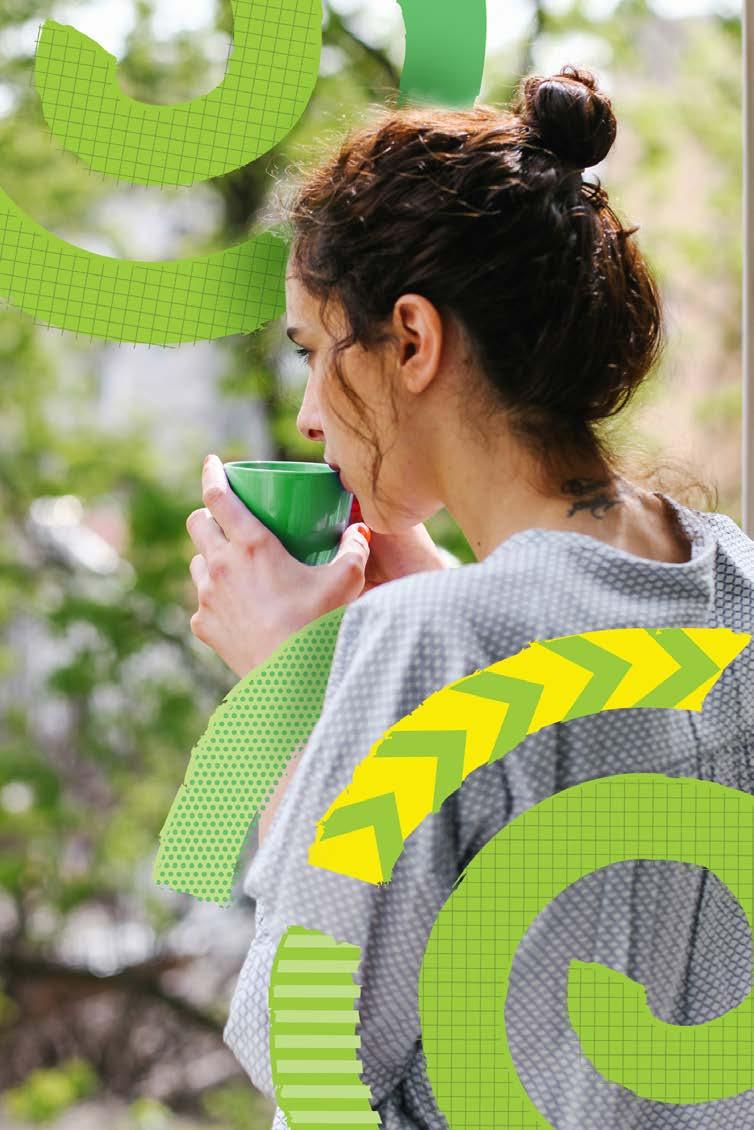
“From January 2023, the Buondi brand will evolve, and our coffee beans will have a brand-new look,” says Nestlé Professional Master Barista Jo Yuen.
Buondi’s ‘Crafted For Now’ branding demonstrates an understanding of the way that Aussies enjoy their coffee, and also reflects an ambition to create a more urban and stylish aesthetic. The new brand positioning was created to better reflect its place in Australian coffee culture and the target consumer seeking enhanced coffee experiences within pubs, clubs, and cafés.
Jo says Buondi drinkers lead busy lives, between their work and family commitments. Therefore, they want to make the most of their leisure time.
“Pubs, clubs, and cafés play a big role in this, as they are often the destination for weekend unwind occasions with partners and friends. Alongside great food and beverages, great coffee can complement their experience and positively influence their perception of the venue,” she says.
The coffee beans used in Buondi blends are sourced from all over the world, but roasted and blended locally to suit the Australian palate and lifestyle.
“Buondi is made with Aussie community spirit, proudly roasted and blended by our Gympie factory in regional Queensland. The Gympie factory has been manufacturing Buondi since 2015 for Australians to enjoy, and in the last 12 months alone, has produced over three million cups of Buondi,” Jo says.
The Buondi brand philosophy is that coffee is about moments. So Buondi coffee is blended for moments big and small. Each of the three blends is designed to connect to a consumer’s particular mood and life moment.
“Dark Spark isn’t just coffee, it’s your secret weapon, and does exactly what the name promises. Whether you’re pulling an all-nighter, or you just need to get through the next hour, Dark Spark has you covered. This dark roasted blend cuts through milk perfectly, boasting a rich aroma of brown sugar and maple syrup. It also offers up a uniquely caramel finish that will leave you wanting for more,” Jo says.
“Steady State coffee is easy going, easy-todrink and easy to enjoy. No matter who you are or where you find yourself during the day, this coffee will open up a world of possibilities, being great with or without milk. This easy-todrink coffee has a delicate nutty aroma, with notes of smooth, creamy chocolate that will surely keep you coming back.”
The final blend, Complex Soul, is pure contemplation in a mug, according to Jo.
“It may be subtle, but there is nothing meek about it. Crafted for all the times in the day you want to hit pause but then need to be ready to take on the world…or at least the next thing on your to-do list. The aroma of caramel and roasted hazelnuts, paired with a long toffee finish, will send a wave of calm over your taste buds and the day ahead,” she says.
the relaunch
its Buondi brand, which is evolving to suit Australia’s sophisticated coffee landscape.
Jo says the blends are versatile and produce great tasting coffees with or without milk.
“From the plants to our cup, we put a lot of love into our coffee. Sustainability is important to Nestlé Professional and we are also working towards sourcing all of our Buondi coffee sustainably from Rainforest Alliance Certified farms by the end of 2023.”
“The aim of the Rainforest Alliance is to create an improved future for people and nature by making responsible business the new normal. It is working to solve some of the most pressing social and environmental issues of our time, and we are proud to support it,” says Jo.
The Buondi range is backed by Nestlé Professional’s expertise in delivering tailored coffee solutions across Australia.
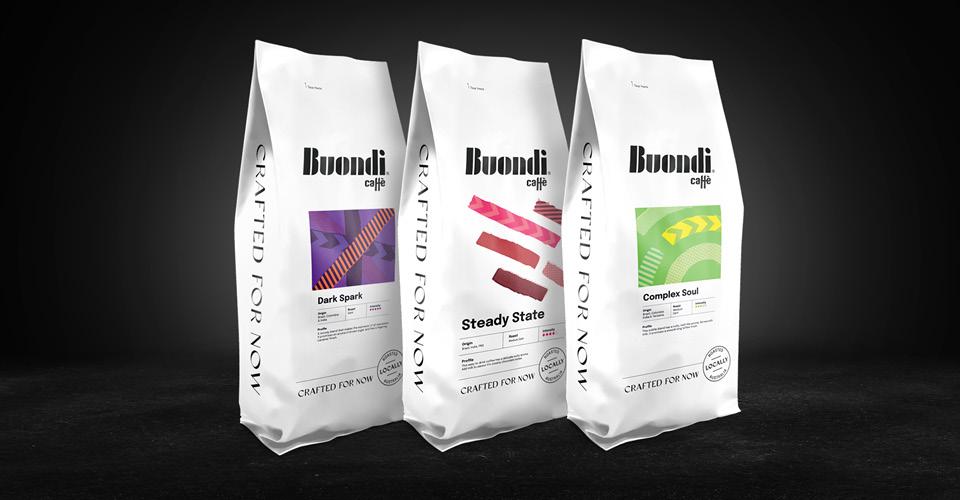
“Our service encompasses a full spectrum of offerings to café businesses, ranging from technical to operational and commercial support. Its purpose is to equip and empower café owners to do more with their coffee offering,” says Jo.
“We support our customers’ success in their business by finding and partnering up with the right solutions, backed with the support they need.”
This includes national service coverage, technical support and preventative maintenance, and barista training.
“We offer operational training whenever equipment is placed on site, as well as information about how to maintain and get the best use out of the machine. We always ensure operators deliver the highest quality of service to their customers,” says Jo.
“We’re back to doing a lot of onsite faceto-face barista training since COVID-19. We now have dedicated state champions who conduct barista training, and we work with nationally accredited training centres in major cities, available to our customers free of charge.
“We offer virtual training sessions, and have a range of barista training videos available to customers upon request. Our quality control and technical operations teams also provide training for our automated push-button machines.”
Nestlé Professional also offers collaborative commercial and marketing support.
“We challenge ourselves to rethink our strategies and find innovative ways to cater to customer’s needs. For example, last year we provided a digital marketing guide for restaurants and cafés to help them take their business online and successfully navigate COVID-19,” Jo says.
“We believe it’s important to be supported by the right marketing message and commercial offerings, to entice customers to purchase and increase the rate of repeat purchase.”
Jo hopes this will be case with the
refreshed, contemporary Buondi range rolling out across the country.
“Our main goal this year is to grow our presence in pubs, clubs, and cafés. We want to empower our customers to have a brand that they’re proud to showcase and that their customers will love,” she says.
“This is a brand that our consumers can trust. This is a brand that suits all palates and lifestyles.”
For more information, visit www.nestleprofessional.com.au/brands/ buondi

captain steers a ship, a driver navigates the roads, and a pilot guides its passengers safety through the skies.
In the case of Barista Attitude’s new Pilot espresso machine, baristas will be invited to take the reins of the first single boiler machine in the Italian manufacturer’s range.
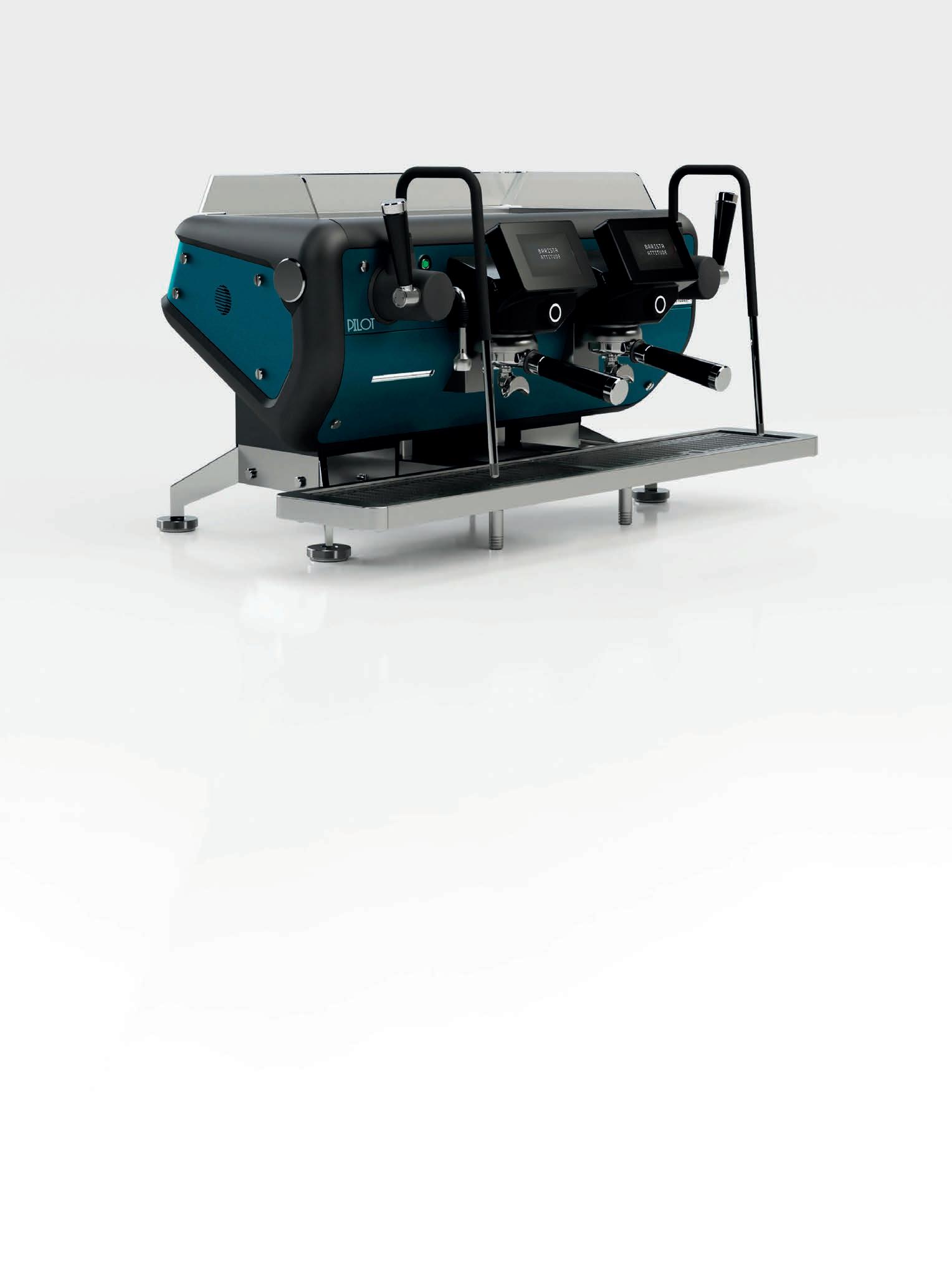
“Barista Attitude products embrace words that encompass the sea: ‘Tempesta’ means hurricane or storm in Italian; ‘Faro’, meaning ‘lighthouse’, symbolising our coffee grinder; and Pilota, meaning pilot, symbolises the ability to lead through a storm,” says Barista Attitude Brand Manager Cinzia Pietrobon. “And that’s what our new machine Pilot represents, a machine that a barista can easily navigate to create quality and consistent coffee in all situations.
“More and more, the market is asking for professional and consistent machines, especially in locations where baristas and staff are not well trained. In some instances, if the operator of the machine doesn’t know what pressure profiling is, and how to use
the machine’s technology to its best ability, then it’s not adding value. It’s a restriction that’s more likely to cause mistakes that can impact the café’s daily operation.”
Rather, the solution for operators still looking to deliver a quality product but in a simpler way, Cinzia says, is Barista Attitude’s Pilot machine, with a single boiler to produce hot water and steam to manage high productivity of milk-based drinks.
Pilot will share the best features used in Barista Attitude’s Tempesta and Storm machines, including the possibility to set and control pre-infusion for different coffee profiles and recipes. Operators can simply adjust the quantity of water and time of preinfusion before the brewing process begins.
Just like its siblings Storm and Tempesta, Pilot will include touchscreen display screens above each group head for users to easily control and set features of the machine for best in-cup quality.
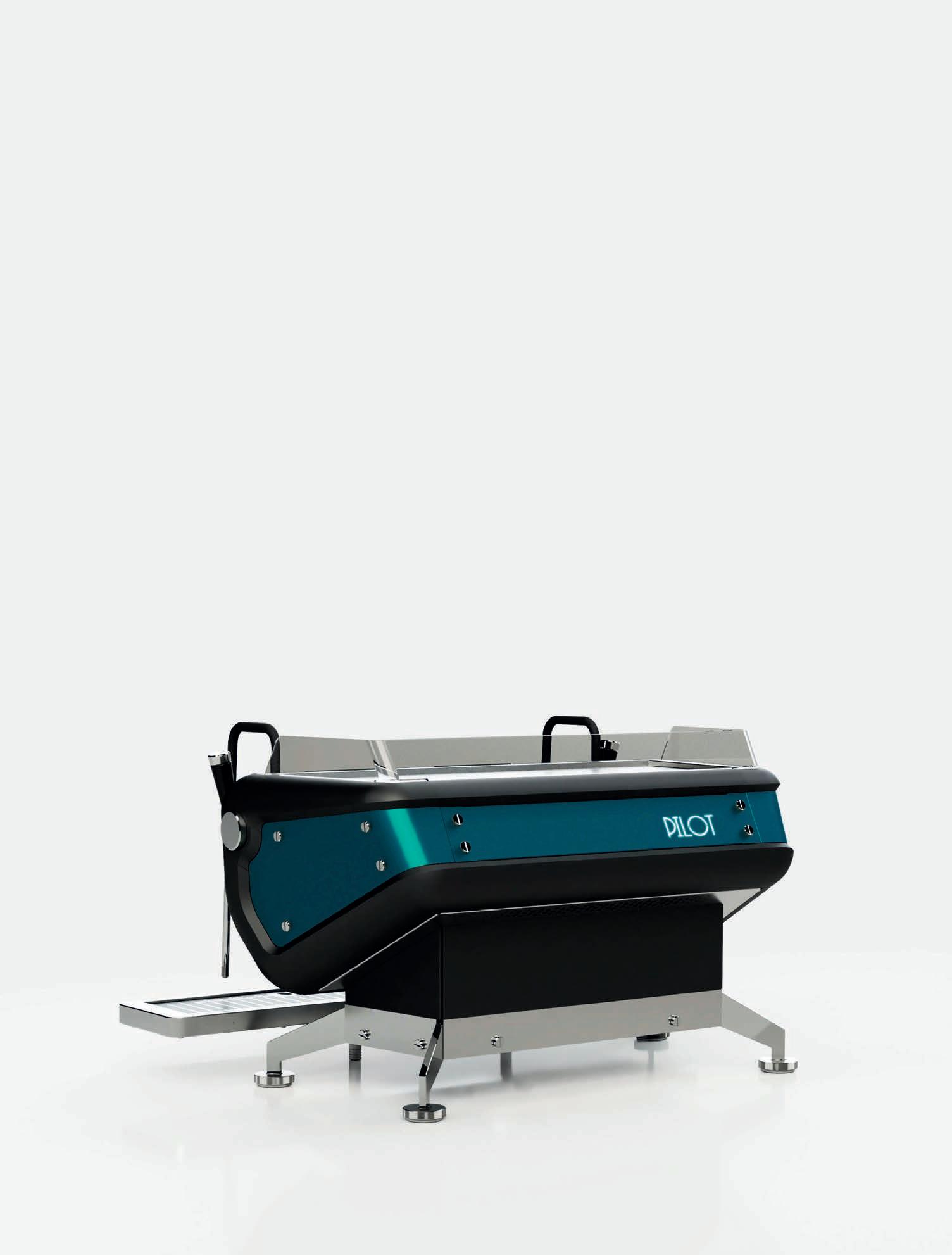
“Pilot is the machine people need when they want to simplify the coffee making process. It’s a sophisticated solution for those who have limited time for staff training, are educating people who are not
familiar with coffee making, or are at the beginning of their barista journey,” Cinzia says.
“It’s designed to be highly effective with simple operations. Because Pilot is a single boiler model, it could be perceived as a mainstream machine but equally, there are features on this machine designed for the specialty market and staff who want to explore settings and functionalities a bit deeper. It gives you the best of both worlds in the one machine.”
For countries where expresso-based milk beverages reign supreme, Pilot includes a long steam arm, which produces dry steam and no additional water dispersed to create quality milk foam consistently.
Baristas can control the steam via a new lever, which can also purge after use.
“Coffee chains for example, train baristas to clean the steam wand after use, but sometimes in peak periods, the barista forgets or perhaps doesn’t do it thoroughly. That’s why this new lever, is a simple and more ergonomic device that purges water [after use]. After all, Barista Attitude is all about making the life of a barista easier, and
Barista Attitude introduces a new espresso machine that takes the guesswork out of operation, designed to make any barista feel confident and empowered to make a quality espresso.
it’s done with small details such as this,” Cinzia says.
An option in the Pilot model is the ability to have an auto-steamer that automatically heats and froths milk at the touch of button, even allowing the user to set different levels of milk temperature and froth. This allows the barista to turn their attention to the coffee brewing rather than 100 per cent focus on milk texturing.
“This function is especially important if you have multiple staff. It doesn’t matter if you or I are on the machine that day, what the customer can be guaranteed of, is perfectly textured milk each time, even during peak periods of pressure,” Cinzia says. “Another good option in the Pilot is to have one steam arm as manual operation, and the other automatic – perhaps one dedicated to dairy and the other for dairyalternatives to avoid cross contamination. We can best customise to your needs and that of your staff.”
There is also an option to connect the Pilot machine to Wi-Fi and utilise Barista Attitude’s cloud-based telemetry platform (Beans2Cloud platform) to access information such as coffee counters, errors, faults, and service reminders.
“Telemetry is growing in importance and can make such a difference to operators who monitor multiple outlets at different locations and want to control and set recipes and quality output across multiple sites,” Cinzia says.
When people first get a look at the design of Pilot – with lights on the back
and front of the machine to illuminate the working space, group heads and drip tray – Cinzia says it will be easy to identify that this machine belongs to the Barista Attitude range, embracing strong design connections between Storm, Profilo, and Tempesta.

Unique to Pilot however, is the shape of the back of the machine to fit the larger single boiler, and the design of its feet.
“There are some unique elements but strong family ties too,” Cinzia says.
“A machine should always have a nice design, but the main focus is not the machine itself, but the person using it. The coffee machine is simply the stage in which the barista performs. It is the tool that helps a barista to express their talent and creativity, and the machine in which we offer our best technology under the umbrella of CMA in Veneto, Italy, which has been manufacturing espresso machines since 1969.”
Pilot will officially launch at World of Coffee in Athens, Greece, in June, followed by a special appearance at Host Milan in Italy along with the complete product line-up of Barista Attitude machines. This includes the Profilo with its unique interface and pressure profile ability; and Tempesta and Storm in the multi-boiler and Flow Rate Control (FRC) models.

Last year was an exciting year for Barista Attitude. Its Tempesta Gara machine made its World Coffee Championship debut as the official coffee machine of the World Barista
Championship, which it will carry until 2025.
This year, the Italian-based company is excited about the prospects for Pilot, expected to arrive in Australian in the second half of 2023, and for a new project it hopes to deliver in 2024.
“We are thinking about creating a single group Barista Attitude machine for coffee professionals and locations that don’t need the capability of a commercial machine but still want to indulge in a quality one-group machine such as a showroom, or home office,” Cinzia says.
What drives Barista Attitude’s future product developments and decision making, Cinzia adds, is the availability of technology and the values of the company. “The question we always ask, is: ‘How we can help the hospitality sector? How can we help express the talent of baristas?’,” she asks.
“Hospitality is about people feeling comfortable and to do that, means offering different solutions, not just at different price-points but solutions to suit different businesses and the different stages of where the barista is in their life and coffee journey. We want baristas to know that our passion for them and simplifying their work in the best way possible, are the driving values that underpin Barista Attitude’s brand philosophy.”
For more information, visit www.barista-attitude.com or contact Australian distributor Coffee Works Express at www.cwe.com.au.
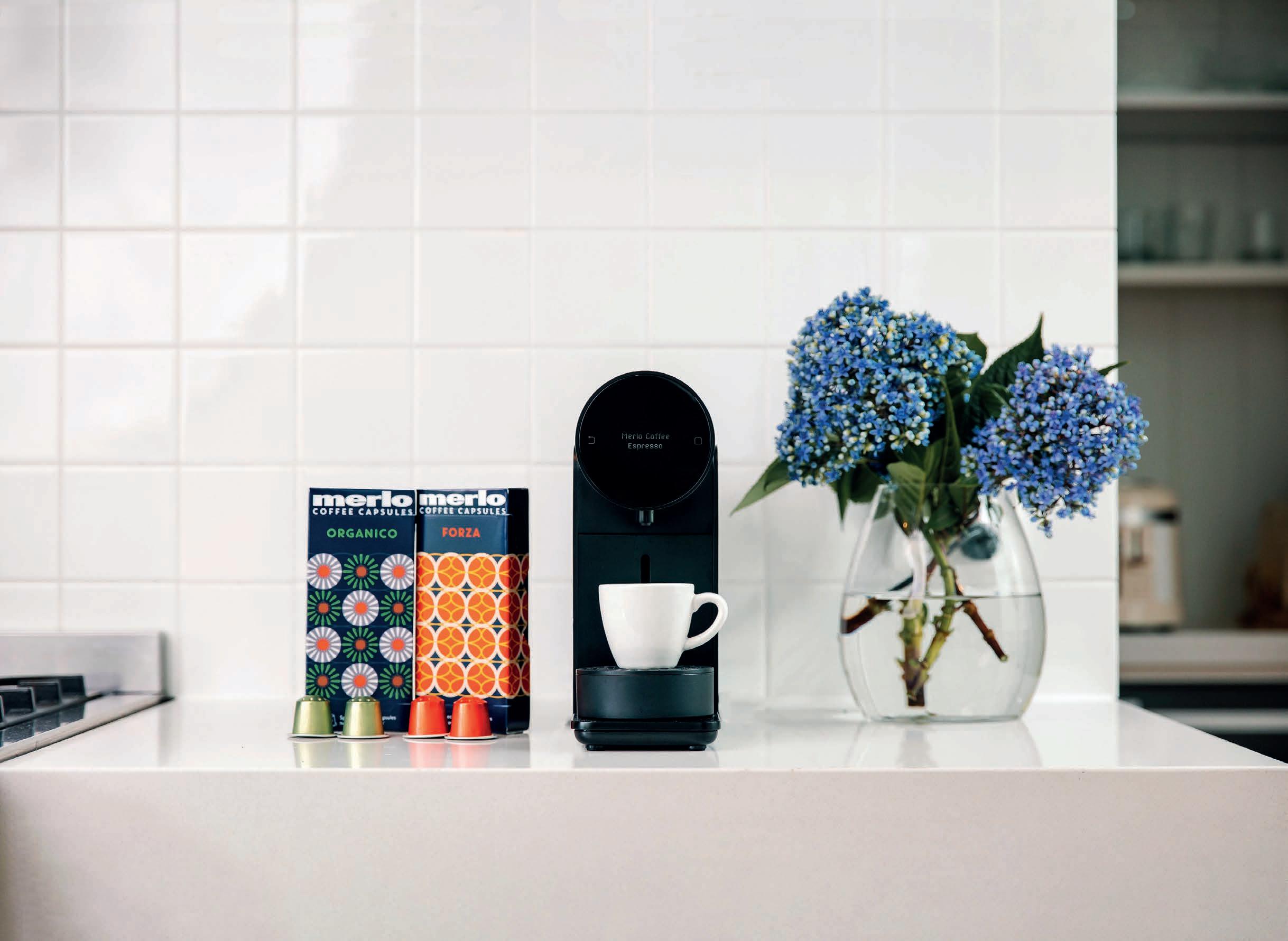
For a long time, Brisbane-based coffee roaster Merlo Coffee wouldn’t entertain the thought of capsule coffee, as it never delivered against its high expectations of quality over format.
But Founder Dean Merlo persisted in the search and development of a better tasting capsule experience, trialling, and trialling again, until he finally found the perfect blend.
“This has been a development many years in the making. Over 15 years ago, my business partner James Wilkinson and I opened a dedicated capsules store in Brisbane – well ahead of its time. Back then, the coffee landscape was a simple offering: espresso and cappuccino with your choice of black or full cream milk, nothing else,” says Dean.
“So much has changed since then: taste
profiles, dietary needs, brewing methods and of course, how and where we all enjoy our daily ritual. As coffee purists who love espresso coffee freshly made, we weren’t enthralled with how the capsules tasted.
“Now, with three decades of coffee roasting experience behind us, Merlo Coffee re-engineered our signature roasting philosophy to develop our new specialty coffee capsules. We are proud to offer the best tasting specialty coffee capsules on the market.”
Launched in December 2022, Dean describes the capsules as full flavoured, with a smooth finish, in the convenience of a capsule, for when a barista isn’t close at hand.
“Mastering the art of Merlo coffee still begins with a curation of specialty coffee beans with a cupping score of 80 or above. Hand-selected from all over the world,
the beans are evaluated by our licenced Q-Grader to meet the strictest standards of excellence, including aroma, flavour, body, acidity, aftertaste, and are free from any defects,” he says.
“Our artisan roasters then painstakingly fine-tune the roasting profile to accommodate the specifics of our capsule technology, balancing grind size, water ratios and extraction times to deliver against our high-quality standards.”
Merlo Coffee roasters then apply multistage precision grinding, a sophisticated degassing and oxygen modified encapsulation process, and seven-layer foiling technology to lock in the full flavour and richness of each coffee until it’s ready to be brewed.
“The grinding technology is really what took the capsules from great to best in market. Using sophisticated Italian roller grinders allowed a very powerful and
and why it’s the next best thing to barista-made coffee.
precise grind. It enabled us to grind to the right degree to get the best flavour for our coffee,” says Dean.
The capsules are made with aluminium packaging, meaning they come with multiple functional and environmental benefits.
“We use aluminium capsules for infinite recyclability and to ensure there is no moisture or oxygen transfer. Capsules are compatible with all original line Nespresso machines, or machines of the same standard from other manufacturers,” says Dean.

The use of aluminium capsules highlights the roastery’s continued focus on operating sustainably. Among other initiatives, Merlo Coffee has shifted all of its takeaway cups and lids to compostable alternatives.
“No one likes to use cups that end up in waste. It’s terrible and the reality is, while the cups can be composted, unless they’re disposed properly, they all end up in the same place. We go to a lot of trouble to operate our own composting service at our cafés, where everything we use from the cutlery and serviettes to food packaging and coffee cups are compostable,” Dean says.
“Everything is thrown in a compost collection bin, which we have to pay extra for, but it’s important to us. It’s amazing how much waste we’ve saved in the last couple of years.”
The company is also improving its energy usage, with solar panels installed at its two main roasteries in Bowen Hills and Eagle Farm.
Merlo Coffee capsules are based on two of its most popular blends, Forza and Organico.
“Forza is our strongest, boldest blend. It packs a punch with the smoothest finish you never saw coming. Italian for strength, Forza delivers a strong, rich, and intense caffeine hit. Earthy sweet aromas and full body profile, rounded out with warm toffee and oak flavours,” Dean says.
“Organico involves unearthing a richer tasting, full flavoured organic coffee capsule that’s naturally better. A complex aroma with notes of brown sugar and hazelnut, chocolate flavours, excellent balance, and depth. Full bodied with a lingering finish, this blend is 100 per cent Certified Organic.”
Dean says after Merlo Coffee’s cupping panel conducted countless tests over many months, Forza and Organico presented the best flavour profile in the capsules.
“Forza is our only blend with a small amount of Robusta in it, perhaps that’s why
it came out so well. And now we have an organic capsule that’s 100 per cent Certified Organic, which is fantastic,” he says.
While Dean believes nothing beats espresso coffee, he says COVID-19 has unveiled a fresh outlook on convenience and affordability.
“Coffee drinkers are wanting to mirror the coffee tastes and experience they usually get from their local café, at home. Merlo Coffee has adapted to provide offerings for the at-home market to reflect this,” he says.
“Also, the need for fast beverages has expanded. Probably the most important and powerful advantage of single-serving coffee capsules is that they save a lot of time. One thing you can be sure of with these coffee capsules is that you’ll always get the same taste of your favourite brew.”
The capsules come in a 10-capsule pack for $11.50 or a 60-capsule carton (six 10
packs) for $63.00.
“To celebrate the launch of the capsules, Merlo Coffee has also launched a Coffee Capsule Starter Pack, which includes 20 Forza capsules, 20 Organico capsules and a set of two of the popular Merlo ‘Tulip’ cup and saucer sets,” Dean says.
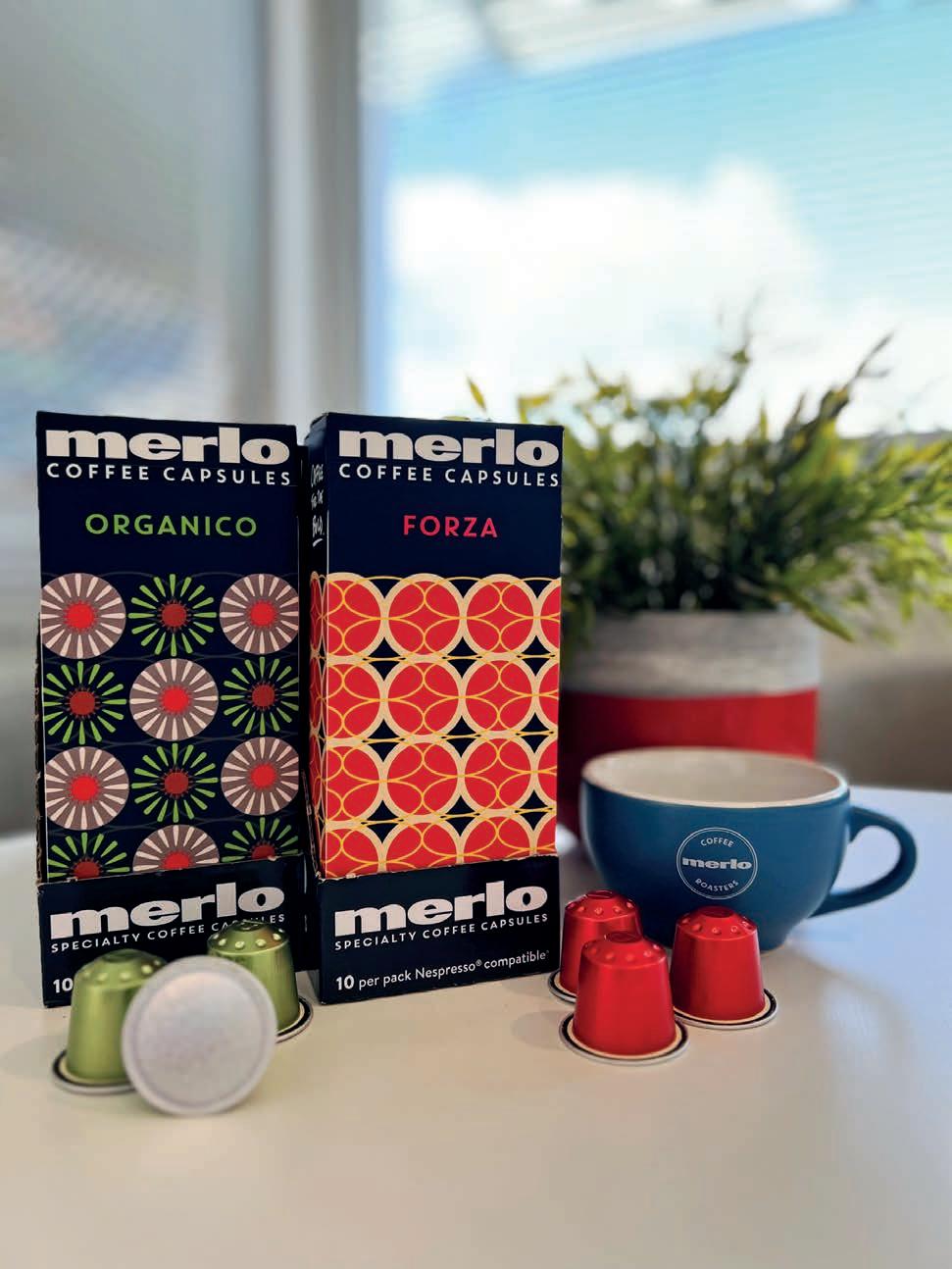
Dean describes the specialty coffee capsules as an artform, an intimate knowledge balancing science, trial, error, persistence, and patience.
“It’s only taken 30 years of roasting experience, a curation of specialty green beans, multi-stage precision grinding, oxygen modified encapsulation, and years of development to perfect,” he says.
“The next best thing to barista made coffee has arrived.”
For more information, visit www.merlo.com.au
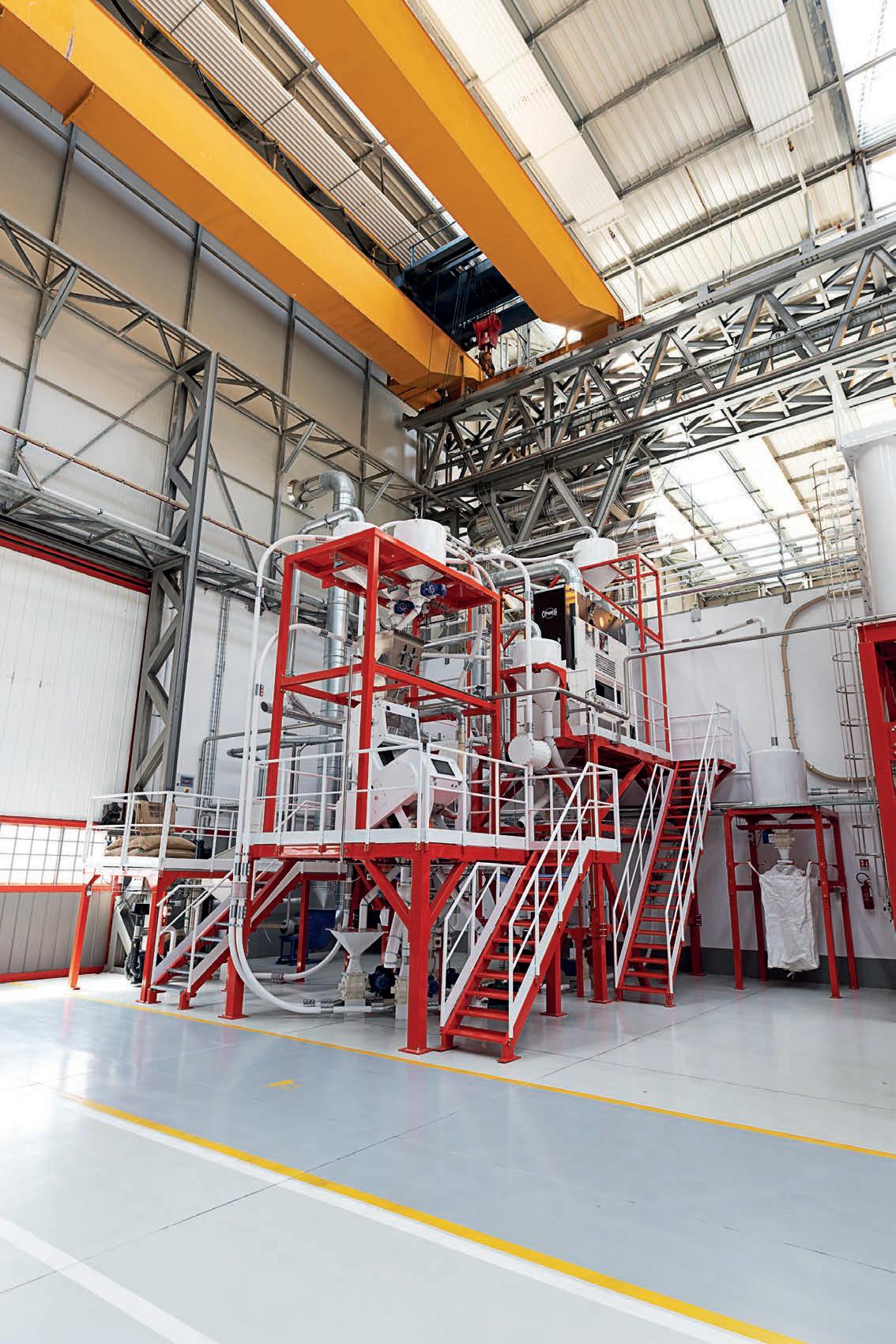
are customary from the start in order to avoid any damage, product loss and/or contamination.
“For smaller plants processing 500-kilograms of green coffee per hour and receiving 60 to 70-kilogram pallet-loaded jute bags of green coffee, suitable reception equipment should be handled indoors on a hopper and cut open manually. The hopper can be installed underground or on a supporting frame, then the coffee can be transferred to storage silos or directly to the roaster using a pneumatic system,” says Luca.
He says the most convenient solution for plants with a larger capacity is bag reception from trailers, equipped with an integrated tilting unit.
“However, it is just as easy to extract the bags from the container and place them on a tilting unit inside the reception area. Combined with a sorting unit which handles the bags downstream, bags can simply be fed one by one into the cutting unit,” Luca says.
“Belt conveyors are another flexible solution to bring the bags inside the facility. The conveyor can extend telescopically into the delivery truck, allowing operators to position the bags on the swivel head, combining automatic bag opening or palletising systems.”
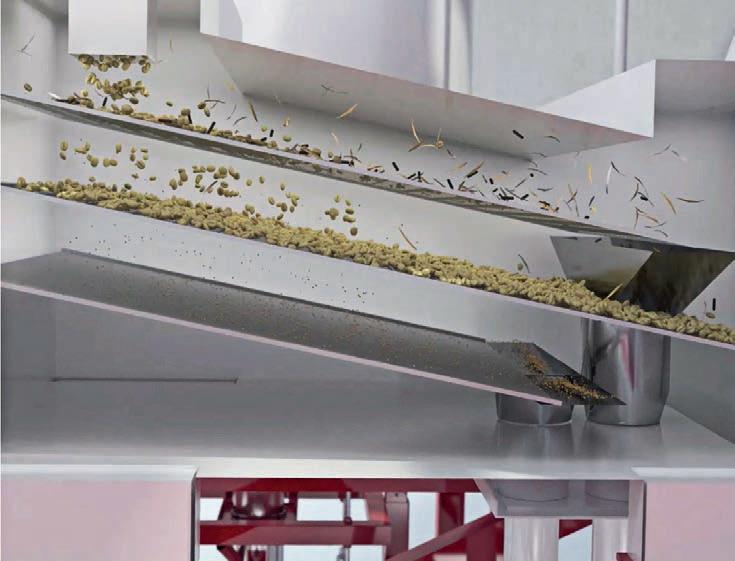
Luca says increased attention on inhouse treatment options helps eliminate defects and impurities found in bags of green coffee, such as empty grains, half black or black beans, unripe or damaged beans, fragments of iron, wood or stones.
In-house cleaning solutions also gives roasters maximum control, especially for large companies that process tonnes of coffee a day.
“In facilities handling about three tonnes of raw coffee per hour, a complete in-house cleaning solution is an astute investment because eliminating unwanted elements present in poorly cleaned coffee, thus significantly improving the commercial value of the end product. In addition, getting the cleaning strategy right will have positive effects on the processing stages downstream,” Luca says.
finer and/or coarser than the coffee. These machines are equipped with an aspiration system that is connected to a filter for dust removal and are highly recommended to plants processing up to 500-kilograms per hour, even when receiving ready-cleaned coffee. This doubles the effect of cleaning by removing foreign bodies, thereby improving coffee quality.”
IMA Coffee also provides a dry destoner to remove foreign bodies with a specific weight higher than coffee, such as stones and pieces of metal. This can be combined with a gravity table to separate foreign bodies that are almost the same size as coffee beans but with lower density items such as wood and aluminium impurities.
Luca says today the most advanced and effective cleaning technology is an optical sorter, that separates coffee by shape and colour. He usually recommends this equipment as an all-round cleaning solution, combined with a sieve.
“Optical sorting machines are available with one to seven chutes to satisfy any production capacity requirement and for multiple passes,” Luca says.
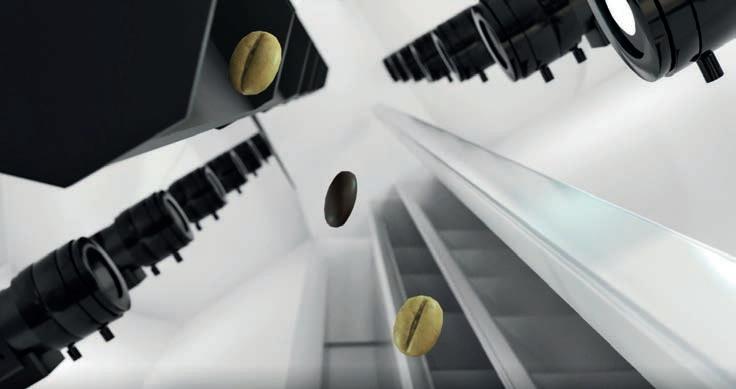
“It is also a versatile solution as operators can adjust the separation parameters according to the frequency and importance of the defects to be assessed and eliminated. This means having close control over the
completed, a weighing station ascertains the weight of the rejected material. Losses in product volume are compensated for by the incremental value of the sorted product.”
IMA Coffee Petroncini strongly recommends roasters to improve the value of green beans, to avoid processing defected beans and tarnishing the final coffee taste.
“For example, a proper cleaning process can limit the presence of white beans, which are yellowish beans that are seen at the end of roasting. They are grains that come from unripe or underdeveloped coffee berries from weak branches of plants grown in poor soils. The absence of organoleptic substances in the beans does not allow any transformation or reaction during the roasting process. If present in excessive quantities, they could produce a sour taste similar to raw peanut or cardboard. The dry sensation they leave on the palate can seriously affect the quality of the cup,” Luca says.
“For these beans, roasting cannot help, as it will never be able to change the structure. The only solution to reduce or eliminate them is more accurate cleaning and the selection of green beans. That’s why some optical sorters can also sort roasted coffee, separating the lighter beans from the darker beans.”
Considering plant capacity and optimisation of handling operations, Luca says every customer can decide the preferable way to receive and treat raw coffee in their facility.
“A tailored engineering solution should combine the customer’s logistical needs and production expectations with the available space and budget, considering the necessary manual operations involved,” he says.
“It’s not always easy to find the perfect match, but what makes IMA Coffee proud every day is the satisfaction in reaching the goal together with the customer at the end of every project.”
For more information, visit www.ima.it/coffee.
IMA Coffee provides coffee reception operations suitable for all plant sizes.In 2015, independent importer and coffee machine distributor, Coffee Works Express (CWE), saw two new Wega espresso machines hit the market – the Polaris Tron and Pegaso. The machines quickly found their place in the coffee community and for the past eight years, have maintained their reputation as quality models that have evolved with the daily needs of baristas.
The Polaris Tron replaced the previous Polaris model, which CWE’s Fabio Cordovado says was extremely popular in its own right, but was taken to another level with advancements to improve operation workflow.
“It was an easy transition, in part because the extra features that Polaris Tron had made it advantageous to a lot of operators,” says Fabio.
To the benefit of café operators, the raised group head is deliberately manufactured to allow eight- and 12-ounce takeaway coffee cups to sit underneath the spouts, eliminating the need to transfer shots into a larger cup and therefore ruining the crema.
Barista lights on the machine allow operators to monitor the espresso shot as it pours and shot timers provide at-a-glance
information about the speed at which the espresso is pouring. Baristas can use this information to identify whether the coffee needs to be ground finer, or coarse, and make minor adjustments to how hard they tamp without pausing mid-service to time their shots.
On the Polaris Tron, steam levers replace the older machine’s tap system, which required turning of a tap and subsequent repetitive wrist movements to activate the steam wand.
“The steam lever makes it a lot easier on the hands, it’s ergonomical,” says CWE National Sales Manager Vince Zappia. “It’s just a matter of flicking the steam on, and flicking it off when you’re done, ceasing texturing immediately.”
The Wega Pegaso is designed as an entrylevel unit, suitable for those just starting out in their coffee making journey, as well as fully qualified and experienced baristas.
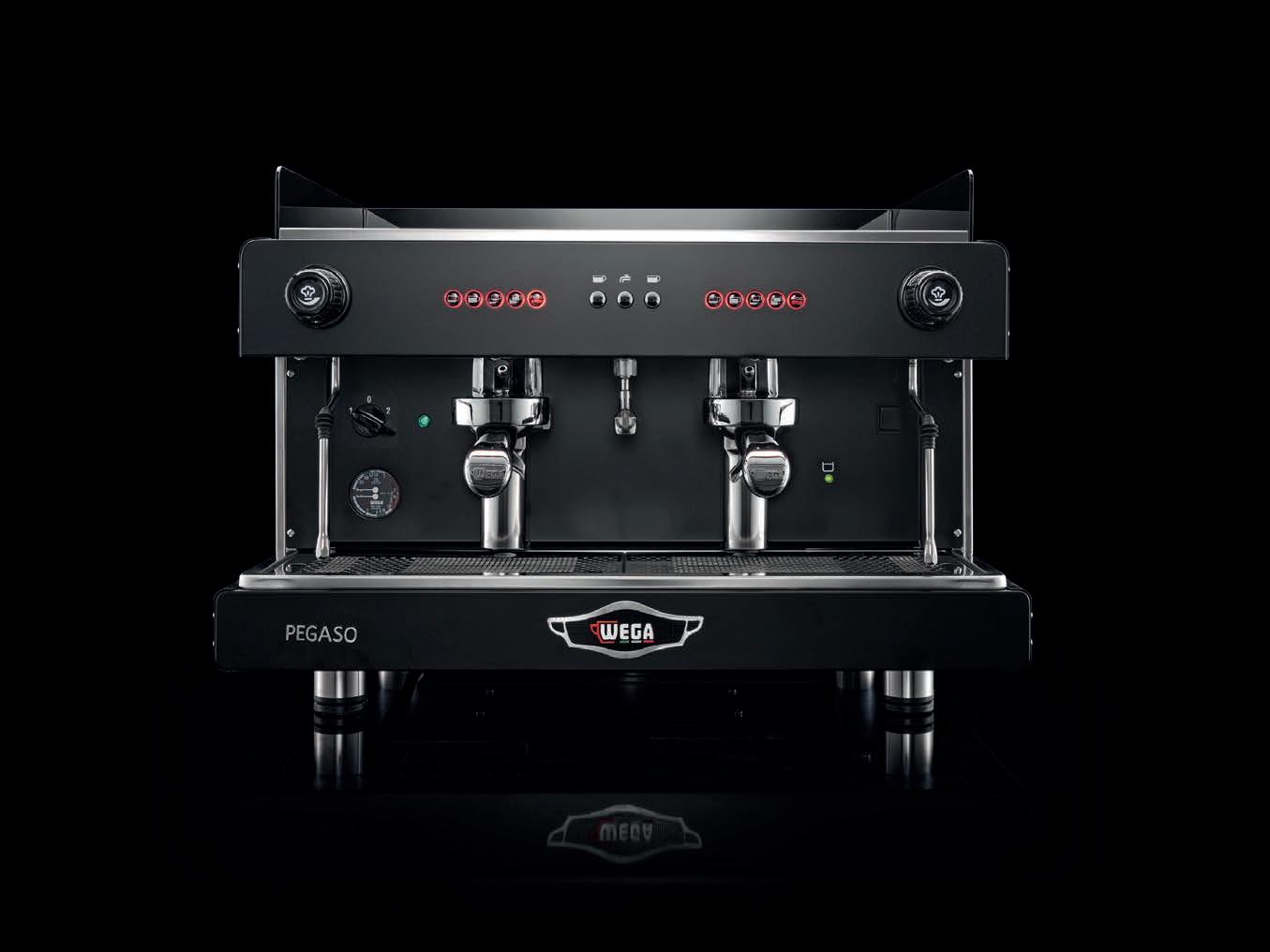
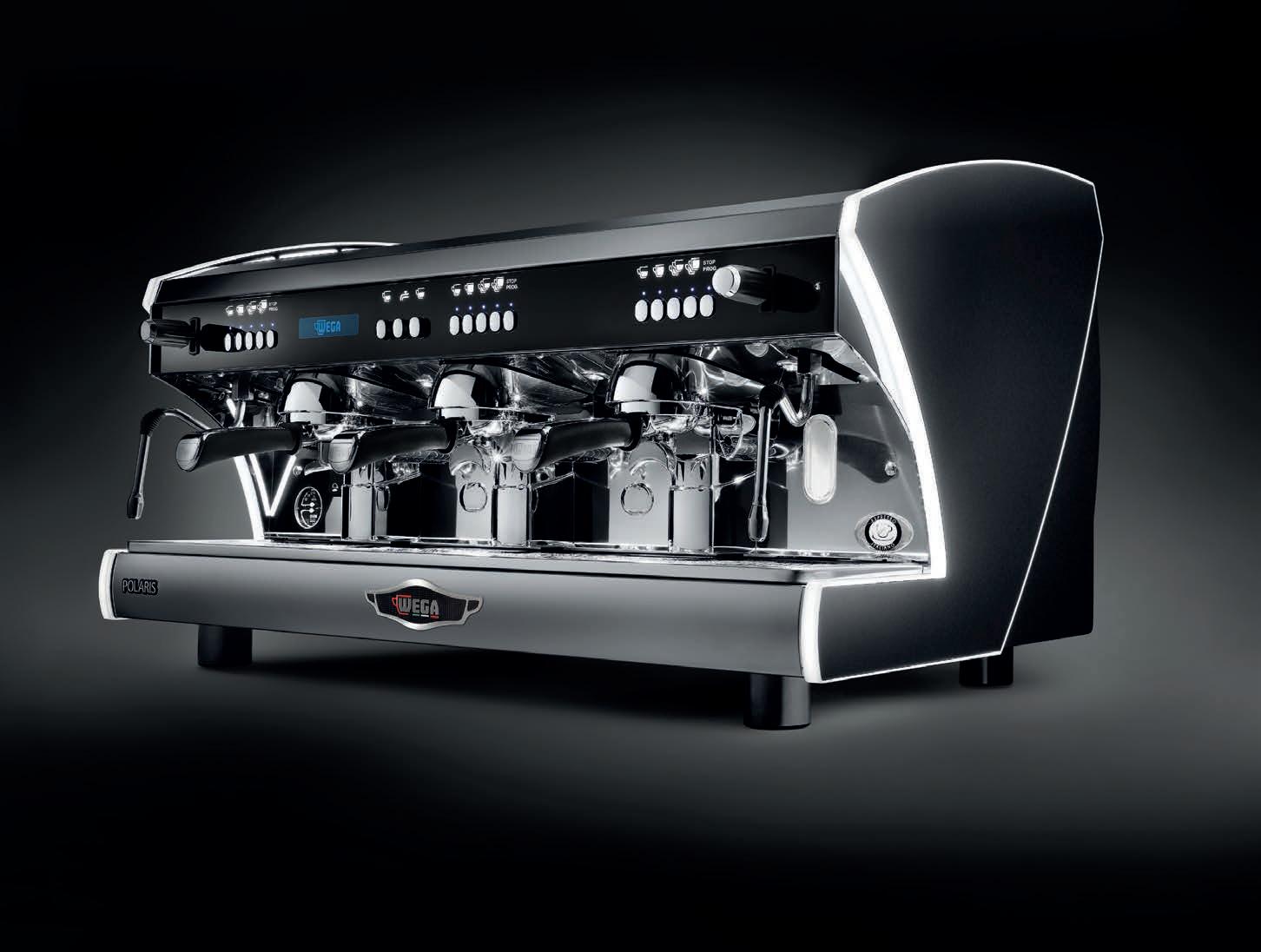
Once the machine is installed, and the pressure and volumetrics are programmed, it stays consistent throughout the day, but can be easily adjusted. Any programming made to the master group will automatically transfer to the others.
“It’s a simplified, user-friendly machine,” Fabio says. “Once the grind is set and the
levels are set on the machine, all you have to do is load the handle, lock it in, press the button, and the machine will do the rest.”
Mirroring the high group head design of the Polaris Tron, the Pegaso boasts four programmable dose buttons per group, as well as a hot water dispense for teas and infusion drinks.
With a classic machine design, the Pegaso traditionally sported a matte black body and stainless-steel back, but recently became available in matte white to keep up with the changing aesthetic in modern cafés.
CWE’s Natalie Kollar says the Wega Pegaso is perfectly situated to help meet customer needs as the market shifts and operation costs begin to increase.
“We understand that customers can’t always spend $10,000 plus on a machine,” she says. “It’s important to us to be able to offer such a diverse range in terms of pricing. We are really happy to be able to offer the Pegaso – a high-value machine at a lower cost, that looks great.”
According to Vince, one of the keys to the success of the classic Wega machine is that it is so hard-wearing, and able to stand up to the intensities of peak-hour service without faltering.
Coffee Works Express explains why the Wega Polaris Tron and Pegaso espresso machines are tried and tested models that have become mainstays in the Australian coffee landscape.
Can’t beat a classic
“What we keep hearing from baristas is that these machines are workhorses – they never miss a beat,” he says. “They can rely on these machines to do the volume they need to get through the morning rush – whether they’re doing 15 kilos or 30 kilos – and they can depend on the Wega’s to keep up with the pace they need to get their service out quickly.”
The Pegaso and the Polaris Tron are seen in cafés across the country, evidence that supports their reputation as durable, reliable machines.
“We’ve got machines out in the field, making coffees, that are easily more than 10 years old, they are built to last, when cared for,” says Fabio.
He recommends that, as with any machine on the market, a regular preventative maintenance service is scheduled every 90 days, depending on the average volume of a café, to ensure a long working life.
Critically, the sheer number of Wega machines in cafés and restaurants means that the spare parts for them are equally accessible, thanks to CWE’s regular supply.
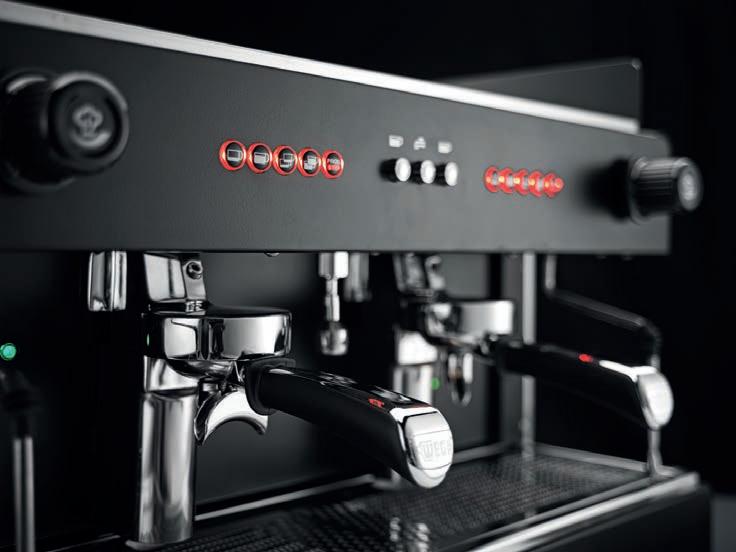
“Ninety-nine times out of 100 we have the part in our warehouse. But on the rare occasion that we don’t have it, we can ship it in without any trouble,” says Vince.
CWE also caters for element upgrades for both the Polaris Tron and the Pegaso so that the machines can meet demand without needing to be replaced.
“If a site is extremely busy, provided they have the right supply, they can opt to have a larger element installed,” says Fabio.
“Upgrading to a larger element helps the machine recover pressure faster.”
He adds that the Wega range from Italy is broad enough to cater the diverse needs of CWE’s customers.

“There are single- and double-group machines with smaller boilers for home or office spaces,” says Fabio. “Or you can get various larger models with a heat exchange unit – where the heat from the boiler is used to heat the water for brewing – all the way up to multi-boiler units for high-volume environments.”
Natalie says that the Polaris Tron and the Pegaso will always be a part of CWE’s lineup as a staple of the Wega brand.
“The Polaris, especially, has been around
for a long time,” she says. “When it comes down to it, these machines really set the benchmark in the market. We know that they work well, and we know that people want have confidence in them, so we’re really proud to be able to continue offering them to our customers for the long term.
“There will also be new machines coming out next year. Customers can trust the new Wega machines have the same robustness and longevity as the Polaris Tron and Pegaso. We’re really looking forward to introducing those new machines to the market, and to our customers, in 2023.”
For more information, visit www.cwe.com.au/wega
Polaris Tron steam levers replace the machine’s older tap system.The Melbourne International Coffee Expo is set to reunite the global coffee community once again, celebrating its 10-year anniversary in 2023.
hen people think of Australia, they imagine sweeping landscapes, picturesque beaches, quality coffee, and dangerous wildlife. While the latter can be overdramatised, the rest of the stereotypes are true, particularly its thriving coffee culture.
It’s this esteemed espresso ethos that will be on display when the coffee world gathers for the Melbourne International Coffee Expo (MICE) from 17 to 19 August 2023 at the Melbourne Convention and Exhibition Centre (MCEC).
“More than 15,000 visitors experienced the Australian coffee scene first-hand when they attended the ninth instalment of MICE in 2022. The 2023 edition already has 80 per cent of Australian representatives expected to attend, a testament to its Australian roots,” says MICE Show Director Lauren Winterbottom.
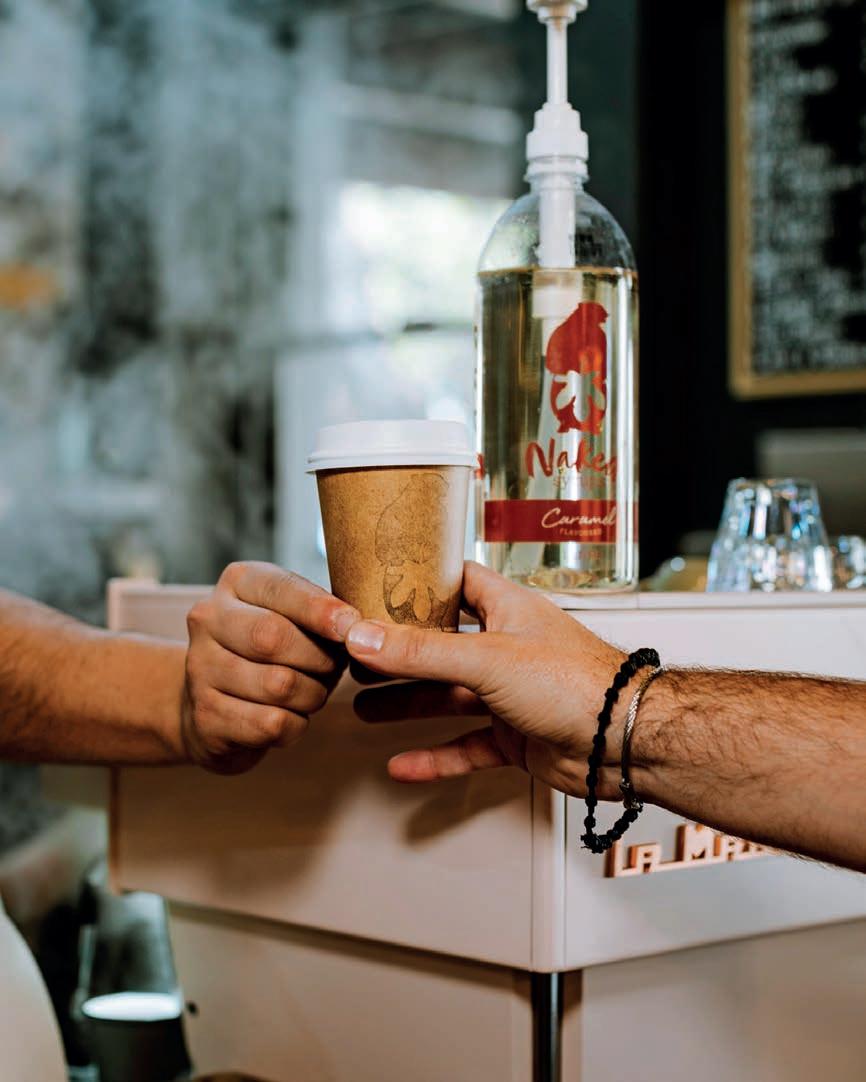
Lauren says MICE2023 is set to be Australia’s most anticipated coffee event of the year.
“Returning features include Roasters Alley, Roasters Marketplace, Origin Alley, Cupping Room, and the Product Innovation Awards. There will also be plenty of new additions to continue evolving the expo and ensure we celebrate the 10-year milestone in style,” she says.
The MICE2023 Show Director says exhibiting is the best way to showcase your brand to thousands of qualified attendees and connect with one of the most sophisticated global coffee markets.
“Every market is represented at MICE, and what better place to start forming those essential relationships with future partners and customers?” she asks.
One company to already secure its place in the expo as an exhibitor and supporting sponsor is reusable coffee cup brand Made by Fressko.
“As an Australian business, it is very important to us that we are connecting
directly with our buyers,” says Made by Fressko Director of Marketing and Partnerships Hayley Culley.
“[At MICE2023] we will be showcasing our new products and seeing what else is happening in the industry. It’s also a great place to connect with people who have a genuine passion for all things coffee.”
Hayley says MICE is the ultimate hub of coffee connoisseurs, innovators, and brewers.
“We love being a part of MICE as it provides us with an opportunity to speak face-to-face with our audience, meet others
in the community and of course, grow our business. If you’re in the coffee industry, MICE should be a non-negotiable on the calendar, every year,” she says.
Another company that believes MICE2023 to be a must-attend event is Bombora Coffee + Water Supplies.
“MICE has always been the number one show for the coffee industry in Australia. Attending the expo is a great way to forge new relationships, catch up with old industry friends and explore the latest products and newest innovations that
Naked Syrups says MICE is a great place to connect with the coffee industry and observe new market trends.companies have to offer,” says Bombora Coffee + Water Supplies Technical and Products Manager Joe Le Mura.
Being a proud Australian-based company, Bombora will celebrate its 20th year of operation in Australia in 2023.
“We are always looking for opportunities to showcase Australia’s coffee culture to the world. We see Australia lead the world in so many sectors of the coffee industry, so being a part of that and having the opportunity to provide products and support to some of the best baristas, brewers, and roasters in the world is both a privilege and an honour,” says Joe.
As a primarily online business, Joe says MICE2023 will give customers an opportunity to get their hands on its extensive product range.
“MICE2023 also allows the Bombora Team to reconnect with the industry in a space that unveils the newest, hottest, and most popular products from the coffee industry’s most sought-after brands. As always, we have an amazing line up of brands for MICE2023. We will share our space with representatives from some of the leading brands that we distribute for, including Fellow, Comandante, Brewista, and Toddy,” he says.
“The Bombora team looks forward to welcoming customers, suppliers, friends, and colleagues to our stand to enjoy a few laughs, some informative and educational discussions. And of course, great coffee.”
Flavoured syrups brand Naked Syrups similarly considers the Australian coffee industry to be a market leader. Naked Syrups Business Development Manager Ryan Kalatzis says supporting the local market with on trend products and ideas is extremely important in helping local businesses grow.
“We are passionate about supporting the local Australian market with our Australian made, Vegan Australia Certified offering,” says Ryan.
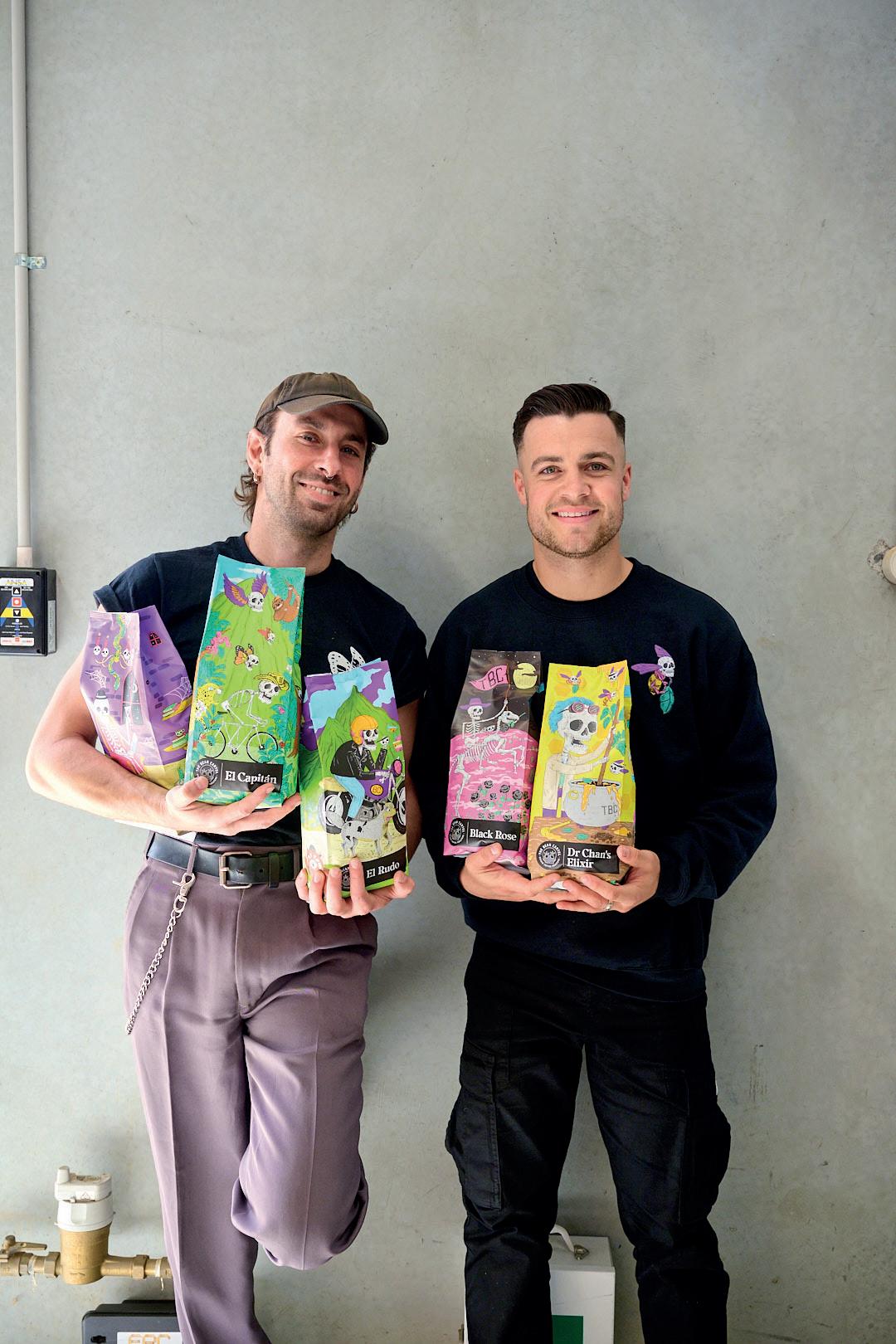
He adds that gaining valuable insight and ideas giving the company the opportunity to evolve and adapt to align with its customers’ current needs.
“MICE2023 is a great place to connect within our industry, discuss ideas, insights, and trends to keep up to speed with the ever-changing nature of our industry,” Ryan says.
Melbourne-based specialty coffee

incredible friendships from MICE from people all over the globe,” says Melissa.
As an Australian-owned coffee roaster, Melissa says The Bean Cartel is proud of what it has achieved and produced.
“We continually look to grow, challenge, and improve our products. At MICE2023 we will get to work alongside some of Australia’s best coffee roasters, who keep us on our toes, and force us to keep levelling up,” she says.
MICE2023 Show Director Lauren says with so much of the coffee community brought together yearly, the opportunities to
Lauren looks forward to the global coffee industry experiencing this at MICE’s 10-year anniversary event.
“MICE attracts a quality audience and provides us with the opportunity to connect the Australian and international coffee communities Visitors can engage with coffee roasters, baristas, green bean traders, coffee producers, equipment suppliers, and machine manufacturers,” she says. “There’s less than a year to go, and we can’t wait.”
For more information, visit internationalcoffeeexpo.com
FEOH ESPRESSO
86 The Centre, Waipu, Northland, New Zealand, 0510
Open Monday to Friday 6:30am –11:30am, weekends 8am — 1pm +64 22 341 0412
Originally operating as a family café in Lindfield, New South Wales 10 years ago, FEOH Espresso opened in 2018 in Northland, New Zealand with the view to change the way people think about cafés – by bringing coffee to the forefront as an espresso bar.
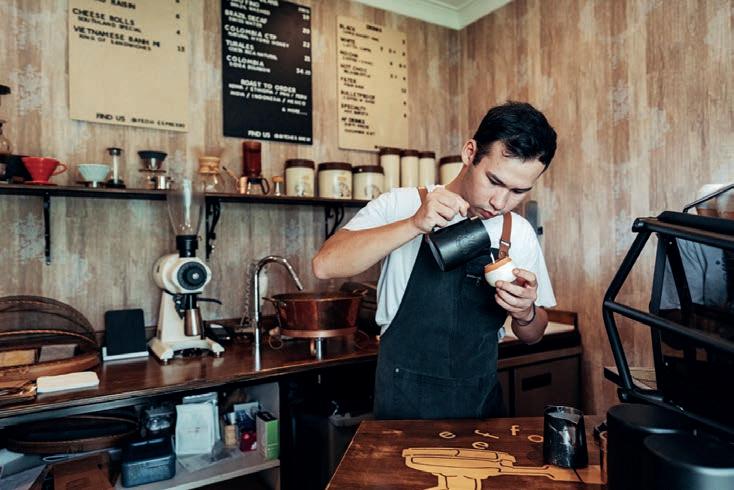
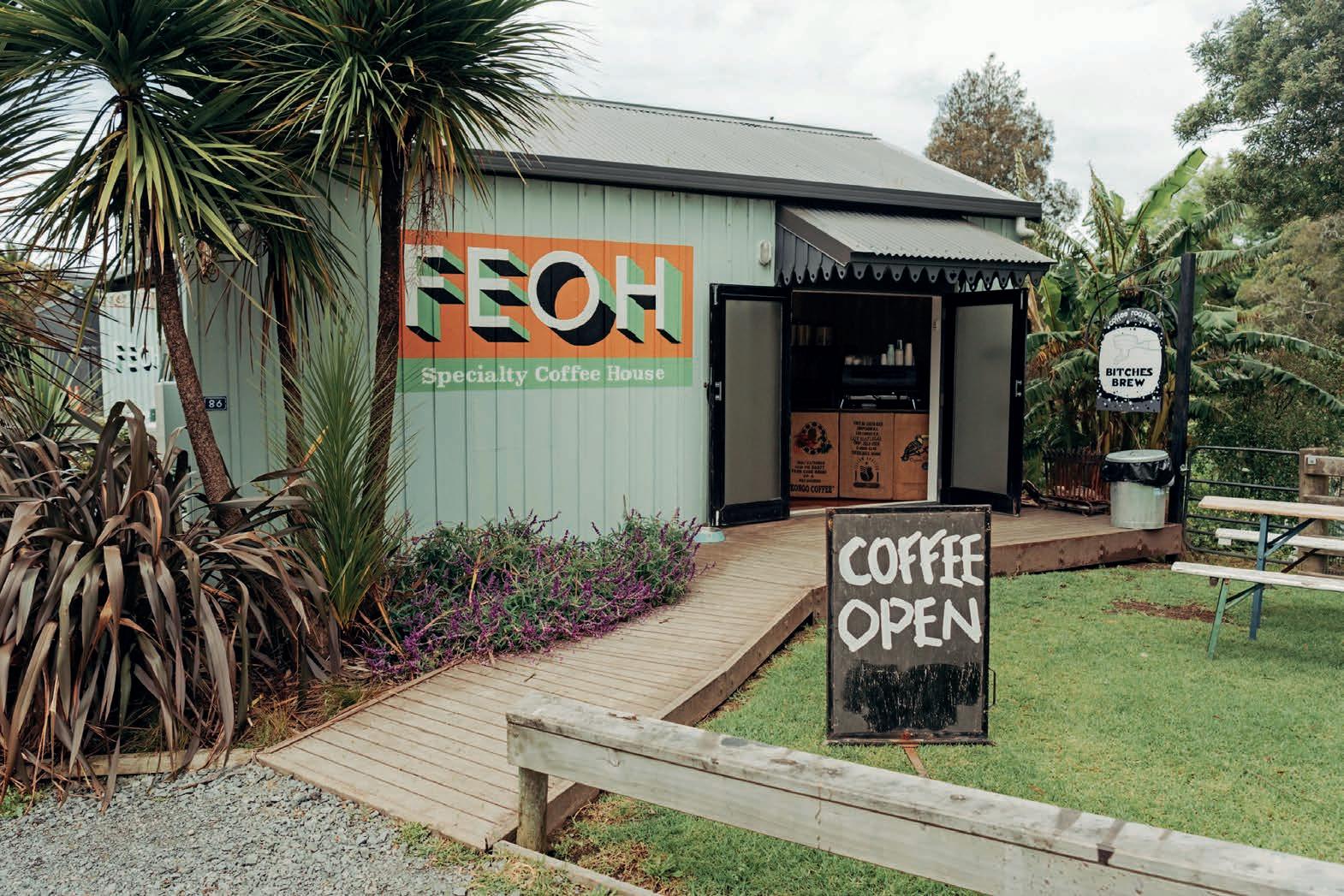
Nestled in the small coastal area of Bream Bay about two hours north of Auckland, father-son team Riki and Benji Taiaroa are all about offering specialty coffee that they personally enjoy, which attracts curious locals who like what they do. Strictly serving single origin brews highlights individual nuances in every cup and using small drum roasters allows
“It gives people that option to have something consistent down the line or step out of their comfort zone and try something new, say something from Colombia one day and something from Ethiopia or Kenya the next. We just love that people are as curious as we are,” Benji says.
“I think in New Zealand in general, espresso-based coffee is still at the forefront in terms of specialty coffee, so we’ve got our usual short coffee – it’s a beautiful, wellrounded wash coffee from Brazil – and it’s beautiful for black or white coffees. But we’re also trying to make filter-style coffee readily available. A lot of our filter offerings have very vibrant, bright acidities which are a great steppingstone for tea drinkers.”
Stepping into FEOH Espresso is like stepping back in time to an old school coffee lounge or saloon bar, but with a more modern twist. Black accents offset neutral, woody tones that co-owner Benji describes as functional, raw and stripped down. Even the equipment is in keeping with
this theme, such as a customised manual lever machine with bone antlers for handles and the panels removed to show off the mechanisms as it works.
Mums and dads who have moved their families further from the city and retirees seeking the quiet life stroll into FEOH Espresso on weekdays for a serious cup of joe, perhaps picking up a homemade cake or fresh cheese roll (a tasty Southland staple that pairs well with coffee and has become increasingly popular for FEOH).
On weekends, the espresso bar attracts a younger crowd searching for a banh mi – a traditional Vietnamese roll that takes three days to prep and is sold exclusively on weekends.
FEOH – an Anglo Saxon-Viking rune for cattle that represents prosperity, wealth, and abundance – has also established a fruitful relationship with the New Zealand Specialty Coffee Association (NZSCA), as a member. This opened Benji’s horizons through both competing and judging in various competitions run by the NZSCA, which has allowed him to focus on his own development and support others in the industry – something that’s become increasingly important to him.
But none of this would have been possible without Riki’s guidance.
“When we started in 2012, Dad had no experience as a barista, he learned from day one and he’s always supported my growth in this industry as well,” Benji says.
“[Being co-owners] works out quite well, but we do get quite confused on who’s boss! But it’s great we’re able to do that. The espresso bar definitely wouldn’t be where it is today without his hard work and how he’s supported me over the years.”
FEOH Espresso is located in Bream Bay, about two hours north of Auckland.10 Lakeview Promenade, Newport, Queensland, 4020
Open Monday to Sunday 6:30am — 2pm
Sidonia McConaghy found her love of French patisserie when exploring the city of Paris, and travelling to Australia in 2018, looking to discover the “beautiful, traditional pastry flavours” she grew up with in Bratislava, Slovakia.
“In Europe, since you were a little child, your parents treat you to a trip to the patisserie, and you could try a little hot chocolate and a cake every time you go,” Sidonia says.
“Sidoniè is about being able to come into this beautiful place, sit down, enjoy the view, the food and the drinks, and just take a moment for yourself and make this your favourite place.”
Sidonié Patisserie is a choux pastry specialist patisserie and a traditional boulangerie based in Queensland. Sidonia describes it as a modern version of a French patisserie, redesigned to cater to the most delicate of taste buds.
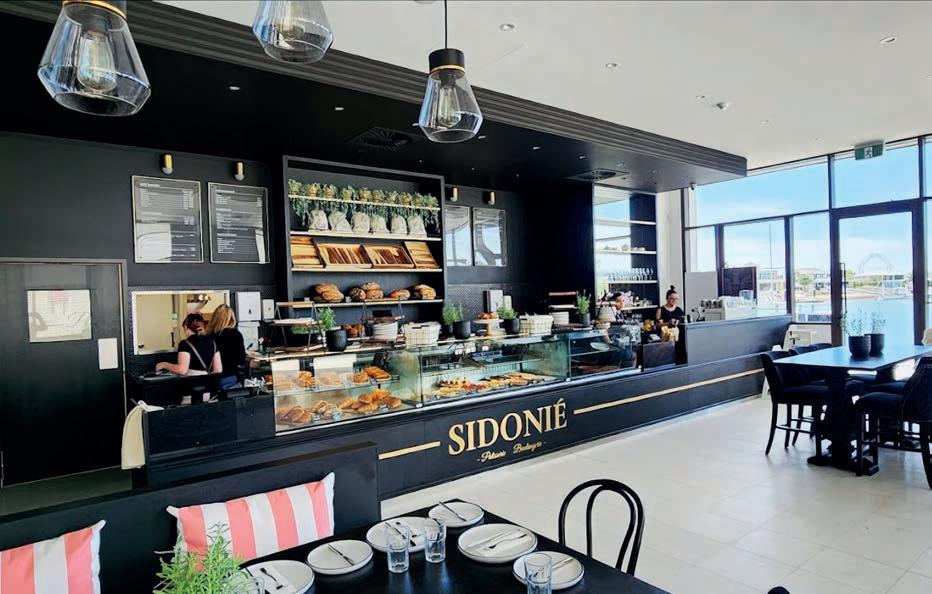
“Every day and with meticulous precision, our experienced chefs bake the Paris-Brest,
éclairs, choux, and other delicious desserts. All of our creations are truly unique, and we regularly update our range with seasonal influences to take advantage of what nature does best. We always use the freshest ingredients available,” Sidonia says.
Customers can pair the pastries with Wolff Coffee Roasters’ Big Dog Blend, which has notes of chocolate and honeyed sweetness.
“It was very important to me that I find the right coffee blend to pair with my patisserie products. I wanted to compliment the creamy, chocolaty flavours that we will have in our product range,” Sidonia says.
Throughout the two-year partnership, Sidonia says she “couldn’t be happier” with the service the roastery provides.
“One of the main reasons why I partnered with Wolff Coffee Roasters was because of their amazing training program. Not only did they conduct initial training for my staff but they also come every week and keep an eye on the coffee production so they can correct any mistakes or bad habits,’ she says.
“They really show huge amounts of customer care and it’s important to me that my staff are taken care of and that we have a great product to serve our own customers.”
“Our brunch menu consists of favourites like smoked beef brisket hash, lemon and passionfruit cheesecake French toast and breakfast burritos. The café’s philosophy centres around seasonal produce, utilising the best produce Western Australia has to offer,” he says.
“We strive to provide consistently tasty yet simple food and beverage offerings. We also wanted to expand our specialty coffee offering, which is why we partnered with Locale Coffee Roasters.”
Roy was introduced to Locale Coffee Roasters when he acquired the business in 2021 and has always been pleased with its service and product offerings.

23/155 Canning Highway, East Fremantle, Western Australia, 6158
Open Monday to Friday 6:30am — 2:30pm, weekends 7am — 2:30pm
After working in hospitality for 20 years, Roy Tan decided to expand his business ventures in July 2021 when he bought May Street Larder from Australian Olympians Eamon Sullivan, Steve Hooker, Jamie Dwyer, and celebrated Chef Scott Bridger.
“I first entered the industry in the early 2000s when I bought Dome Coffee in Subiaco, Western Australia. This was where
I honed coffee making skills, ensuring we were serving great coffee that kept customers coming back. Now I own May Street Larder and Halo Espresso in South Perth,” says Roy.
May Street Larder can be found in a residential area, which links the suburbs of Bicton, Palmyra, and North Fremantle.
“May Street Larder is a cosy, friendly place, perfect for friends and family to meet and share coffee moments together,” says Roy.
The Perth café has become a mainstay in the East Fremantle brunch scene, and it’s not just for their famous fried chicken waffles, which Roy says is a major drawcard.
“They are very hands on, provide great coffee, and we’re very happy with the way they address issues. We have a close relationship and excellent communication with Locale, speaking on a weekly, if not daily basis. They always make themselves available to us when we need them,” Roy says.
May Street Larder uses Locale Coffee Roasters’ Ultimate Wingman as their house blend and Eco Warrior organic blend for espresso, along with rotating single origins.
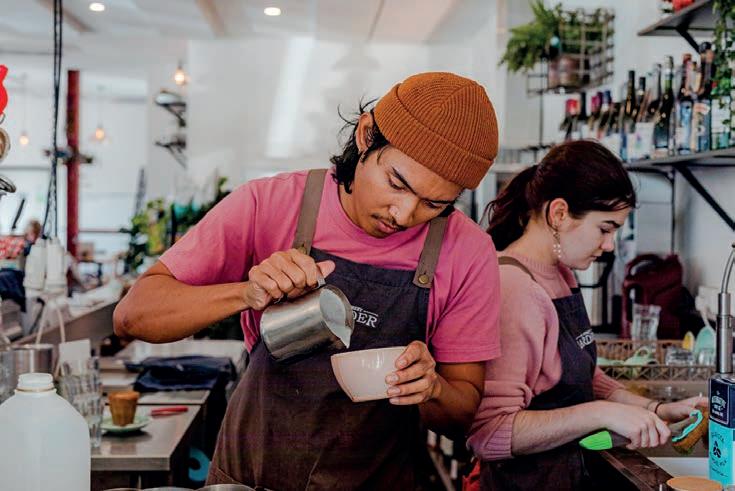
Roy says the best part of taking over the established café has been having the local community embrace his management.
“It’s so fulfilling when you’re serving customers, regulars are coming back, and you contribute to special moments of their day,” he says.
Sidonié Patisserie is a choux pastry specialist patisserie and a traditional boulangerie.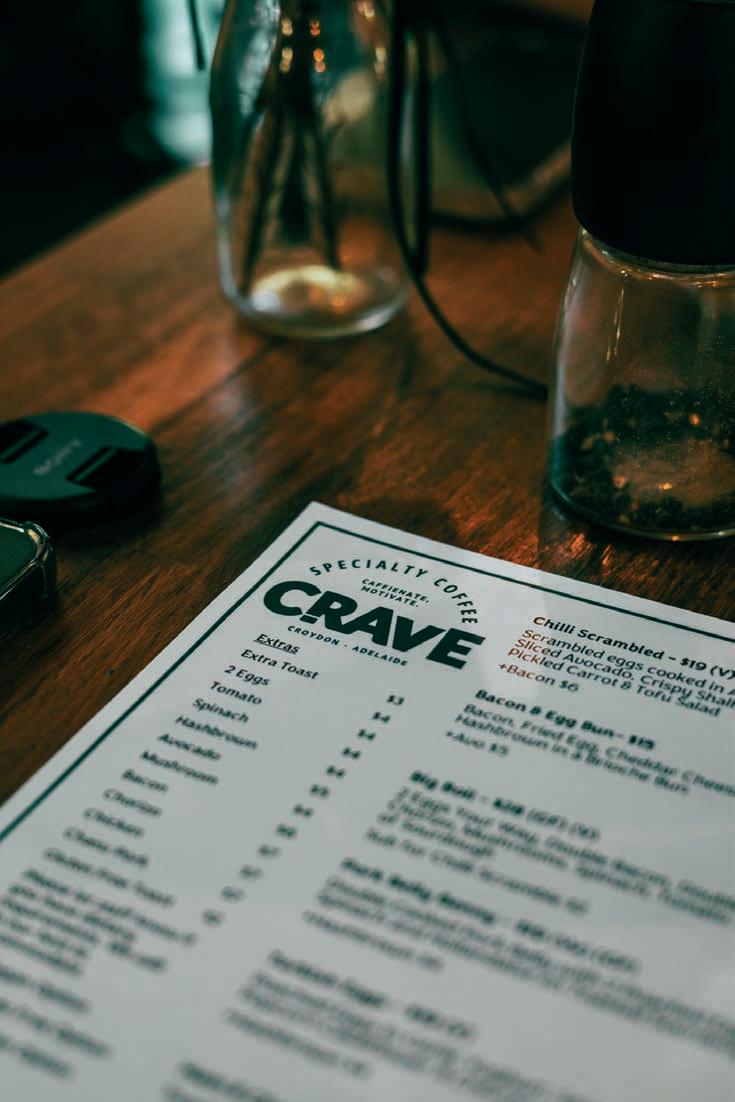
15A Elizabeth St, Croydon, South Australia, 5008
Open Monday to Friday 7am – 3pm, weekends 8am — 3pm
The green, artsy, old heritage area of Croydon is home to a bevy of coffee shops and roasters that make up a supportive, welcoming community. One of them is Crave Specialty Coffee.
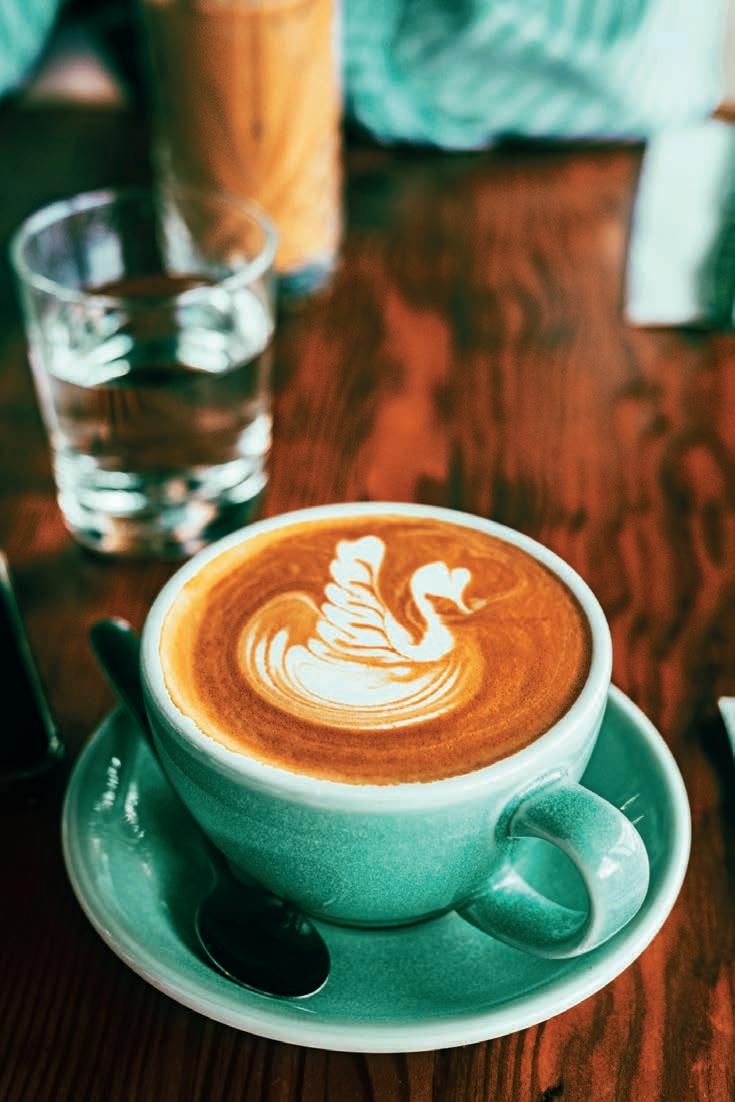
Natural, earthy tones draw people into a high-ceilinged, open space with beautiful local artwork adorning the walls. Tiled white with handmade wooden aspects (built by Owner Dion Timpano and his father), customers are greeted by a seated bar where they can strike up a conversation with the staff and discover what they like. Or for more experienced sippers who know what they like, there is a reserve menu full of goodies.
Dion was a chef for 13 years before a family member’s specialty coffee shop sparked his interest in a new world of tastes and techniques. His hungry pursuit to learn more led him to work with several roasters, including Toby’s Estate, which fuelled an obsession for great coffee.
“At one point, my entire freezer was packed to the brim full of coffee and I thought, ‘I might as well open a coffee shop so I can do this for a living!’” Dion confesses. “I figured, if I’m going to be drinking these coffees every day, why not share them with others? Because good coffee is meant to be shared.”
international roasts to choose from at Crave, but Toby’s Estate is Dion’s predominant choice. While this is partially a homage to his ongoing connection with the roaster, he also has a genuine love of their blends – particularly Toby’s Estate’s house blend, Woolloomooloo (aka Woolly).
that I find delicious. It’s not difficult to use, it’s
pork rice bowl. The pork is braised with the coffee and five spice, and combines vegan kimchi mayonnaise, cucumber, pickled carrot, avocado and fresh herbs with a miso and soy dressing.
On his relationship with Toby’s Estate, Dion says “It’s great to work with them. They supported me in my coffee journey and spent time training me on the equipment as well. If there’s a process that comes out that baffles me, I have a direct line to help me learn and grow.”
For Dion, the most rewarding part of his adventure at Crave is opening people’s eyes to the realm of specialty coffee as something that is new and exciting, and that there is more to coffee than their usual short black.
“A few times I’ve come across someone who’s read ‘pour over’ on the menu. You can tell they see an $8 coffee and they’re not interested in it,” he says. “When I explain what a pour over is, why we serve them and what I recommend, you see their attitude change. Then I see them try it for the first time and it completely blows them away, because it’s something they didn’t expect.”
The café’s menu features a variety of dishes including the Chasu pork rice bowl.







246 High St, Ashburton, Victoria, 3147
Open Monday to Friday 7am – 3:30pm, weekends 8am — 3pm (03) 9193 0169
From those who founded cafés Santucci’s, Mr Tucci, and Son of Tucci, Joe Frank is a family-run café in Ashburton, named after the co-owners’ Massimo and Fabian’s father, Joe, and grandfather, Frank.
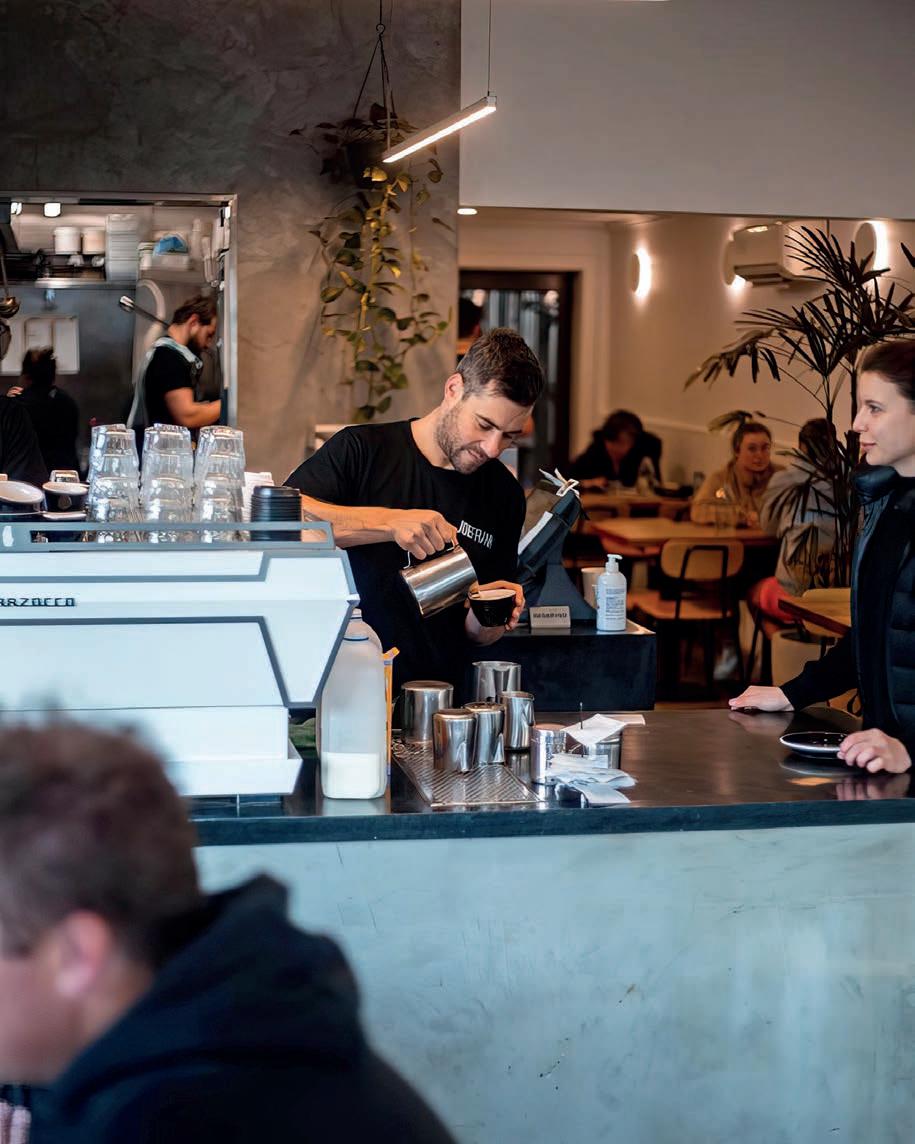
Mostly catering to young families and an older crowd, Joe Frank has a sunny aspect with windows facing a bike track in tree-lined suburbia, luring commuters into the open plan space with the natural light in the morning.
Through a family with hospitality in its blood, brothers and owners Massimo and Fabian Crea were exposed to coffee from a young age, “We fell in love with coffee when our grandma made us cappuccinos at a very young age at the family hotel in Lake’s Entrance,” says Massimo.
“We also grew up on moka pot coffee, which is a very traditional way of drinking coffee but it’s still a favourite for us. Family would gather and chat around a mokapot, and it forever reminds me of special times together. This has all translated to an ongoing love for the beverage and Joe
Frank’s mokapot logo.”



Although the café works off a more modern method with its La Marzocco KB90 and Mahlkonig E65 and EK43 grinders, partnering with Veneziano Coffee Roasters has ensured the family’s passion for coffee endures.
“We serve Veneziano’s Soar as our house blend. It’s always been interesting learning about the profile change with every season depending on the beans that they source. Customers notice the change, but always in a good way. It creates awareness and great discussion with our customers about origin,” Massimo says.
“It’s always got depth, vibrancy and a fruit forward note to it. As the temperature slightly cools, the flavour notes become



















































































more apparent. It’s definitely not your typical chocolate and nut.”
Massimo says the coffee also pairs well with Joe Frank’s honest, homestyle food –particularly Mrs Crea’s New York baked cheesecake.
“Mum’s the one that makes [the café] niche with her homemade cakes. They’re really simple, but the quality of ingredients makes them what they are. Her recipes are also very unique in a typical Italian fashion,” Massimo says.
As a family business in a family-oriented suburb, the locals treat Joe Frank like home too.
“The most rewarding part of working at the café is definitely the lifelong friends we’ve made in terms of staff and customers,” Massimo says.
Developed in conjuction with the BeanScene magazine website, The Long & Short of It news EDM is dedicated to keeping the coffee industry abreast of the latest relevant news as it breaks, in addition to providing an electronic interface for the viewing of BeanScene magazine content. To keep up to date with fresh, informative and relevant content, register your details at www.beanscenemag.com.au
Joe Frank is a family-run café in Ashburton, Victoria.reparing and serving espresso is a relatively simple procedure for a barista. Coffee is ground for us at the touch of a button, tamping is automated providing we have a Puqpress device, and when we load the portafilter into the coffee machine, the volumetric panel distributes water for us.
Despite most of the work being done by equipment, there is still an essential element during this process that will always need attention and skill from the barista, which is calibration. Coffee calibration is a necessary process when it comes to extracting our coffee correctly and consistency. Calibration, simply put, is when the barista needs to adjust the way espresso is extracting at the grinder. This is achieved by altering the rate of the flow of water by allowing it to run faster or restricting it to run slower so the flow rate aligns with the extraction time window. Coffee shops today spare no expense to ensure that this can be achieved, however the process is still deemed to be difficult and frustrating by new baristas, and seasoned veterans alike.
As a trainer for UCC Coffee, I have the opportunity of interacting with many baristas across the country with varying levels of understanding of espresso making. At the beginning of each class, I seek areas of opportunity for learning, and coffee calibration is the most common subject cited as “difficult to grasp with confidence”.
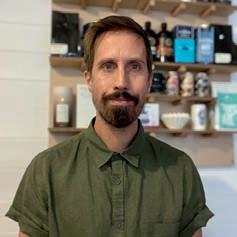
So why is it that baristas with several years’ experience and baristas who are just beginning their coffee journey stumble when it comes to calibration? How can we identify potential barriers of understanding in the calibration process, and better
understanding when and what to change so we can help baristas correctly adjust their equipment with ease and confidence?
In this article, let’s identify and breakdown calibration to the fundamentals. We need to streamline the language used around extraction definitions, analysing extracted coffee shots, and the calibration approach so baristas can check, change, and serve coffee quicker and with more confidence. Calibration should be a platform to deepen and further a barista’s understanding and appreciation for producing coffee.
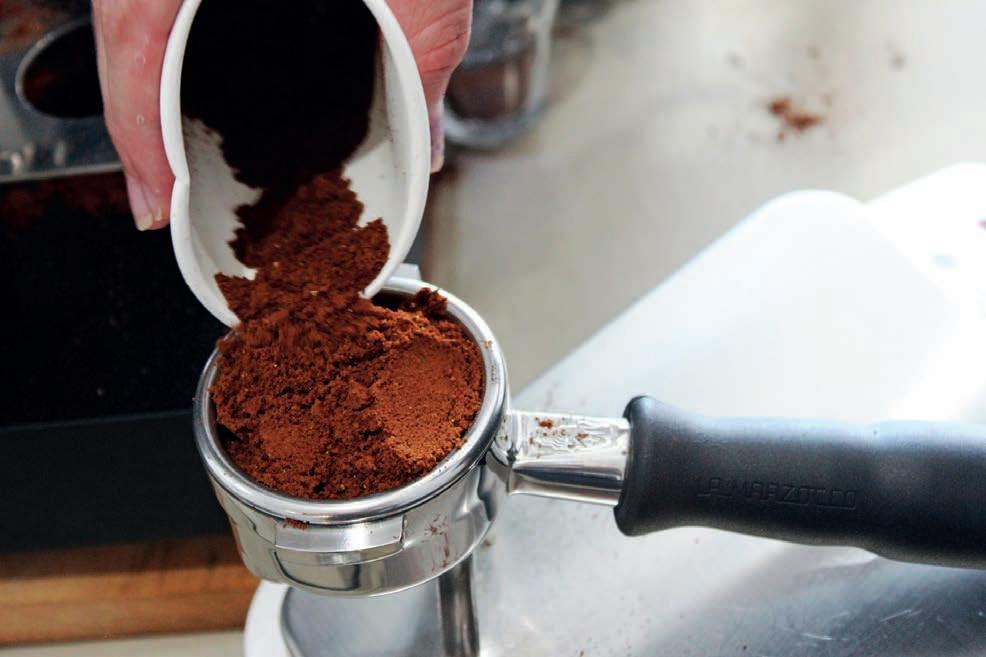
Espresso is an incredibly expressive food. From plant to cup, each step of the journey affects the flavour in the final brew. This is essential to understand, especially when it comes to the quality of coffee served to customers. Coffee possesses thousands of flavour compounds, which are easily affected by varied environmental factors within the café. However, we can distil coffee factors to their fundamentals to define the limits for correct and incorrect extraction: Sweet, Sour, Bitter.
“Sweet” is correct. “Bitter/Sour”
Anthony Lawrence of UCC simplifies the fundamentals of calibration and the common pain points that stump new baristas and even those at the top end of their coffee career.Anthony Lawrence is a barista trainer at UCC Coffee.
are incorrect. Sensory learning and understanding of what to taste in espresso is a subjective process from individual to individual, so aligning perception across a team with varying experiences and understandings of coffee flavours can be a complex process. That said, we all have a close understanding of the sensation of ‘sweet, sour and bitter’ in the food we eat, so we can use these as tools for defining the parameters we are working withing during coffee service. We can approach espresso extraction as achieving “sweet” coffee and avoiding coffee that is “sour” or “bitter”. This is especially helpful when also needing to balance other events that occur during a typical coffee service.
Since there are so many events that can happen during service at any one time, it is better to focus on what you can control rather than what you can’t. For example, when a hopper runs out of beans which can cause the coffee to run quicker, or when the humidity gets higher from a sudden shower causing the coffee to run slower. Baristas cannot control when this occurs, but they can control how they respond to them, which is to make an adjustment at the grinder to correct the change that happened.
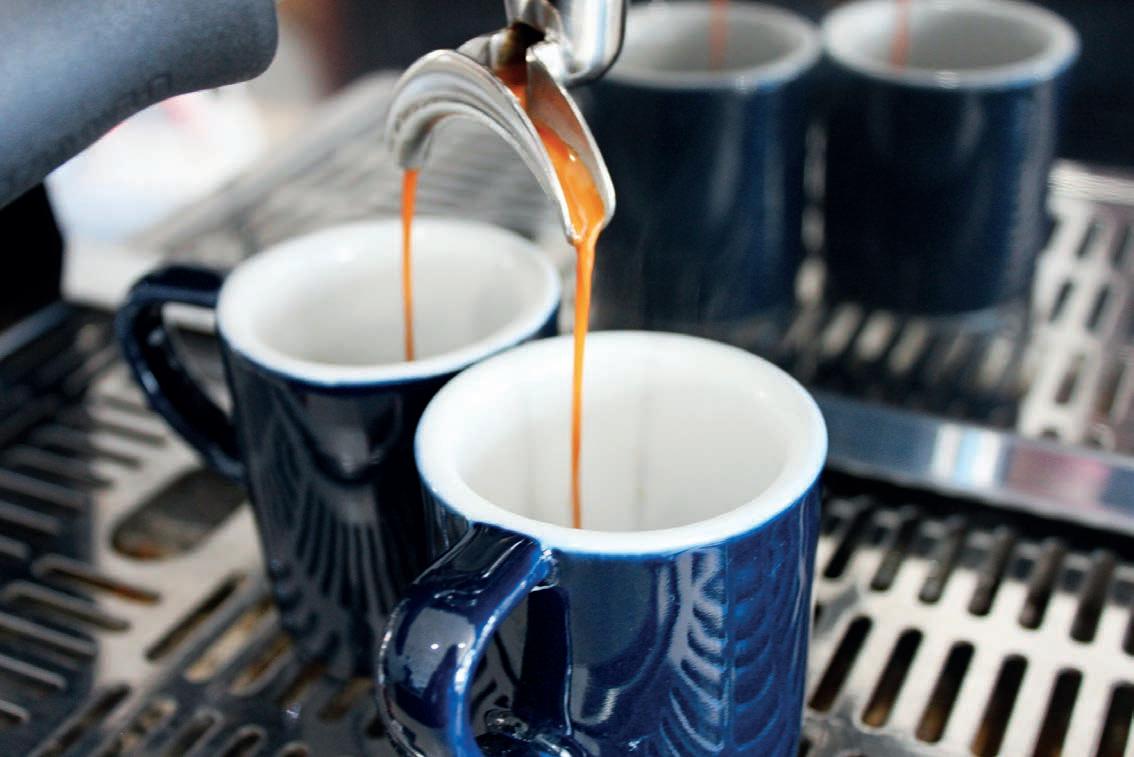
Too often a barista runs into difficulty with successfully calibrating their grinder because the times and grind settings are not connecting correctly. For example, an underdosed coffee shot that runs too short needs to be dosed higher before the grinder
settings are changed. This is the most common mistake I have observed when a barista is having difficulty calibrating.
If the coffee dose is shifting too dramatically from one fixed point, the water flow will be too inconsistent, thereby any adjustment will be imprecise. As most commercial coffee recipes have dosing limits (for example 20 grams ± 0.5 grams) anything outside of these values cannot be considered because they produce inconsistent waterflow throughout the coffee bed. A coffee shot dosed at 19.5grams will run too quick, like an under extracted shot. Similarly, a shot dosed above 20.5grams will run too long, like an over extracted shot. This mistake happens because of a lack of understanding of the relationship between each element of the coffee brew recipe or more accurately, the relationship between coffee dose, water volume and time.
With this in mind, correct dosing is the single variable that baristas must monitor manually during calibration in order to accurately assess the recording of time to inform the subsequent grinder change.
Many of my students can identify and differentiate when a shot is running too fast or slow and what the likely cause is, only to then make an incorrect adjustment at the grinder. A solution to avoid this crossing of wires can be to simplify the definitions of the modes of espresso to align with the grinder settings. Before we change/adjust the coffee grind, we need to think about
what is happening inside the grinder.
In order to visualise which choice to make and by how much, it is best to reduce definitions and descriptors to fit into the actions needed to be taken to the correct course.
Rather than having the barista assess the extraction rate, time, grind setting and then decide the appropriate grind adjustment, we can just as successfully assess, then change by redefining the states of ‘over’ and ‘under extraction’ as ‘too fine’ and ‘too coarse’ respectively.
Seeing that any typical grinder used in the industry has these settings to alter the coffee sate to be coarser or finer, if our current coffee shots are running too much on one mode, then the inverse is simply needed to be applied. This should render the whole process as a simple measurement of time and its lower and upper limits. All we must do is ensure we have dosed correctly when the shots run less than or more than those limits.
We need to observe all the coffee shots we pull to ensure consistency of quality. Therefore, it could be argued that we are calibrating each time we prepare a shot of espresso. Providing we follow the steps above and apply them to our workspace, it is an achievable outcome to adjust our grinder with as minimal effort or fuss as pressing the relevant volumetric button on our coffee machine. If we can recognise and assess our coffee shots easier, than we can calibrate easier and serve delicious and consistent coffee with confidence and excitement.
Champion ‘Barista Mir’ with a Turtle Ship latte art design, for those ready to take on a New Year challenge.
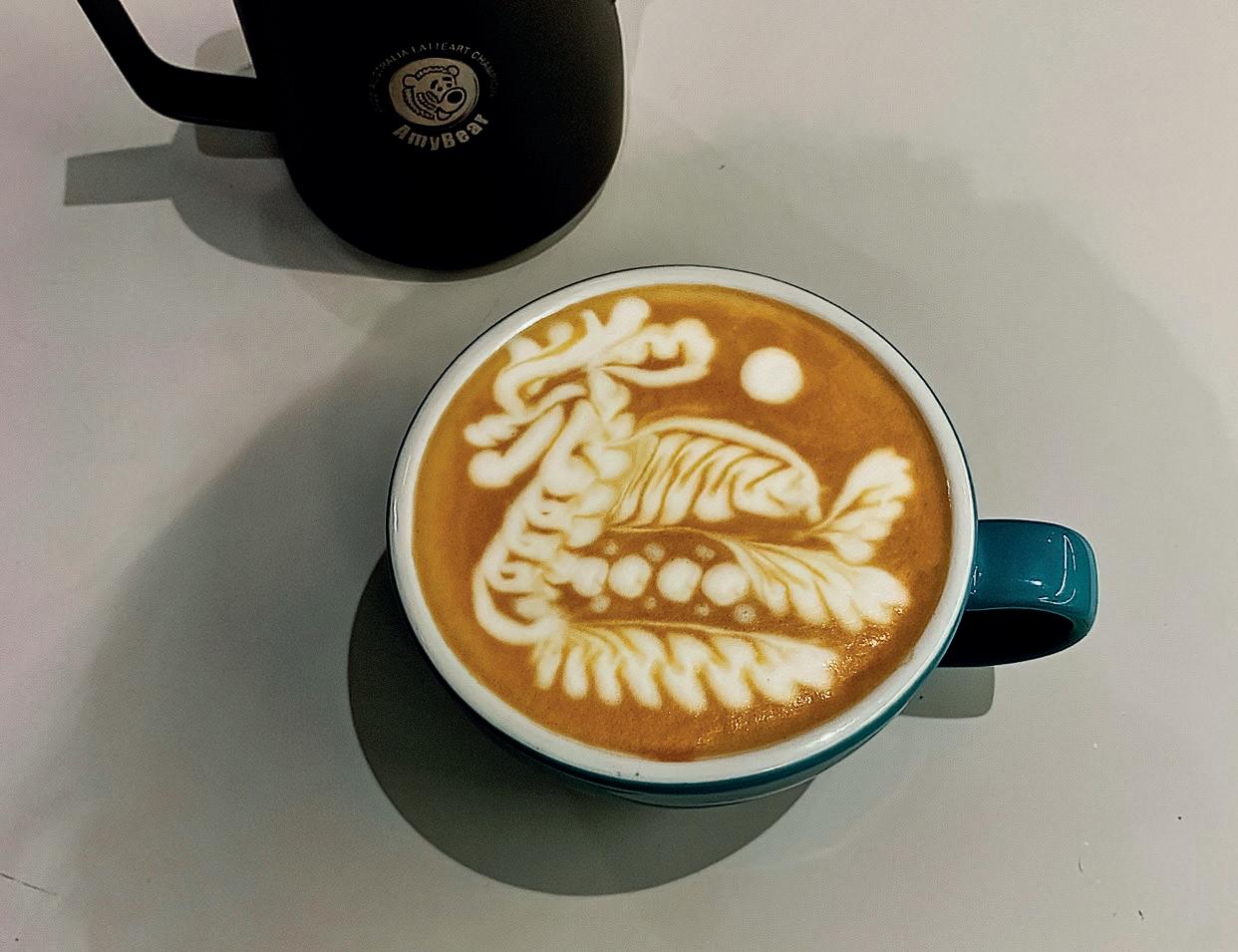
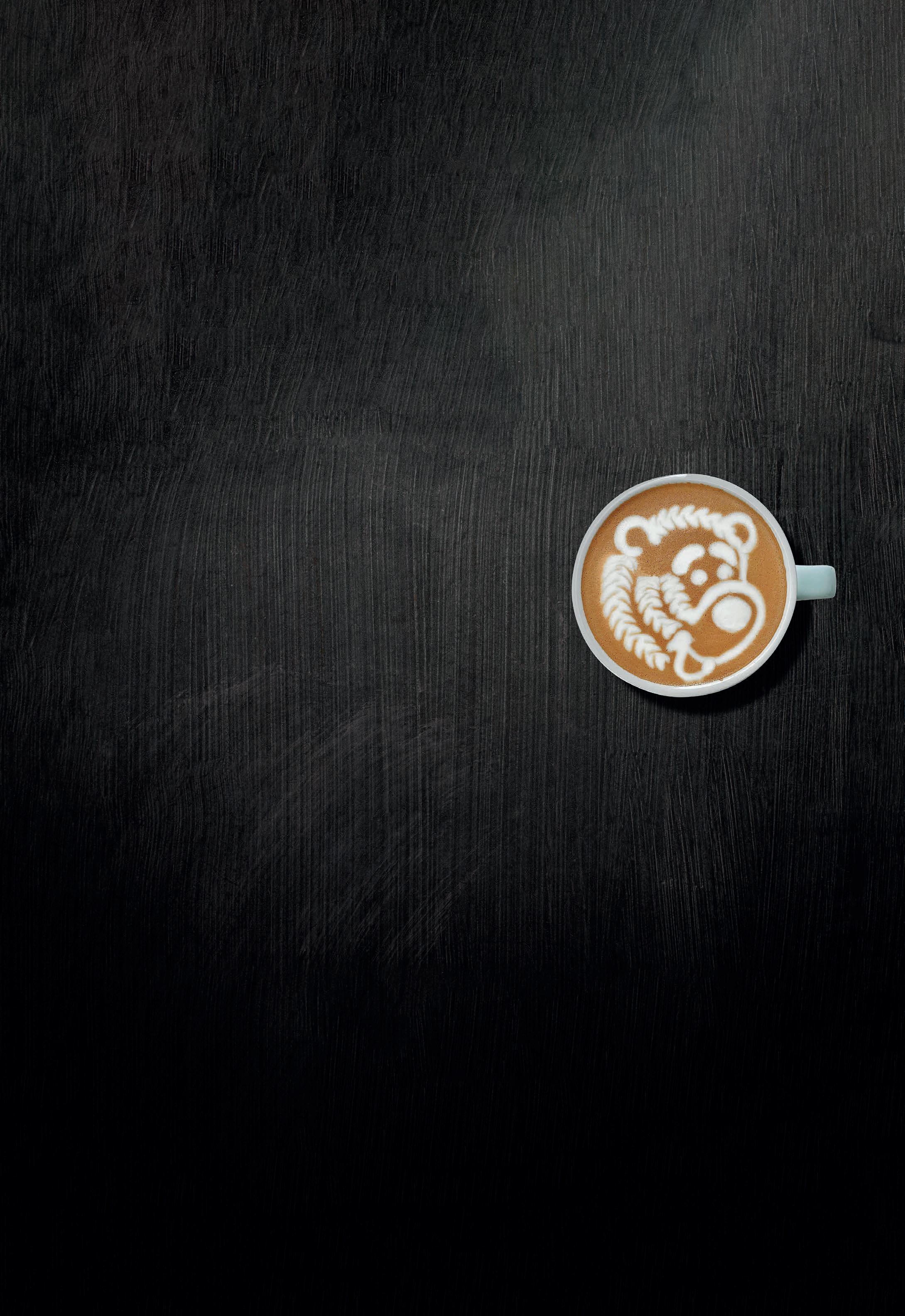
Latte art is always growing and changing. When I first attempted to try and pour this Turtle Ship design, which was created by the 2022 World Latte Battle Champion ‘Barista Mir’, I found it a really difficult pattern to perfect. It’s a very creative and interesting pattern that tests your skills. But being challenged is where my passion for latte art originated, and it’s what inspires me to find new patterns and perfect new skills
This design features seven rosettas, three of them relatively long and four of them relatively short. They require a lot of fine control to pour correctly.
It’s important to focus on certain line elements, like the dragon’s neck and to drag the milk foam to draw the dragon horns, face, and mouth. I would say that dragging is the key technique for this design.

I’ve also combined the design with simple etching skills to finish it off, as I feel the extra decoration adds more details to this exciting pattern.
Turtle Ship is currently my favourite pouring pattern, and now it’s time to challenge yourself. I hope skilled baristas will gain some new skills pouring this iconic latte art and have fun with it, and for those new to latte art, there’s nothing like a challenge and feeling of determination to kick-start a new year.
With the handle at 3 o’clock, pour a seven-leaf rosetta, starting in the centre and working upwards.
Keeping the handle in the same position, pour a four-leaf rosetta and drag backwards. Then draw an eight-leaf rosetta, dragging backwards again.
Starting from the end of the first rosetta, drag a line to the front. Turning the cup handle to 5:30 o’clock, pour a four-leaf rosetta for the tail and an eightleaf rosetta for the dragon scales behind the neck.
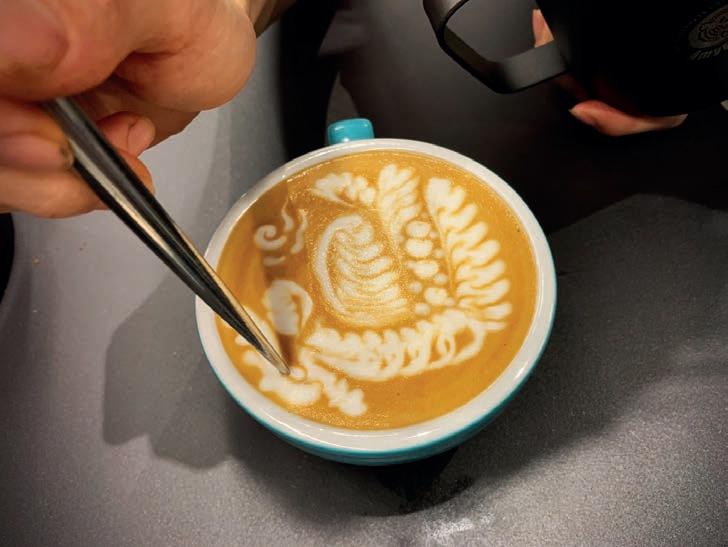
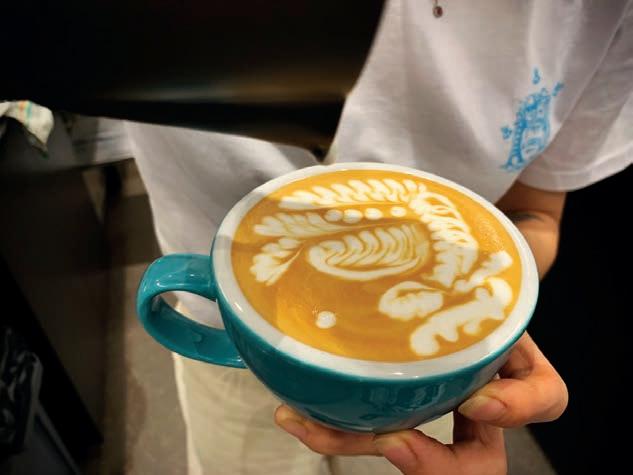
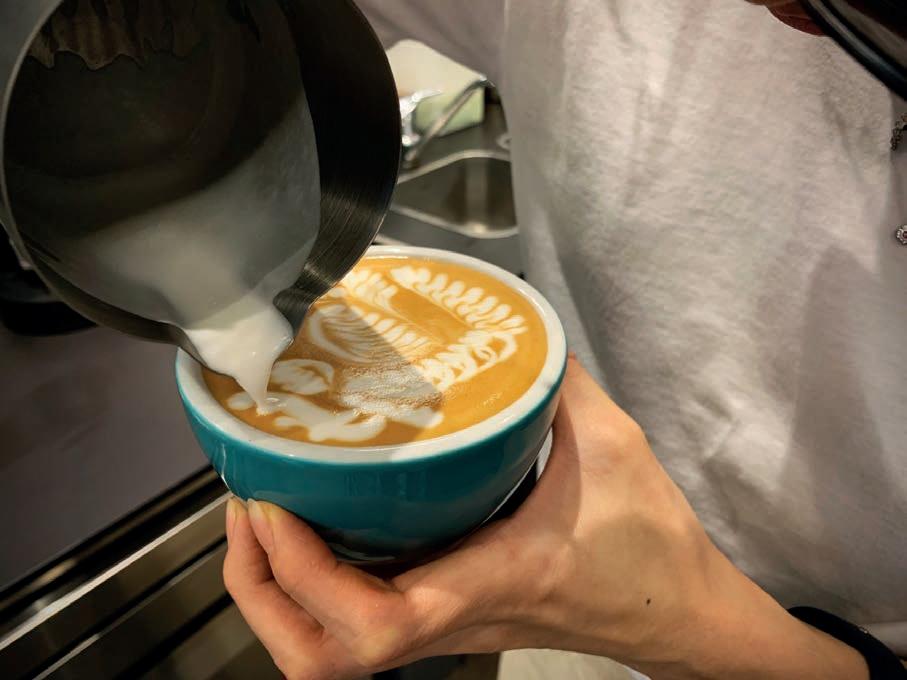
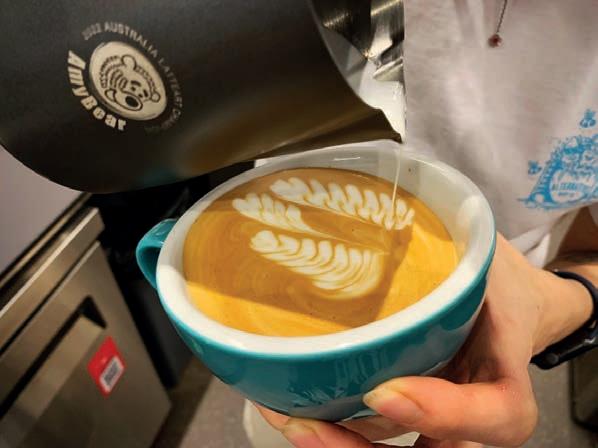
Turn the cup handle to 4 o’clock and pour two, short, three-leaf rosettas, one for the ears and mouth. Then, draw a circle with four lines inside, starting from the bottom of the fifth rosetta working upwards.
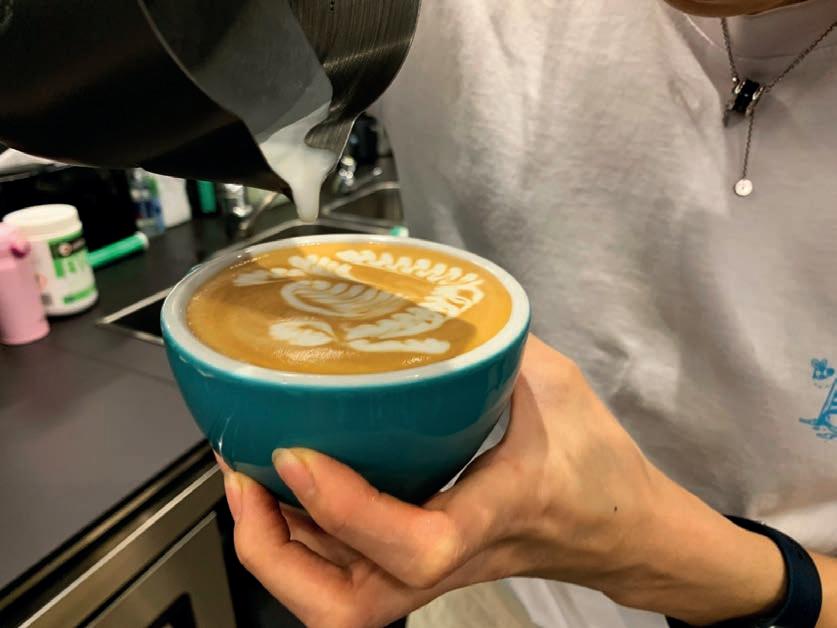
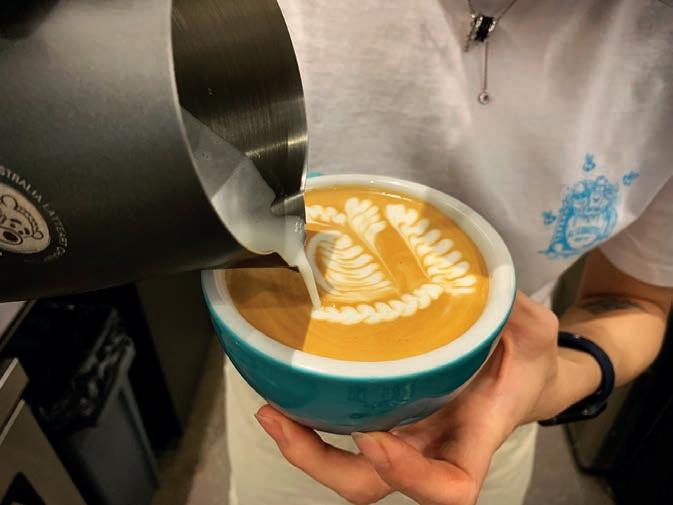
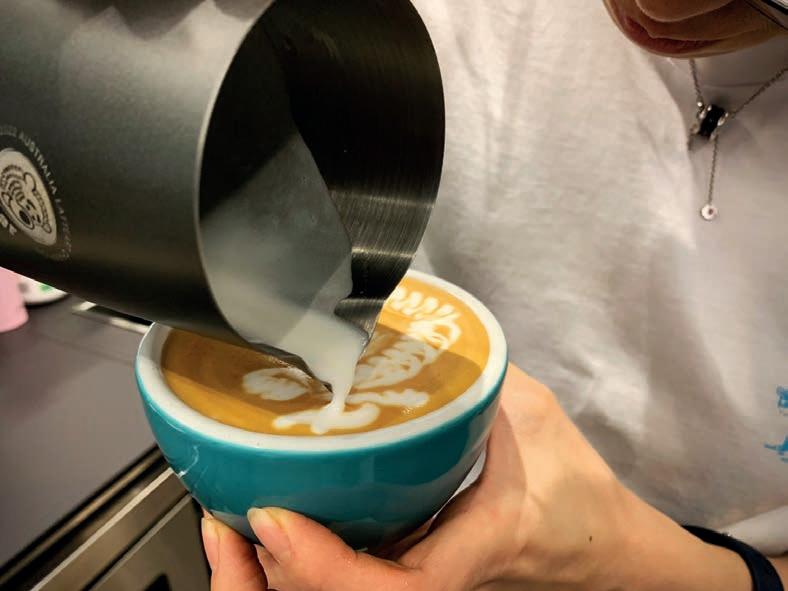
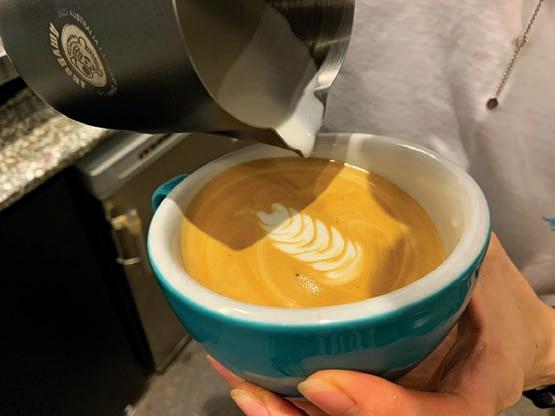

Slowly drag the foam downwards to draw the first dragon horn and eye.
On the right side of the first horn, draw the other dragon horn to connect with the first.
Between the first and third rosetta, drop four small amounts of foam to create the ship’s windows. Make sure to evenly space the droplets. Then drop a small amount of foam for the moon. You can keep the droplet as a moon or etch it into a cloud.
Use


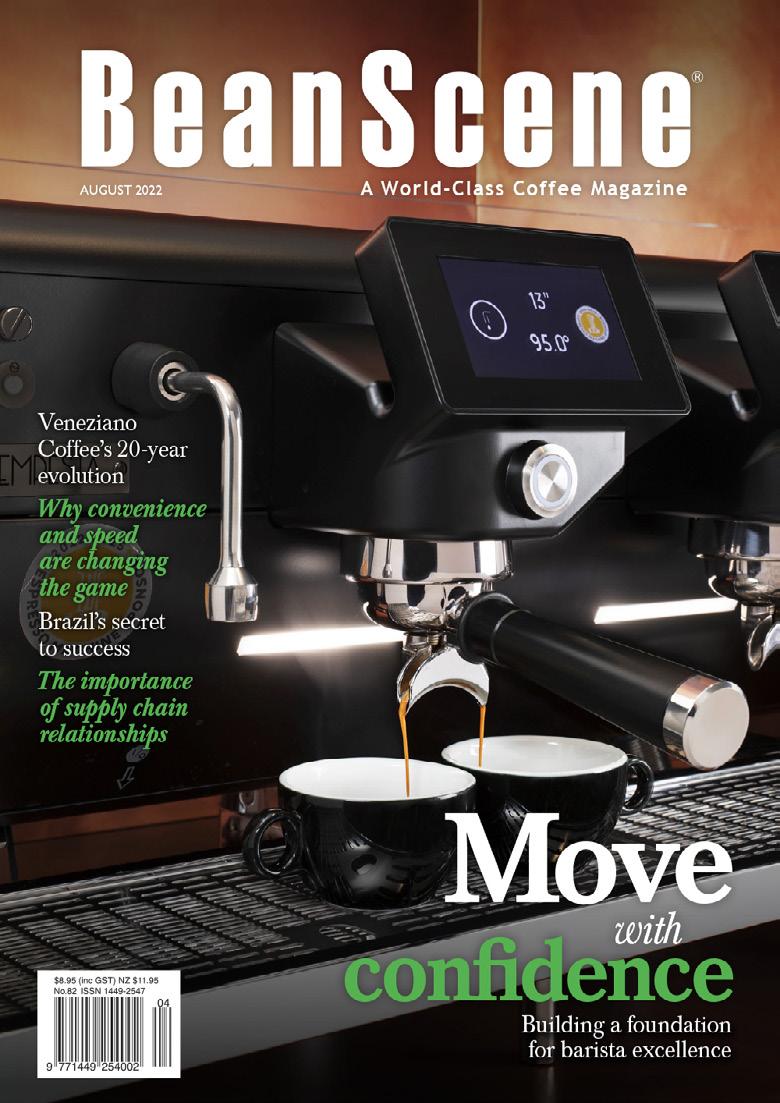
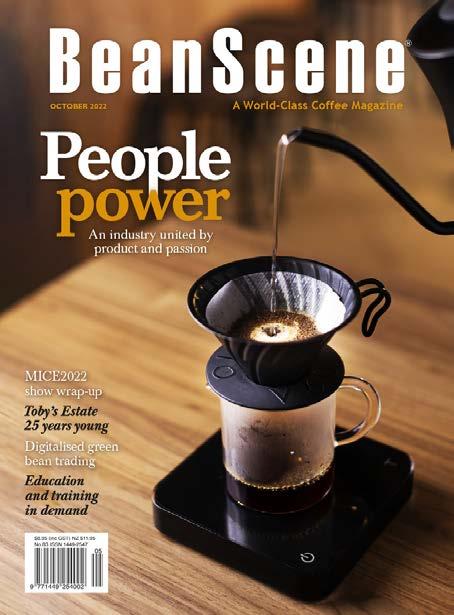
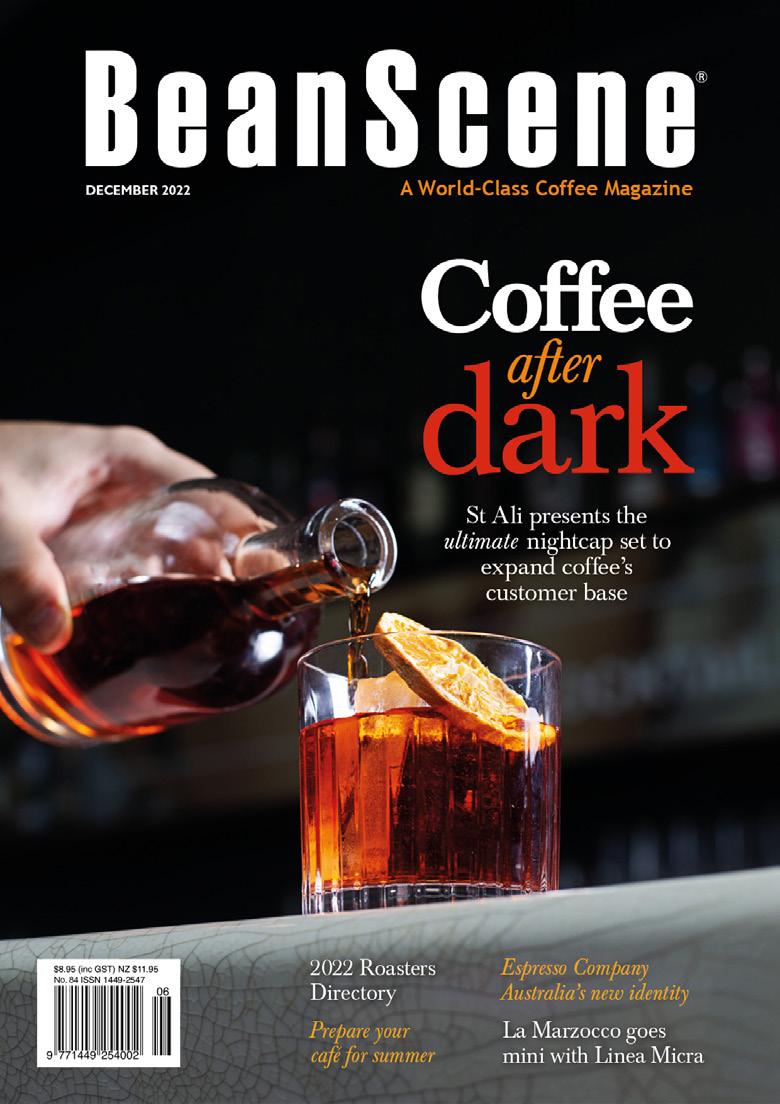
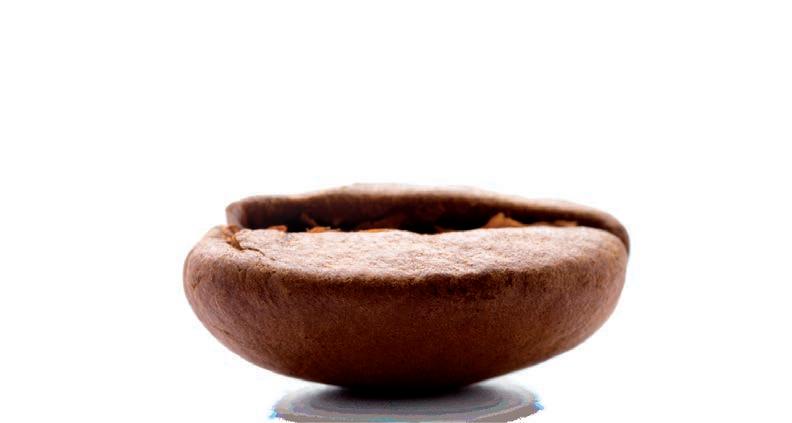

Hanna Teramoto has a long history in coffee competitions. She first competed in the Christchurch regionals in 2009. She claimed her first national title in 2014, and had podium places in 2013, 2016 and 2021. After eight nationals, Hanna reclaimed her title at the 2022 New Zealand Barista Championship (NZBC), and is off to Athens to compete in the World Barista Championship (WBC) in June 2023.
We caught up with Hanna after her trip to the Special Coffee Association of Japan (SCAJ) World Specialty Coffee conference and exhibition in October where she got to taste many competition-standard coffees.
On reflection of her competition journey, Hanna says she thought she competed because of how much she learns from the experience, but rather, it’s because of how she can express herself through coffee. “That is what I love,” she says.
What she doesn’t, however, is memorising four pages of A4 notes which makes her feel more like she’s return to university than studying for a barista competition.
But the studying pays off. Hanna is in planning mode now, and has already started her preparations.
“I’m getting the competition tables custom-made. I’m also tasting a lot of coffees from all over the world. All those coffees that we purchased on auctions are starting to arrive. I have started writing down a few ideas on the concept,” she says.
While it’s a competition, Hanna says “of course I’d be looking for a coffee that is safe and performs well to score high, but I think the most important thing is finding a coffee that I can fall in love instantly. I’m going to be tasting that coffee for months so it’s got to be the coffee like I feel is ‘the’ coffee”.
“The part that I enjoy the most is when I come up with a concept and I find

a way to get that running through my entire routine. During my practice, I get emotional sometimes and almost tear up or get goosebumps while I speak out the punchline. This is when I really realise that I love sharing my thoughts and emotions through my coffee life and put that all into the coffee that I’m serving,” Hanna says.
As a seasoned professional, Hanna lets us in on her tricks for a great competition campaign.
“I actually slept 12 hours on the night I arrived in Wellington (before the NZBC2022) so I saved sleep from excitement for the next couple nights. However, I do tend to get more nervous on the first day and finals are usually better. This year, I really tried to engage with the judges rather than thinking of doing a slick performance, and tried to be myself. I think this was the best thing I ever did in my competition life. [It] feels like I’ve gone over a giant wall of improvement,” she says.
Hanna encourages anyone to compete: “You will be a better barista if you put a routine together and perform in front of a crowd. My tip would be, even if your first language is English, memorise the script so
it becomes natural. You’d be surprised how much you forget when you’re up on stage,” she says.
For the WBC in June, Hanna is asking for feedback and getting input from the NZ coffee community and those who are strong in their own field.

She is also looking forward to meeting people she met at SCAJ again, especially “catching up with Emi Fukahori (World Brewers Cup Champion 2018) whom I became good friends at first sight”.
Hanna laughs when describing her biggest support: “It is Akio for sure. He’s my poor husband who has spent most of his married life supporting my competitions year after year. Now he’s deeply involved in the concept making as well. I feel like we’re creating something beautiful together and we’re a true team,” she says.
We can’t wait to see what this epic team brings to Athens for the WBC.
For more information on the New Zealand Specialty Coffee Association, or to join, visit www.nzsca.org
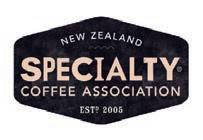 Emma McDougall is the Communications and Administration Co-ordinator of the NZSCA.
Emma McDougall is the Communications and Administration Co-ordinator of the NZSCA.
explains her inspiration and preparation behind competing on the world stage.Hanna Teramoto will represent New Zealand in the World Barista Championship in June.
Liam Pratt has taken on the role of Head Roaster at Extraction Coffee Roasters.
In 2020, Liam graduated with a Bachelor of Physiotherapy (Honours) and started working as a clinician within a private practice. Not long into his clinical stint, he began to develop a keen interest in coffee and decided to apply for a casual position at the flagship store for Grinders Coffee, where he worked once or twice a week as a barista.
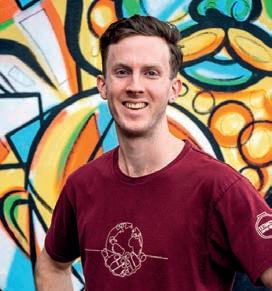
When the coffee interest surpassed the clinical one, he decided to put his physiotherapy career on hold and develop his understanding of coffee. At the end of 2021, Liam joined the team at Extraction Artisan Coffee where he quickly showed an interest in the science of coffee roasting. With a love for learning, Liam began training with former head roaster, Sarah Jin, in the early part of 2022.
When Sarah moved on from Extraction, Liam was asked to step up to the challenge and hasn’t looked back.
Liam describes coffee as a playground with endless opportunity for creative exploration.
“Although data contained within the coffee literature is improving, there is still much to consolidate and improve upon. It is this bottomless pit of learning potential that allured me initially and pushes me forward,” he says.
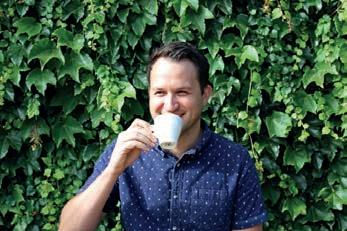
Stephen has joined Jasper Coffee as CEO. With deep experience in food and beverage manufacturing, Steve moved into a commercial role at Fairtrade for many years and was part of its global teams on coffee standards and cocoa strategy before being appointed to its global coffee group as a commercial strategist. His time at Fairtrade Australia and New Zealand, and then with sustainability consultancy Edge Environment, has provided countless opportunities to turn sustainable and purpose-focused thoughts to tangible actions. Steve is delighted to return to the coffee world, and proud the owners of Jasper Coffee have entrusted him to lead their business.
“Jasper Coffee is and always has been, a true ‘values led’ company. Built on the belief that there is ‘a better way’ and fostering a culture and practice of exploration and innovation, one that has so often led the way in an industry known for its innovative spirit,” Steve says.
Andy Corlett has started a new position as National Sales Manager for Mocopan and Espresso Mechanics. In his new role, Andy will direct the café, distributor, and Espresso mechanics sales teams.

“I look forward to leading a passionate and committed team while bringing great coffee to more people through the café and machinery partners we work with,” Andy says. He started work in coffee at Coffee Supreme in 2011 as an account manager. After wearing many hats at Supreme, he moved into a sales role at Allpress Espresso and became responsible for growing the brand through Victoria, Tasmania, South Australia, and Western Australia. Andy then worked as global wholesale manager for Mork Chocolate across Australia, the United Kingdom, Europe, and Japan. Most recently, he did a stint in the beverage manufacturing industry with Top Shelf International.
“My heart has always been with coffee and the people that surround it, so the opportunity to work for a business and brand like UCC and Mocopan feels like a great next step for me,” Andy says.
Is your business looking to fulfil a vacant position in the coffee industry? Tired of sifting through non-industry specific candidates via saturated marketing platforms and failing to find “the one”? Look no further. BeanScene has created a “Jobs” page on its website to help target industry-specific roles. Standard and premium listings are available. All job listings will be promoted through BeanScene’s weekly EDM and shared on BeanScene socials.
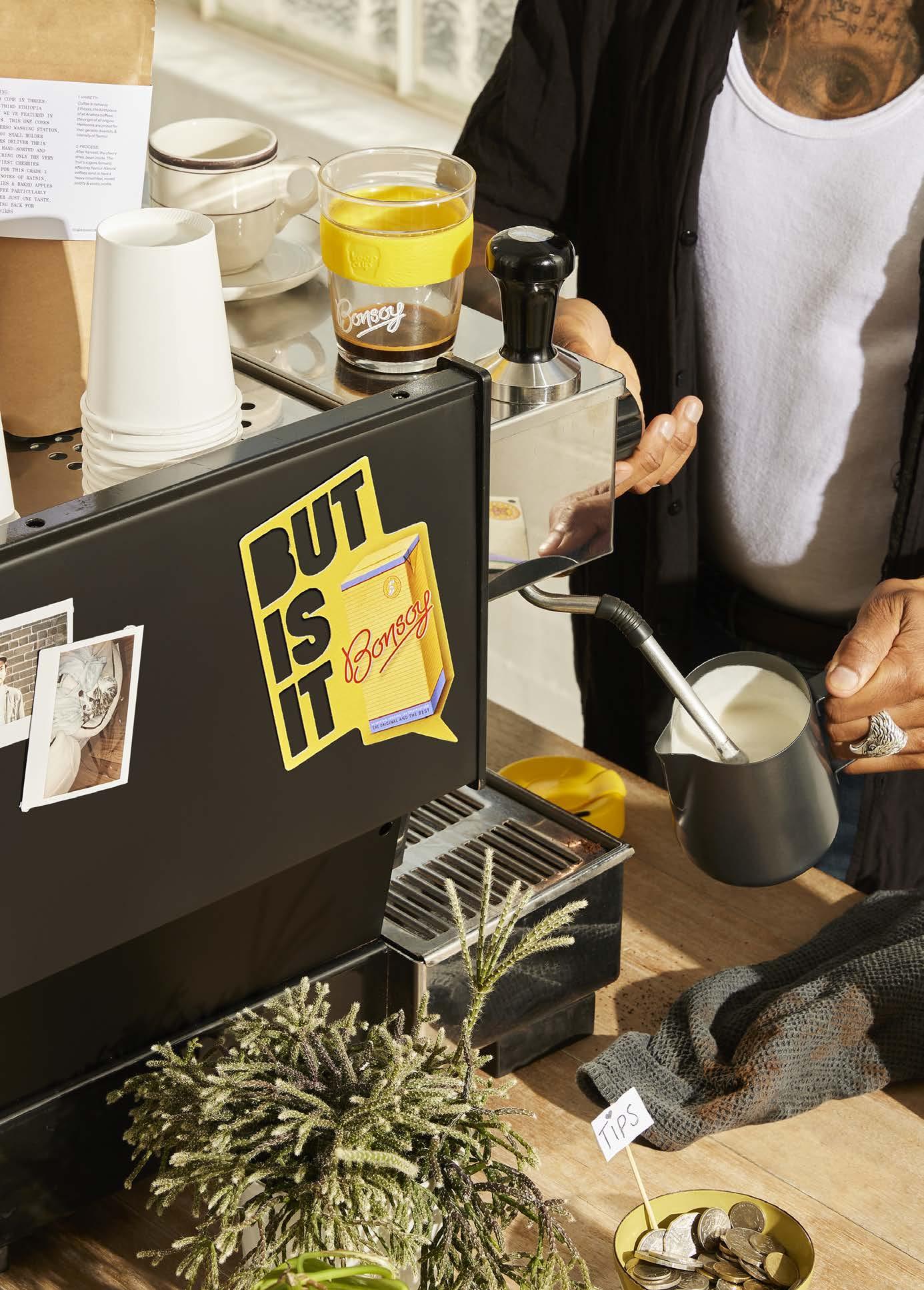
For pricing inquiries and more information, contact: COURTNEY WALKER courtney.walker@primecreative.com.au +61 481 736 890
If you have taken on a new role in a prominent coffee business, or if you would like to promote your exciting new hire, send details of the career news alongside a high-res photo to Sarah Baker at sarah.baker@primecreative.com.au
BeanScene celebrates the latest industry appointments in the Australian and New Zealand coffee landscape.

